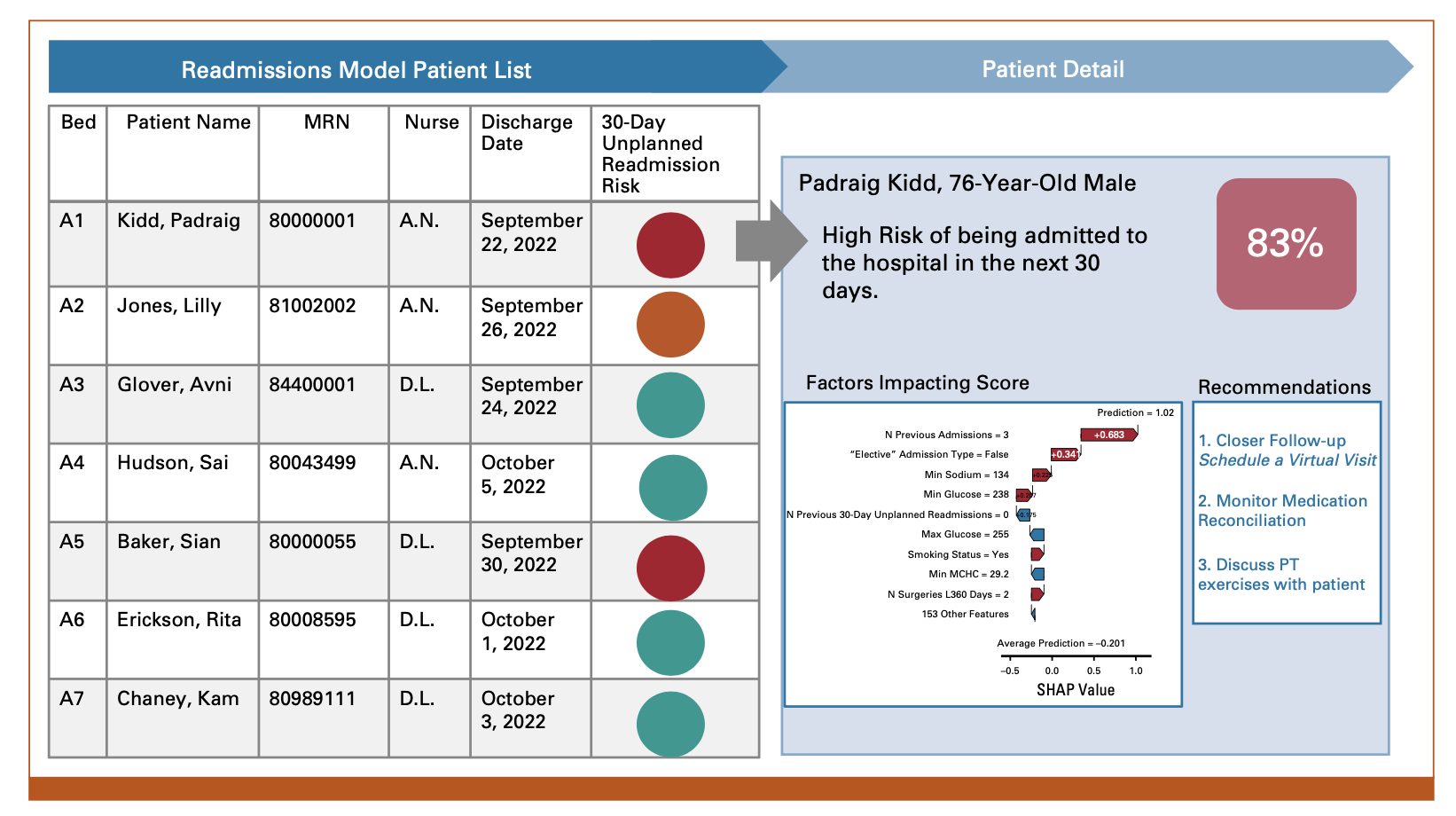EMERSE (Electronic Medical Record Search Engine) is software that helps researchers accurately find and extract important patient details like diagnoses, medications, procedures, and complications from clinical notes. EMERSE is easy for non-technical people to use and enables health research that was previously inefficient or nearly impossible. As one user remarked, "The functionality is very friendly and it saved hours of time during the data collection process. Thank you."
Powerful

Versatile

Intuitive

Discover the value of EMERSE
Open source software built to commercial-grade standards
- Modern, clean user interface
- Detailed documentation
- Easy to use
- Fast and powerful
- High user satisfaction
- Cohort discovery
- Chart abstraction
- Supports research and operations
- Natural language processing (NLP)-enabled
- Growing user community
News and Announcements
Use of EMERSE was mentioned in the conference paper "AI-Driven Multimodal TMJ Patient Modeling: From Unstructured Notes to Precision Treatment", presented at the Workshop on Clinical Image-Based Procedures. https://doi.org/10.1007/978-3-032-05479-1_5
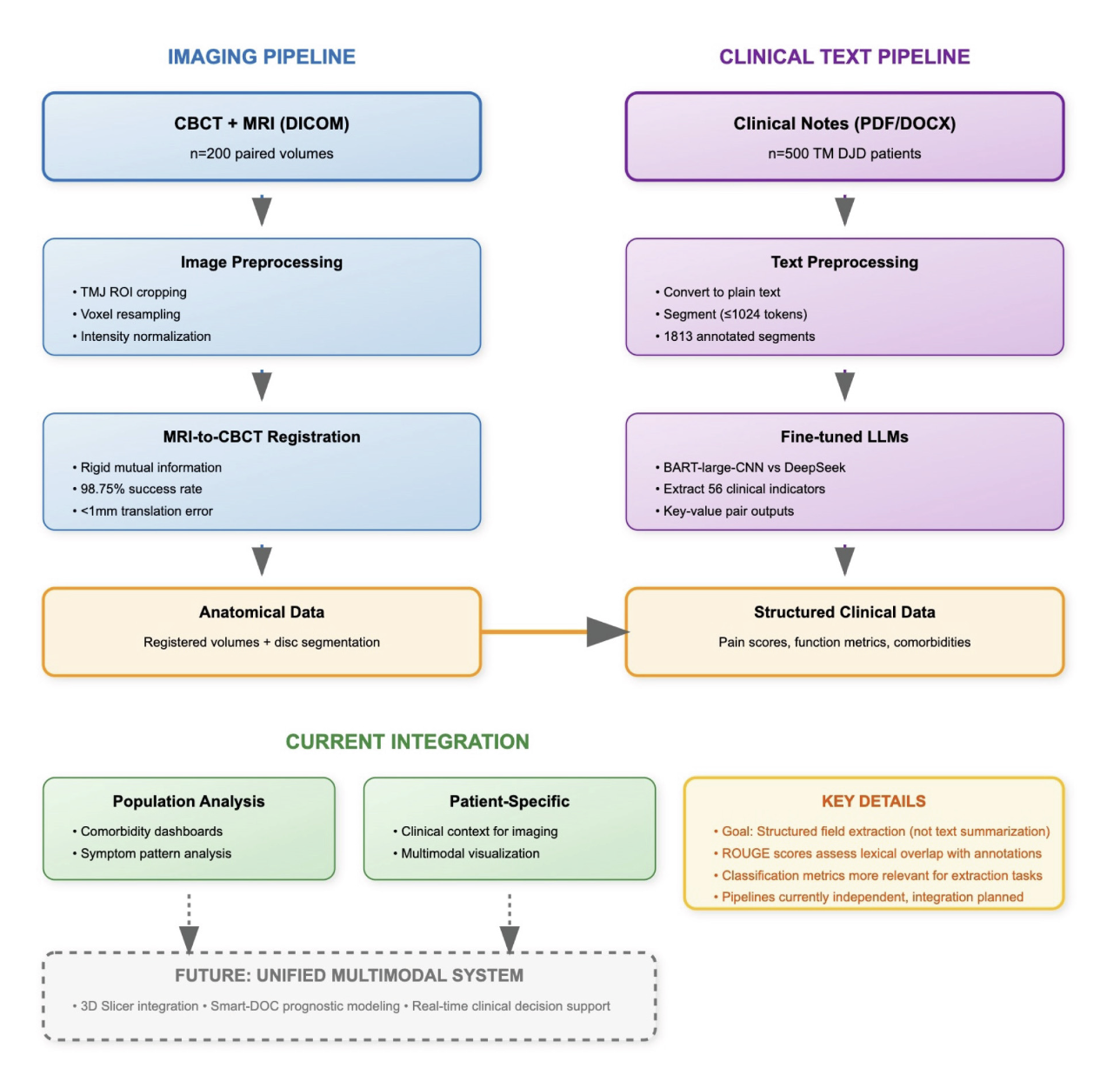
Researchers at Case Western Reserve University School of Medicine used EMERSE to identify patients for the study "Vestibular Symptoms After Cochlear Implantation in Patients With Meniere Disease" https://journals.lww.com/onojournal/fullte...
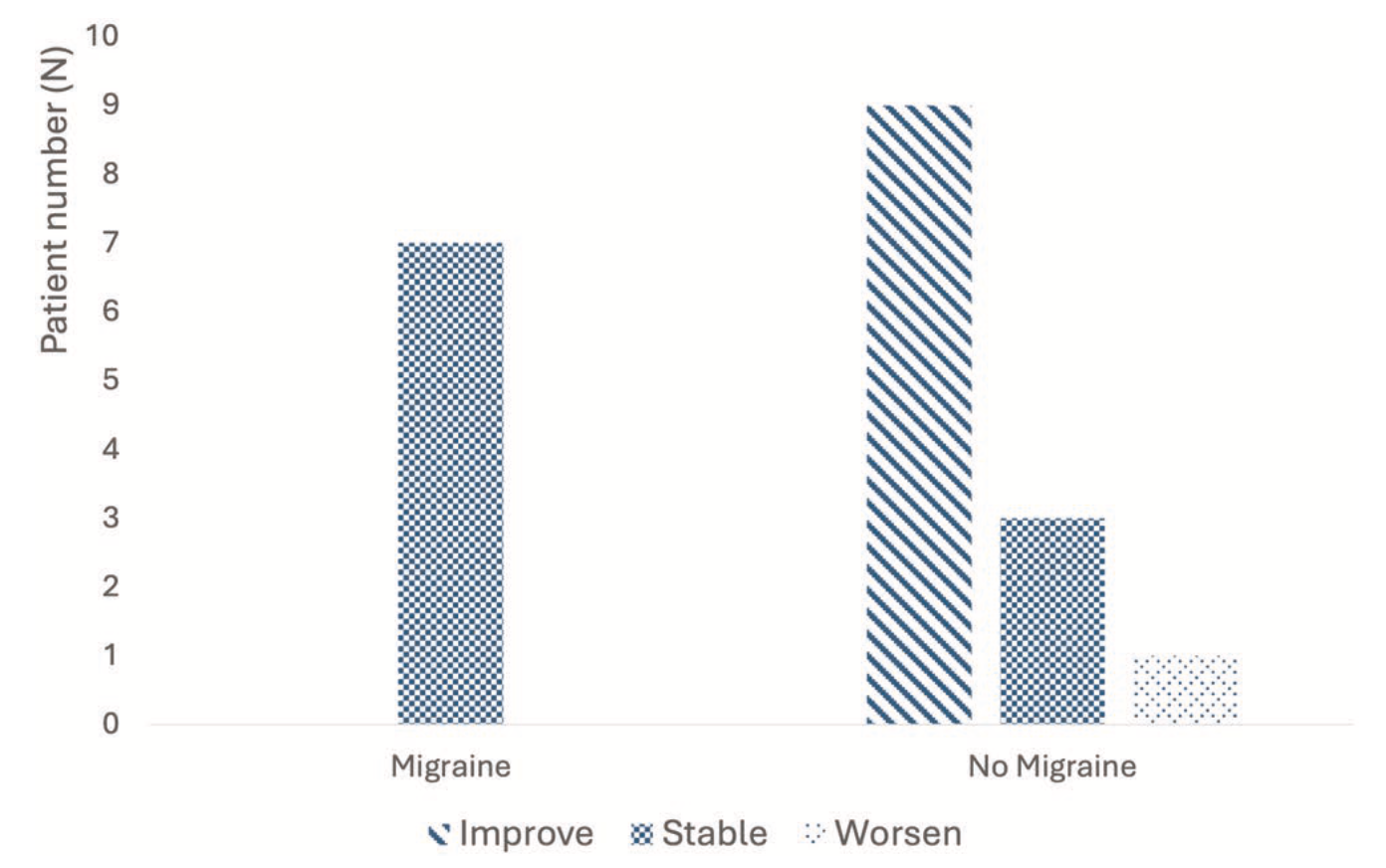
EMERSE supported the research published in "Understanding the relationship between patient-reported outcome measures, clinician-rated assessments, and performance-based measures (cognitive tests and device-based estimates) of symptoms and functioning in people with Huntington's disease" https://doi.org/10.1177/18796397251366313
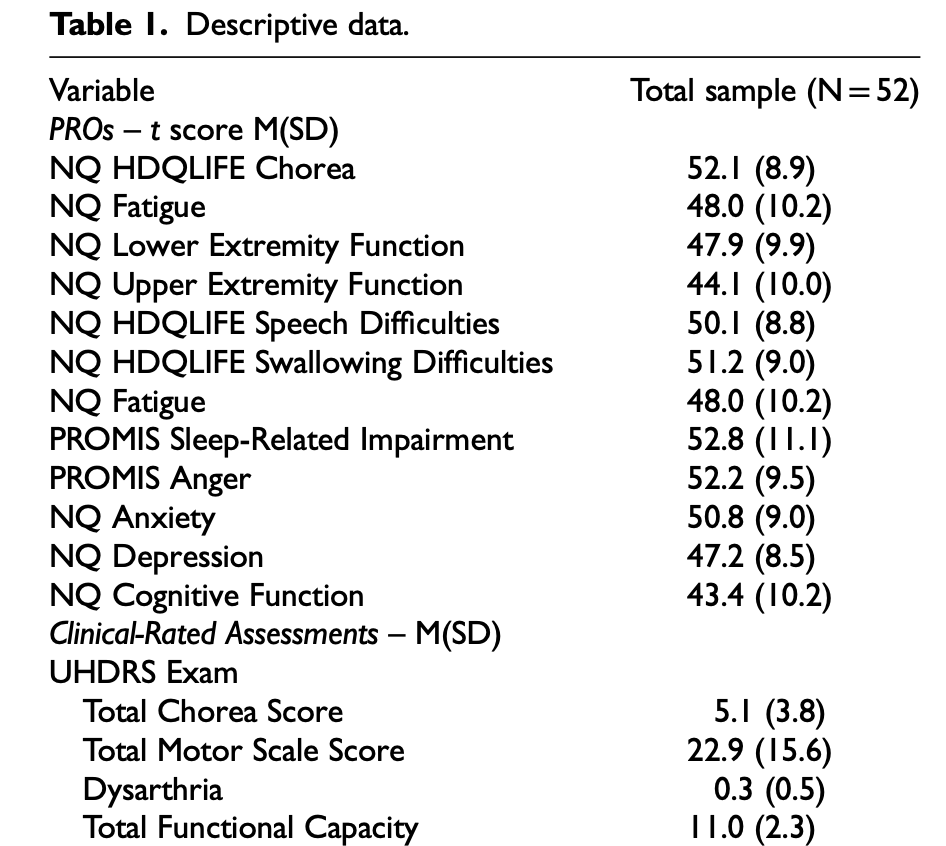
A retrospective chart review was conducted with the support of EMERSE for the study, "Treatment Burden in the Long-Term Management of Patients with Arteriovenous Malformation: A 15-Year Clinical Experience" https://doi.org/10.1177/27325016251377060
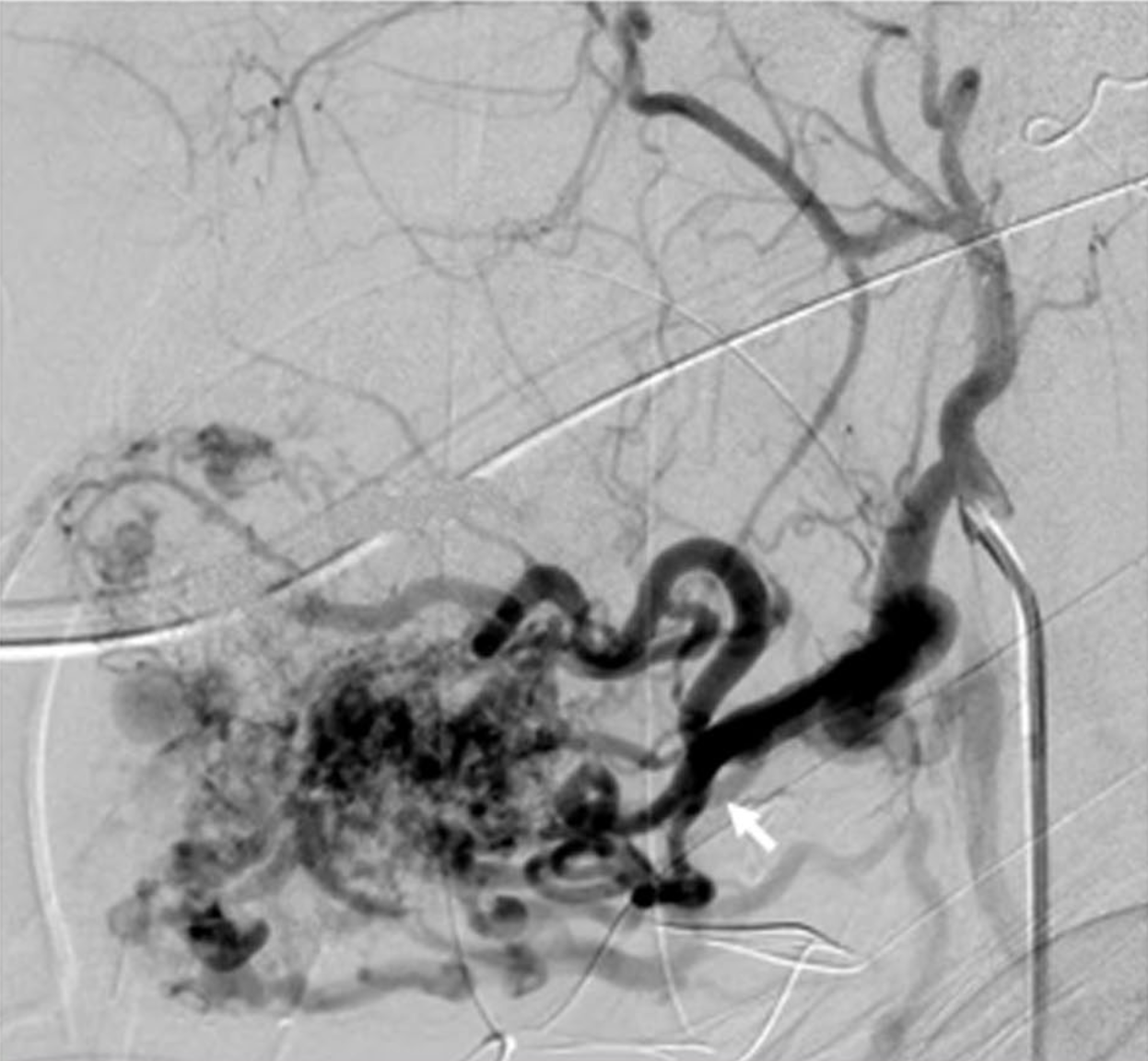
EMERSE was used to support the work for the PhD thesis by Jennylee Swallow, "Provider Documentation and Patient/ Parent-Reported Social Needs for Children Living with Sickle Cell Disease: Implications for Quality, Completeness, and Utility of Social Needs Data to Support a Learning Health System". https://dx.doi.org/10.7302/26930
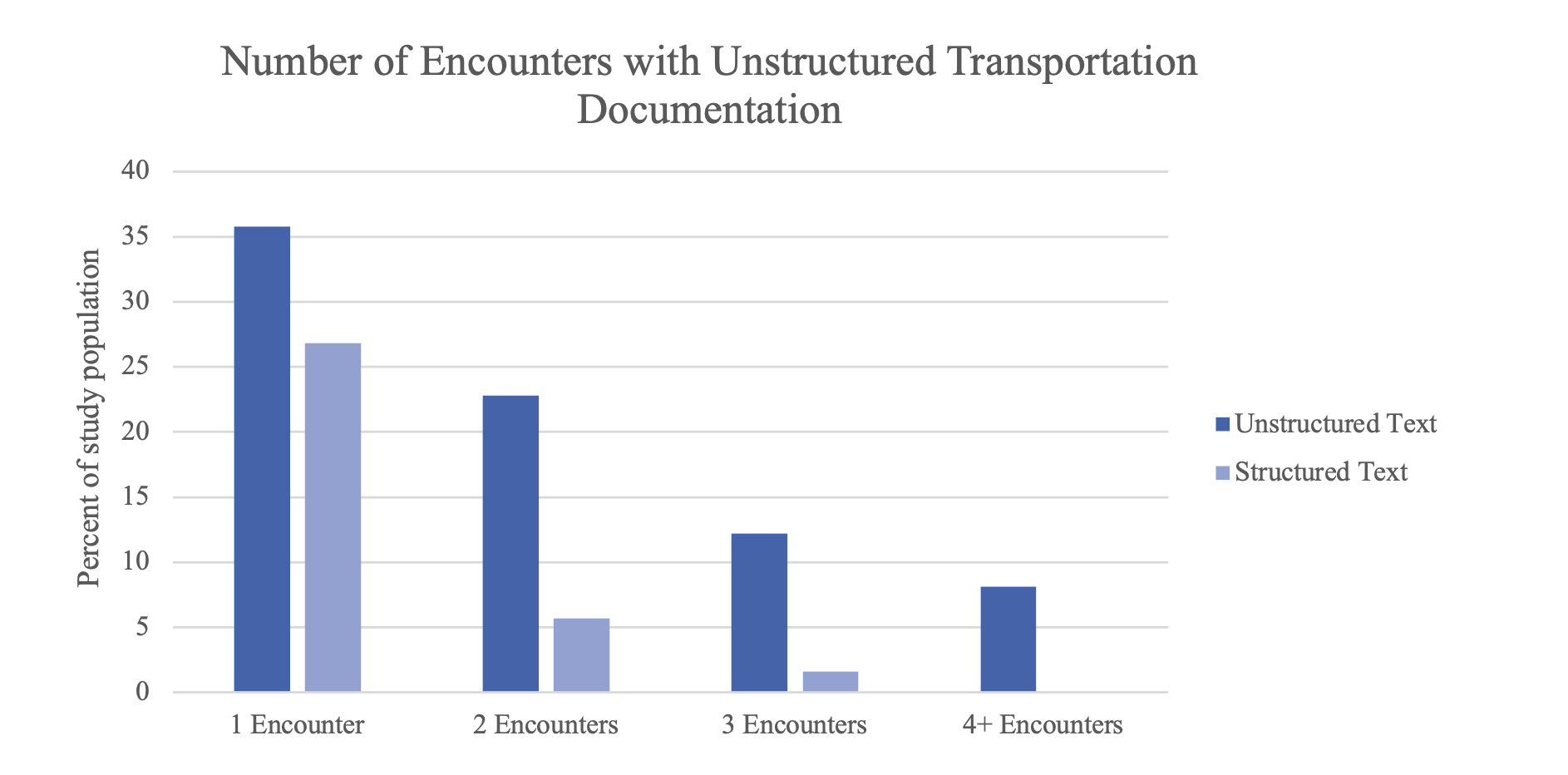
"Clinical characteristics were abstracted from medical records using the Electronic Medical Record Search Engine (EMERSE)" in a study on the "Polysomnographic diagnosis of obstructive sleep apnea in children with cerebral palsy" https://doi.org/10.1016/j.ijporl.2025.112512
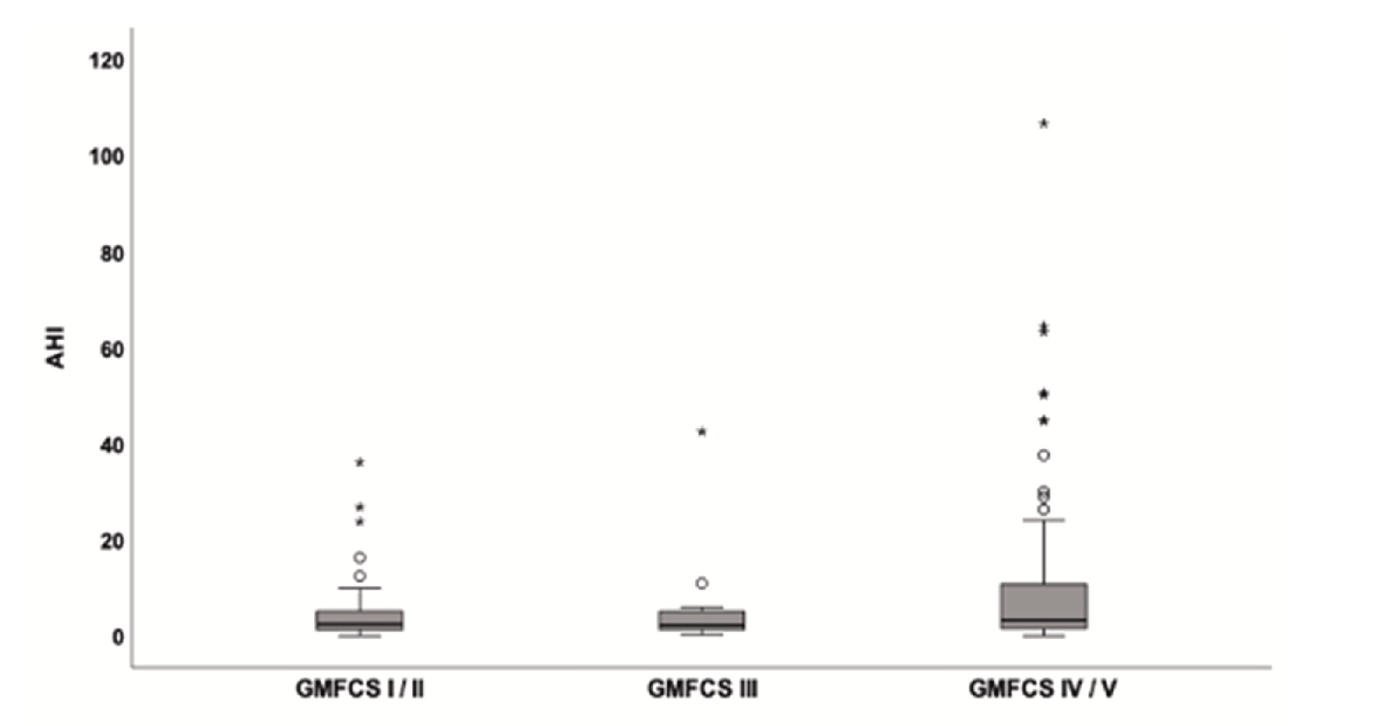
In the study, "Mycoplasma pneumoniae-Induced Rash and Mucositis: Clinicopathologic Characterization of 11 Cases" cases were identified with the help of EMERSE by searching for "Mycoplasma pneumoniae-induced rash and mucositis", "MIRM", "reactive infectious mucocutaneous eruption", and "RIME". https://onlinelibrary.wiley.com/doi/10.1111/cup.70028

EMERSE was used to identify patients with pectus carinatum who were given a prescription for pectus carinatum orthosis (PCO) for the study, "Effect of Orthosis Daily Wear Time on Pectus Carinatum Treatment Outcomes". Main finding: "Average daily wear time significantly impacts outcomes in pectus carinatum orthotic treatment." https://journals.lww.com/jpojournal/abstract/990...
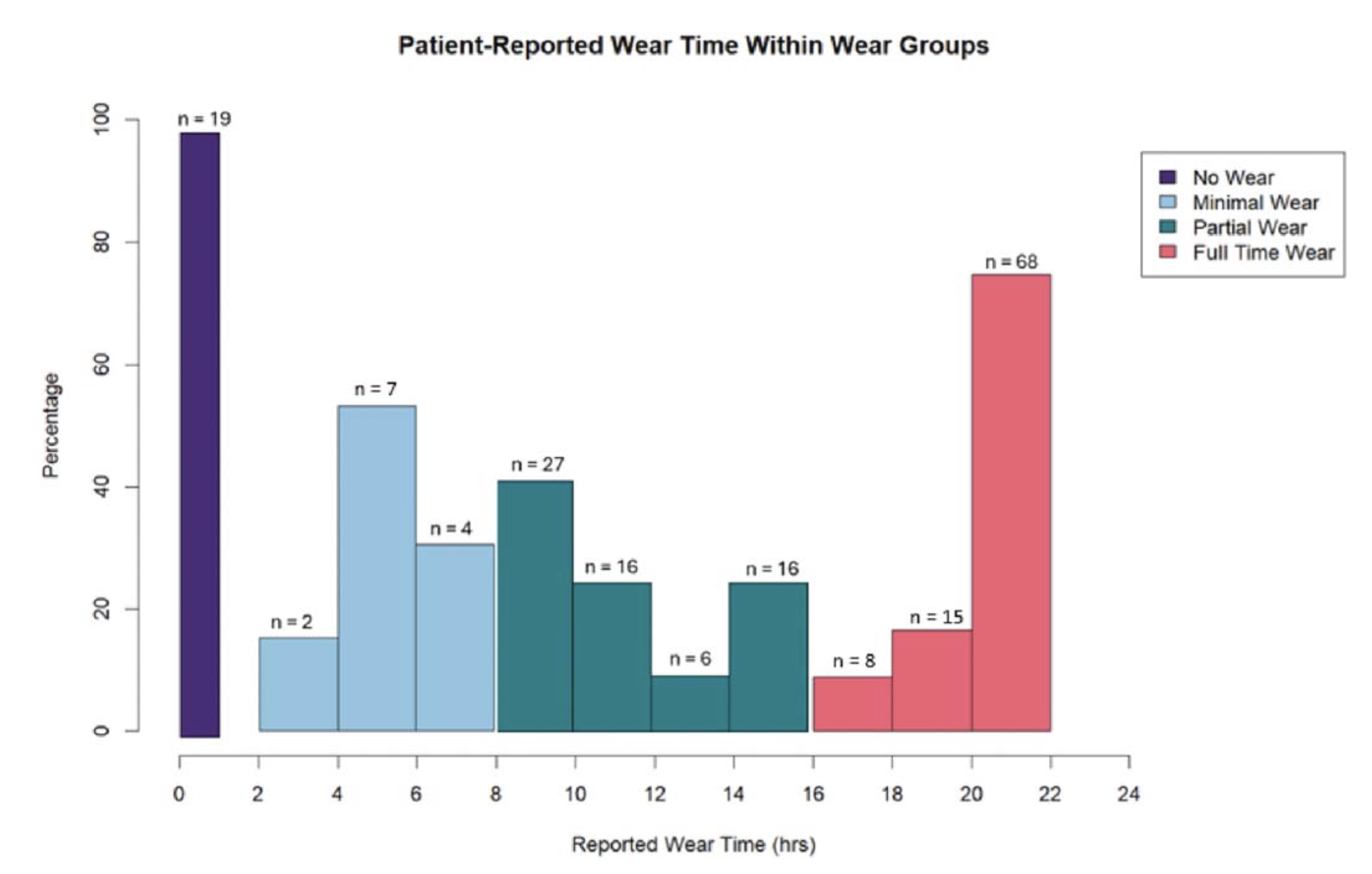
EMERSE was used to support the work of Peijin Han for her PhD thesis entitled, "Computational Algorithms for Identifying Patients Living with Dementia in Healthcare Systems". https://dx.doi.org/10.7302/27061
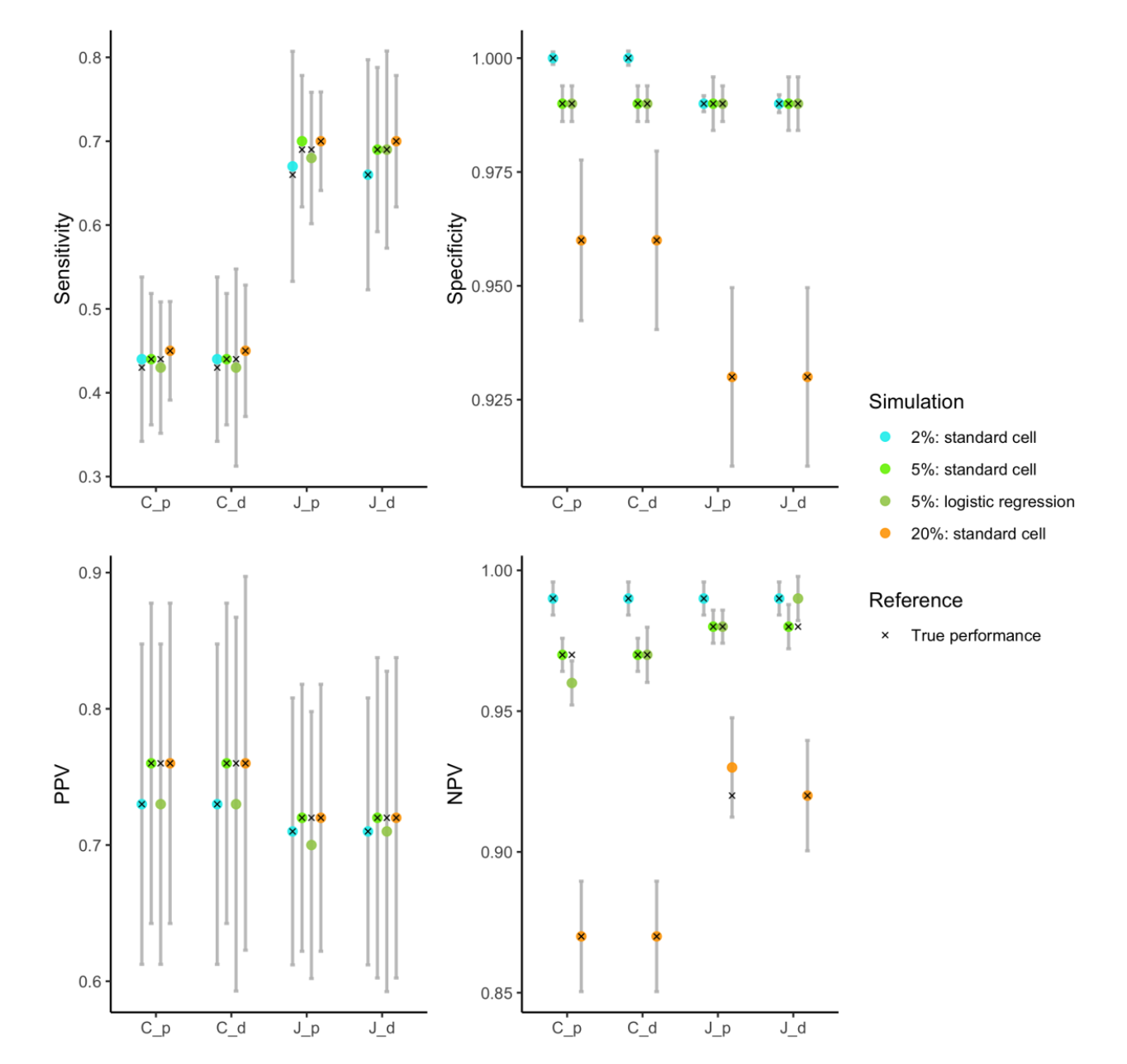
EMERSE was used for the abstract, "Computable Phenotype for Identifying Patients with CHARGE Syndrome: Opportunities to Improve Research and Care Coordination", presented a the APHA [American Public Health Association] 2025 Annual Meeting and Expo.
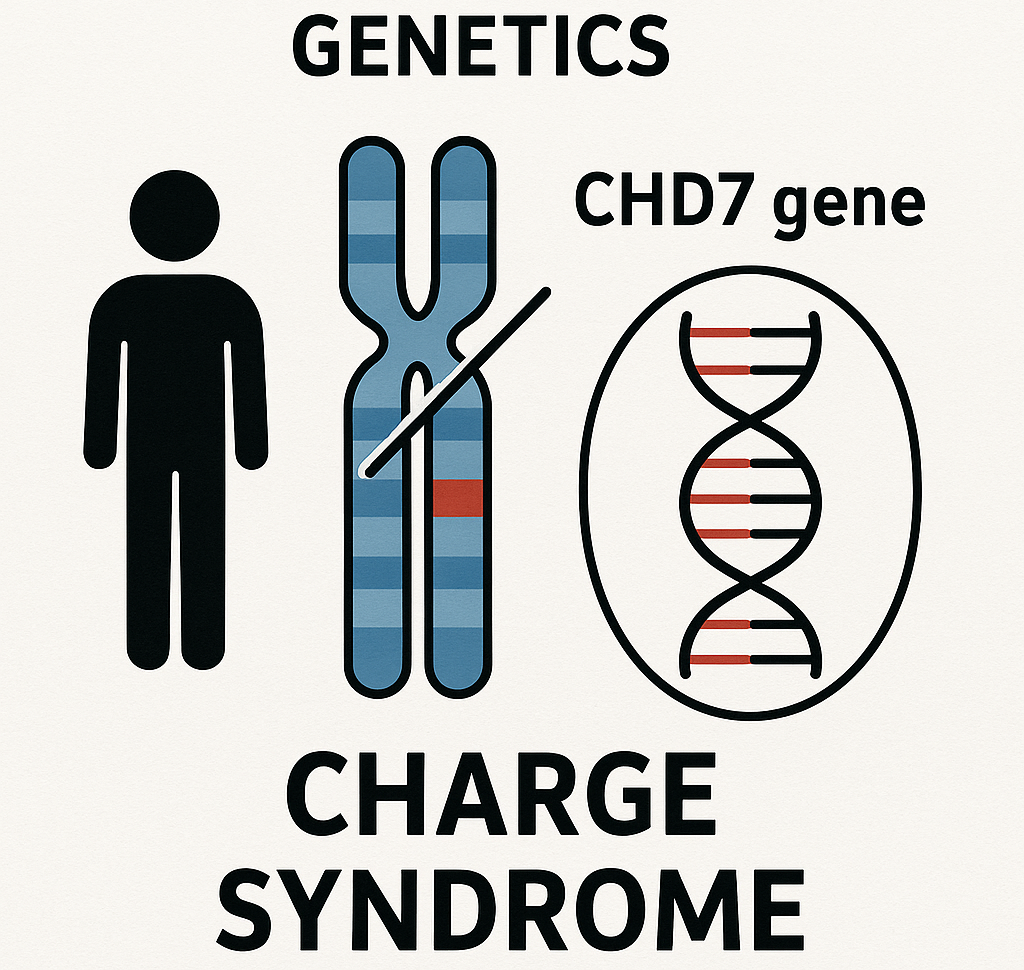
Participant recruitment was support with EMERSE for an mHealth study that examined compliance rates among partners of individuals with traumatic brain injuries. https://mhealth.jmir.org/2025/1/e73772
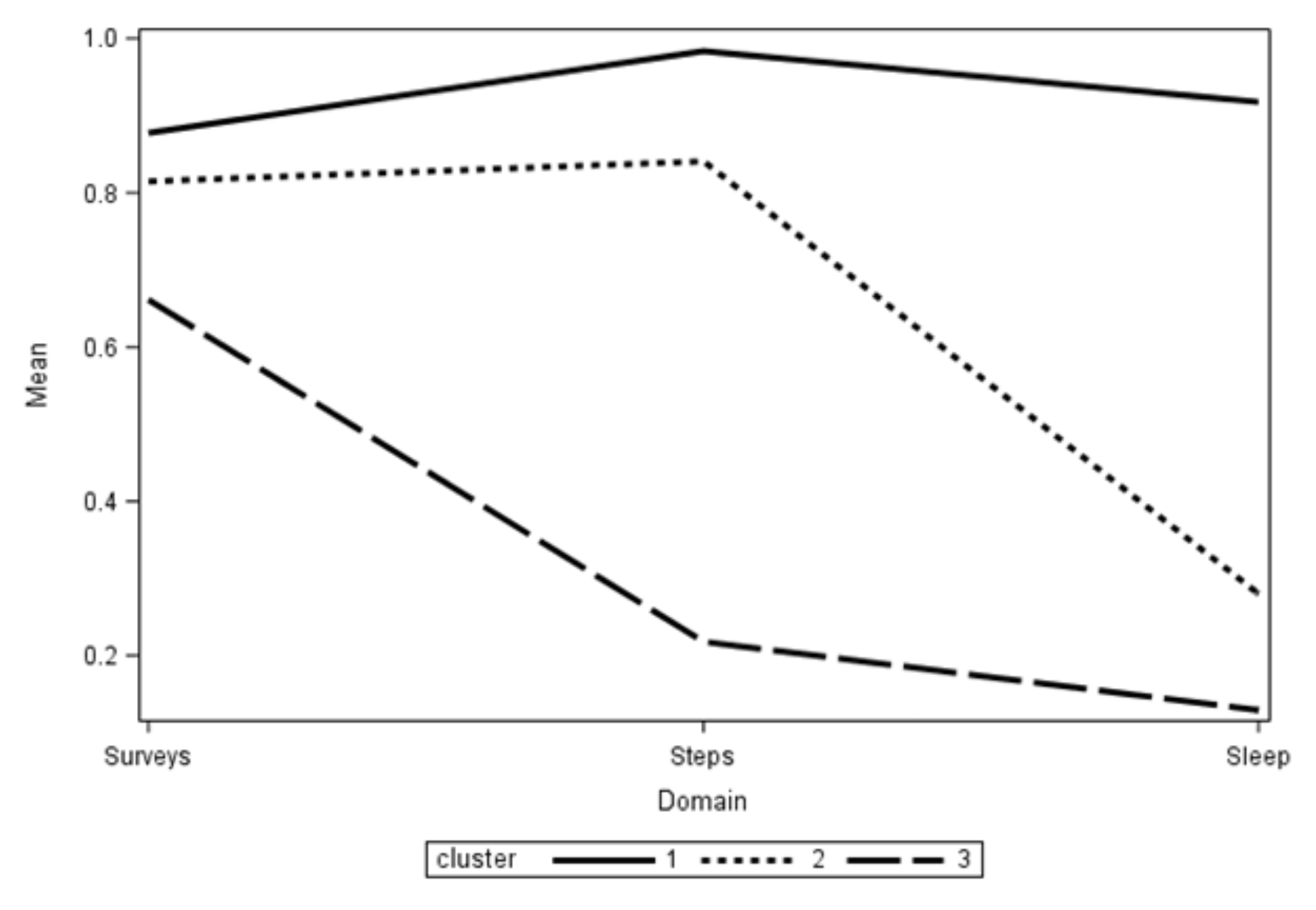
Athletes with initial and repeat concussions were examined for time to recovery in a study supported by EMERSE. Primary finding was "no differences in time to recovery between initial and repeat concussions sustained by the same athlete." https://journals.lww.com/cjsportsmed/abstract/2025/0...
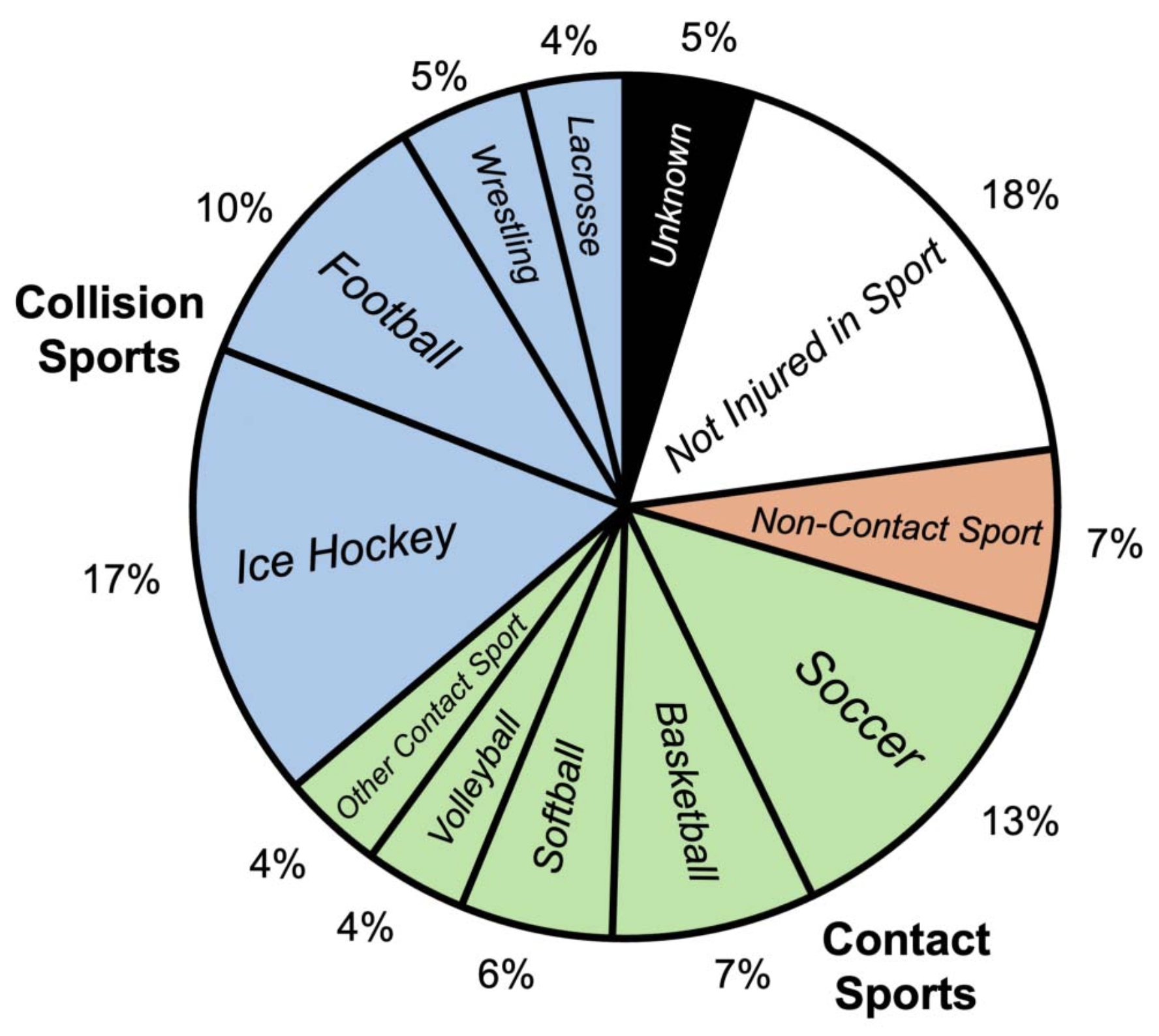
EMERSE was used to support the study "Cognitive impairment is associated with poor diabetic foot ulcer outcomes". https://www.primary-care-diabetes.com/article/S17...
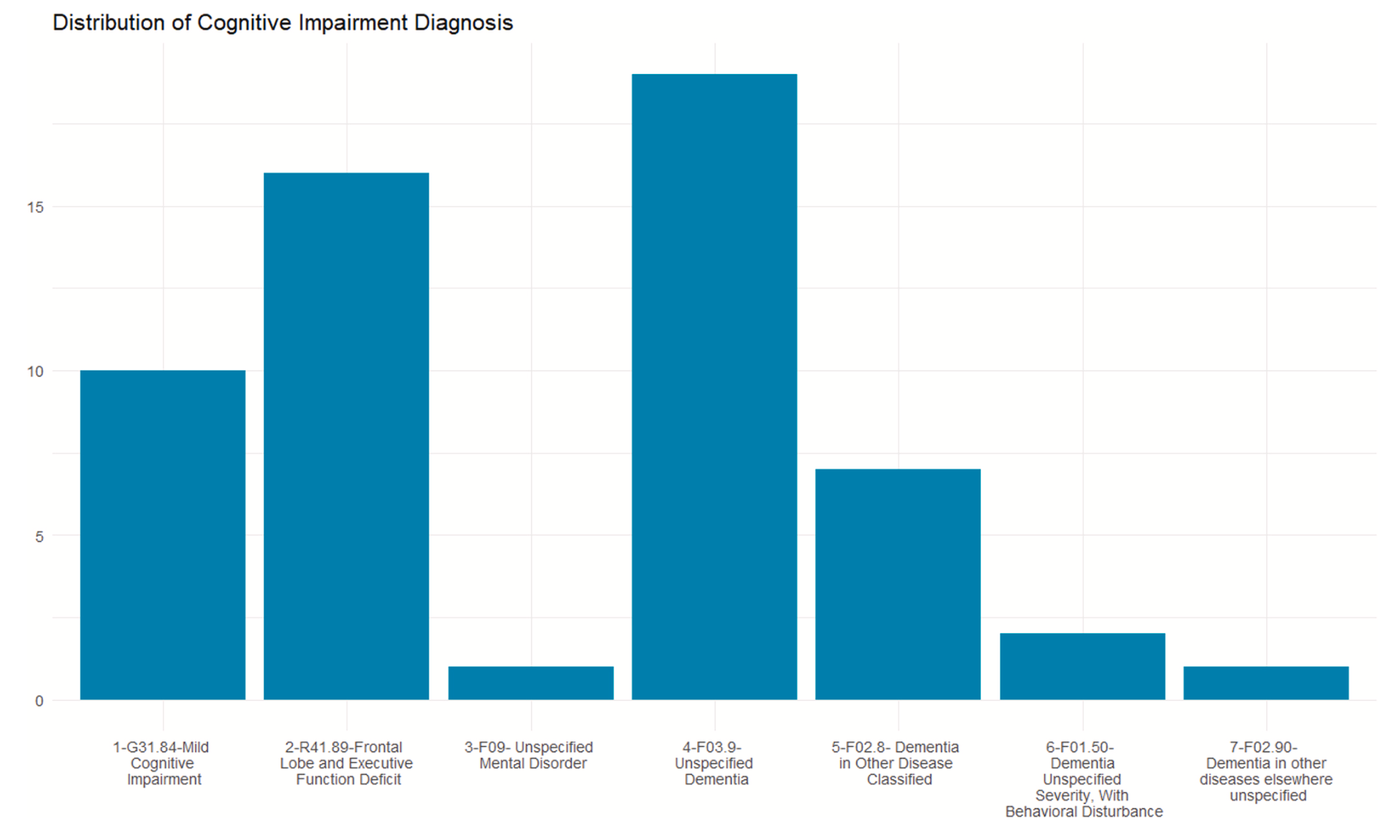
EMERSE was used to identify patients with a diagnosis of granulomatosis with polyangiitis (GPA)- related subglottic stenosis (SGS) in the study, "C- Reactive Protein Serum Values in Idiopathic and Autoimmune Subglottic Stenosis" https://onlinelibrary.wiley.com/doi/10.1002/lary.70167
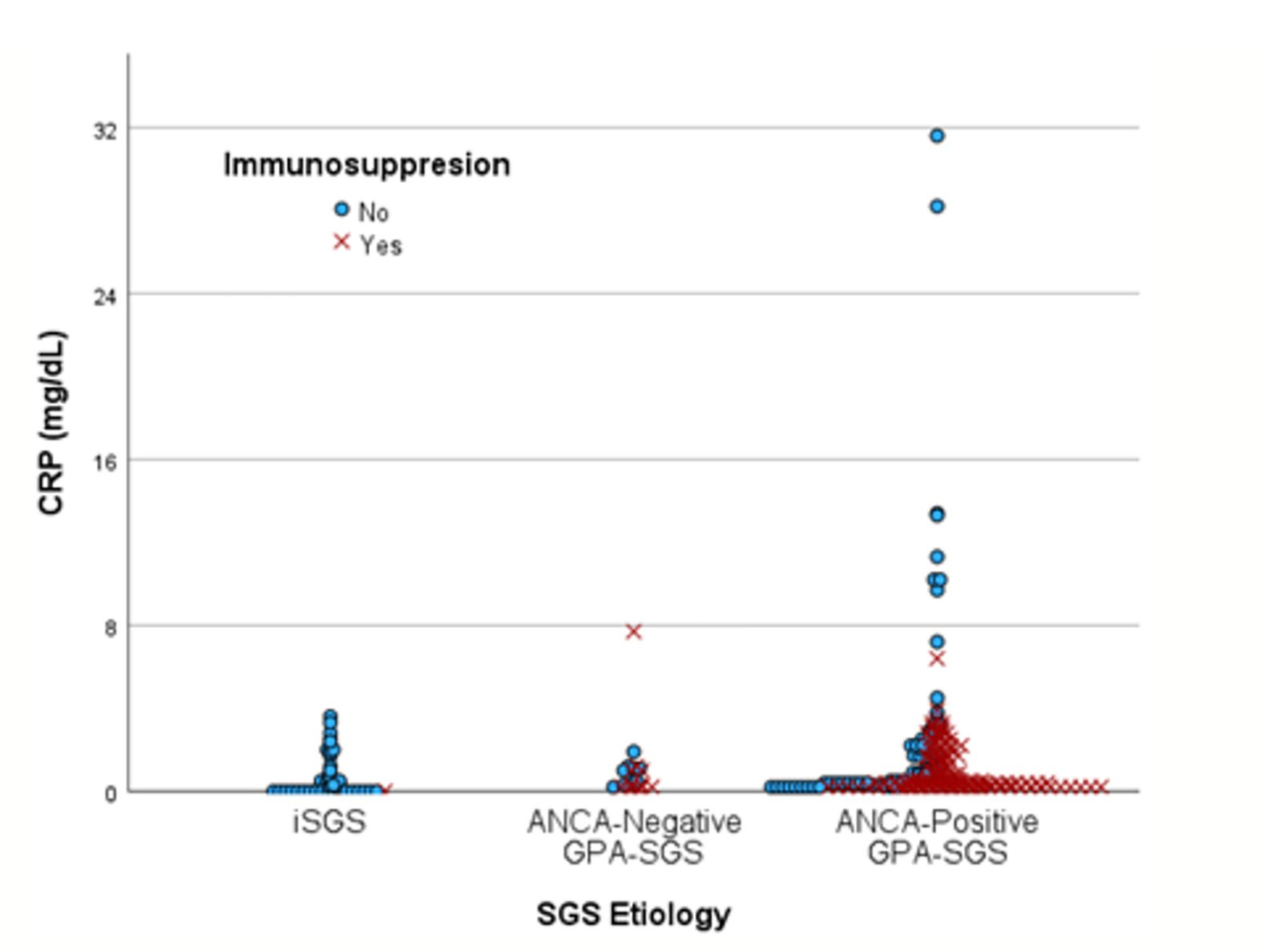
"EMERSE was searched for side effects, including nausea, diarrhea, vomiting, neutropenia, and fatigue" in a study that "finds evidence that patients with CES1 rs3785161 AA and ABCG2 rs2231142 AA/AC genotypes had higher rates of severe toxicity and neutropenia, respectively, during irinotecan therapy." https://journals.lww.com/jpharmacogenetics/abstract/2025/100...
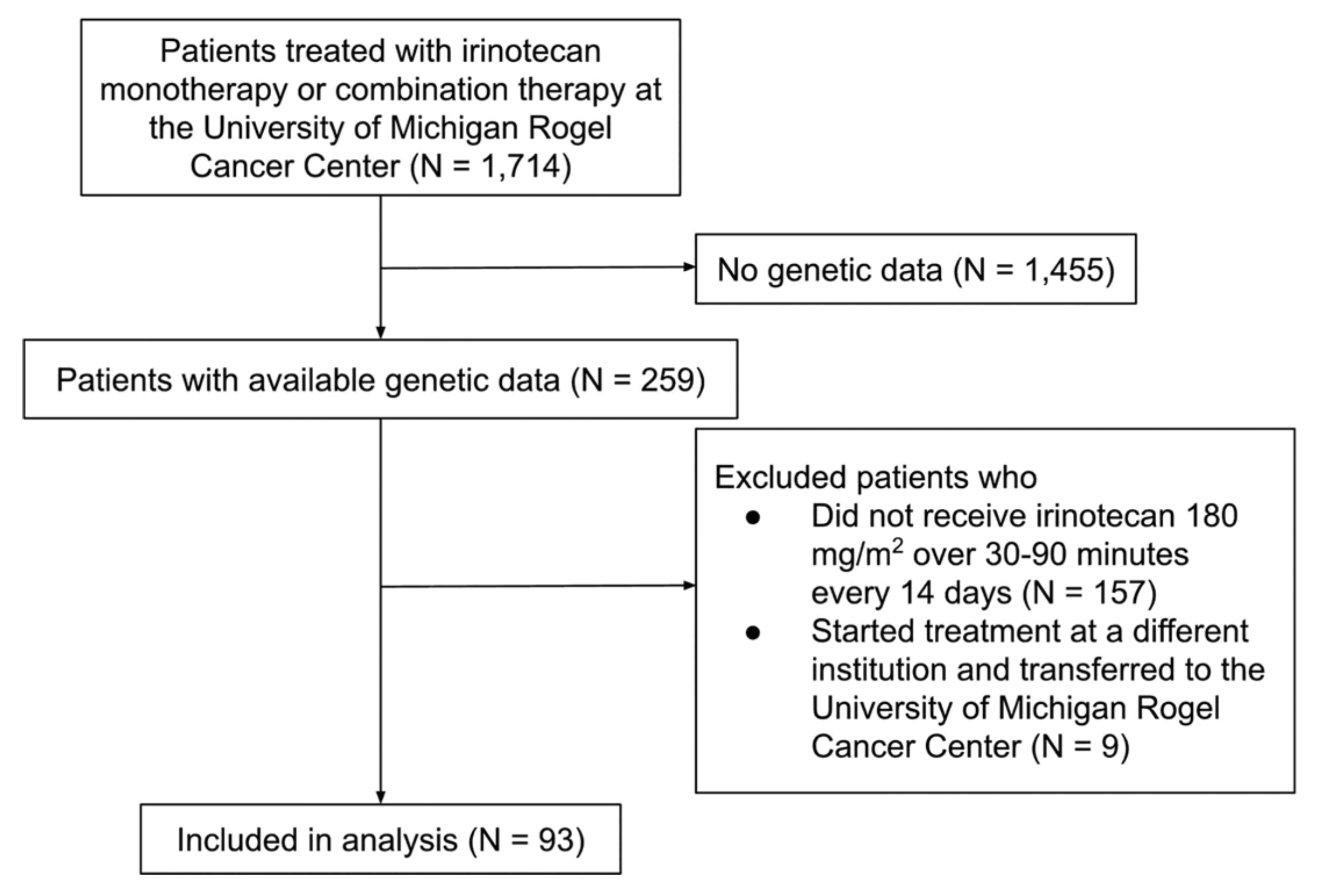
EMERSE "was used to identify eligible patients" for the study "Hypocalcemia After Cervical Procedures in Patients with a History of Nonbariatric Gastrojejunostomy" https://link.springer.com/article/10.1245/s10434-02...

EMERSE was used in the study, "Clinical and demographic characteristics of adolescents, emerging adults, and young adults presenting to an emergency department following a suicide attempt" @BrdarNM https://acamh.onlinelibrary.wiley.com/doi/10.1002/jc...
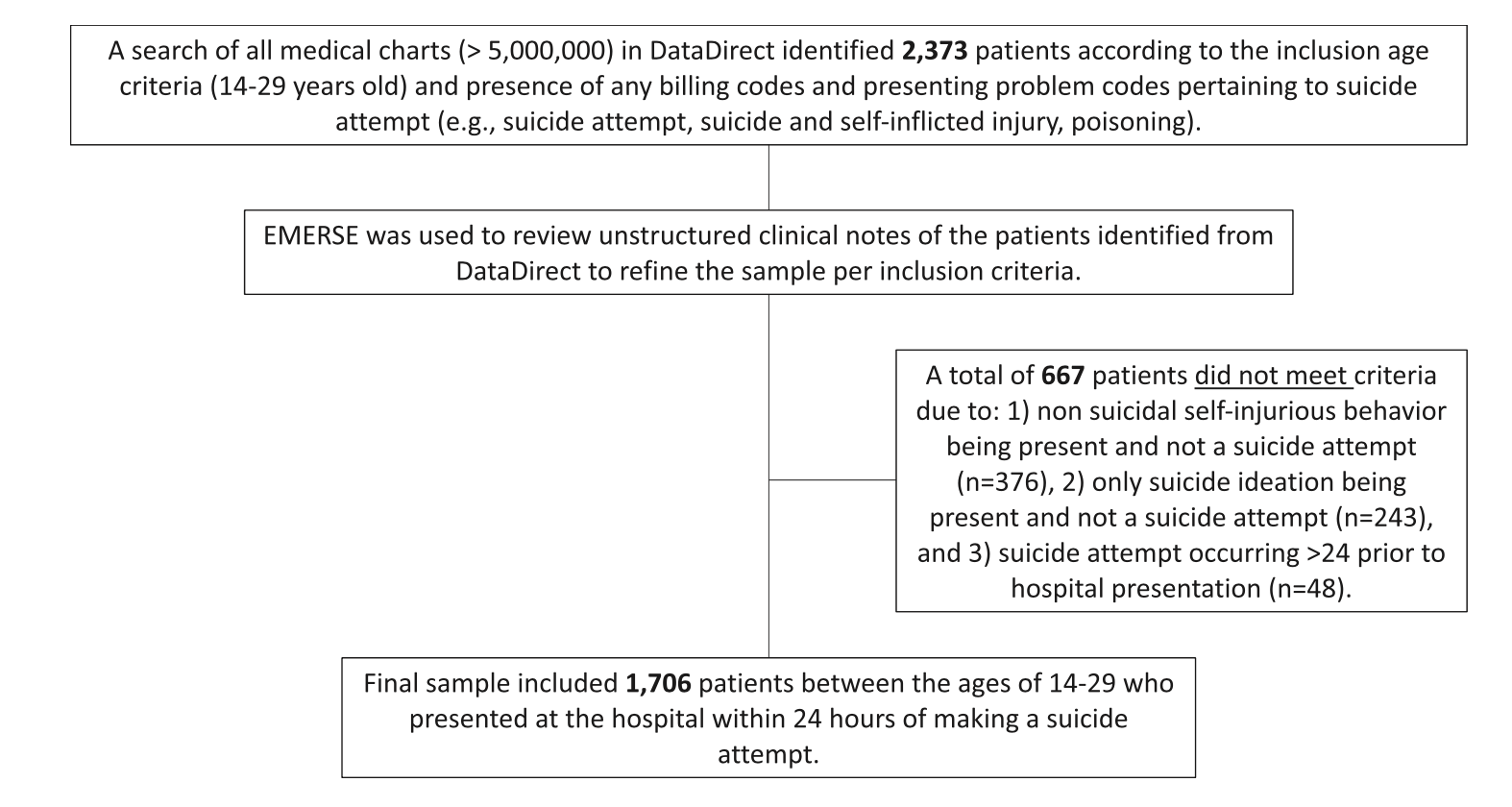
EMERSE was used to search for terms describing delirium behaviors such as "mental status changes, altered mental status, hallucinations, agitation, disorientation, lethargy, and inattention" for a study conducted at the U of Michigan School of Nursing.
https://connect.springerpub.com/content/sgrjdnp/18/1/68
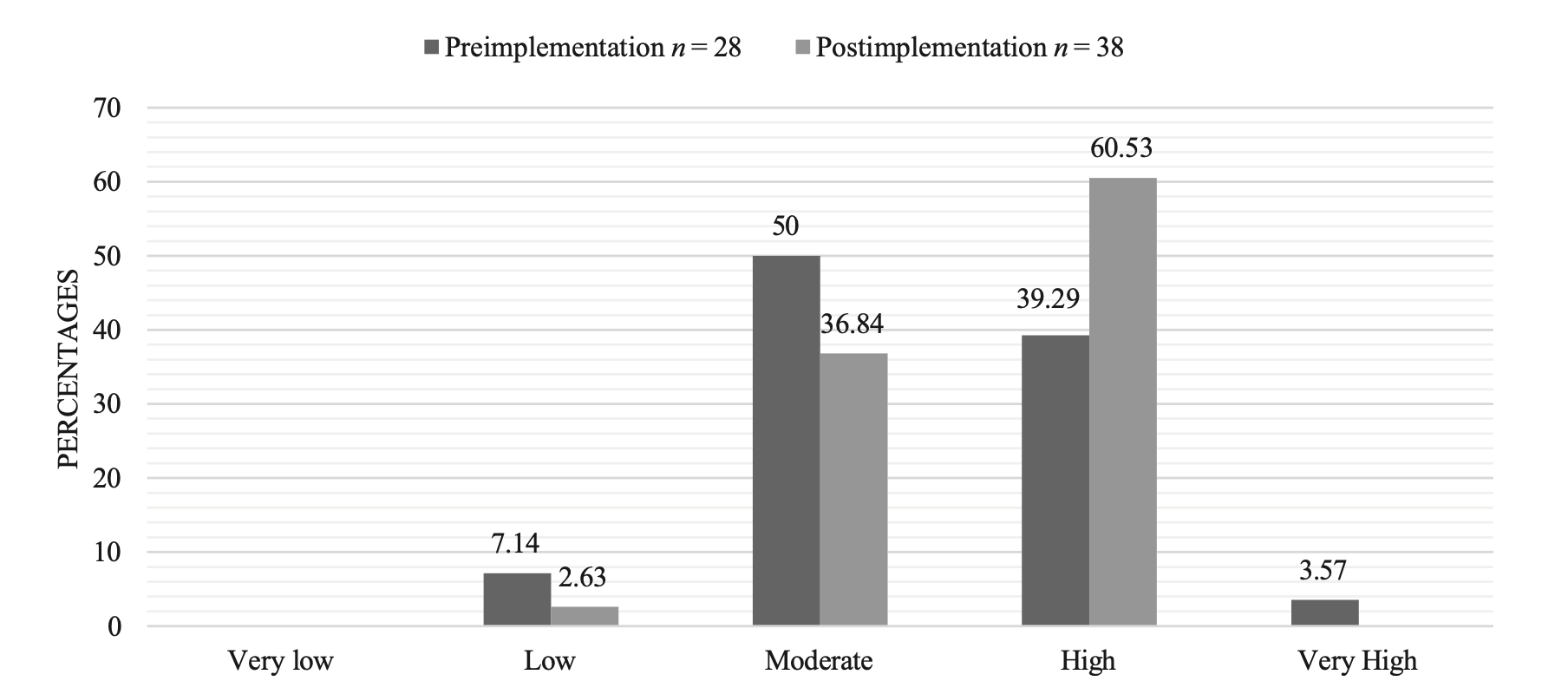
Researchers at UCSF used EMERSE in the abstract "Evaluation of Presenting Symptoms in Pediatric Patients with Hemophagocytic Lymphohistiocytosis (HLH) Versus HLH Mimics" presented at the 2025 Clinical Immunology Society (CIS) Annual Meeting.
@mattzinter_MD
https://doi.org/10.70962/CIS2025abstract.172

EMERSE was used by researchers at UNC-Chapel Hill for the abstract "Immunomodulator Use in Steroid Refractory Immune Checkpoint Inhibitor Pneumonitis" presented at the ATS International Conference in San Francisco.
https://doi.org/10.1164/ajrccm.2025.211.Abstracts.A5509
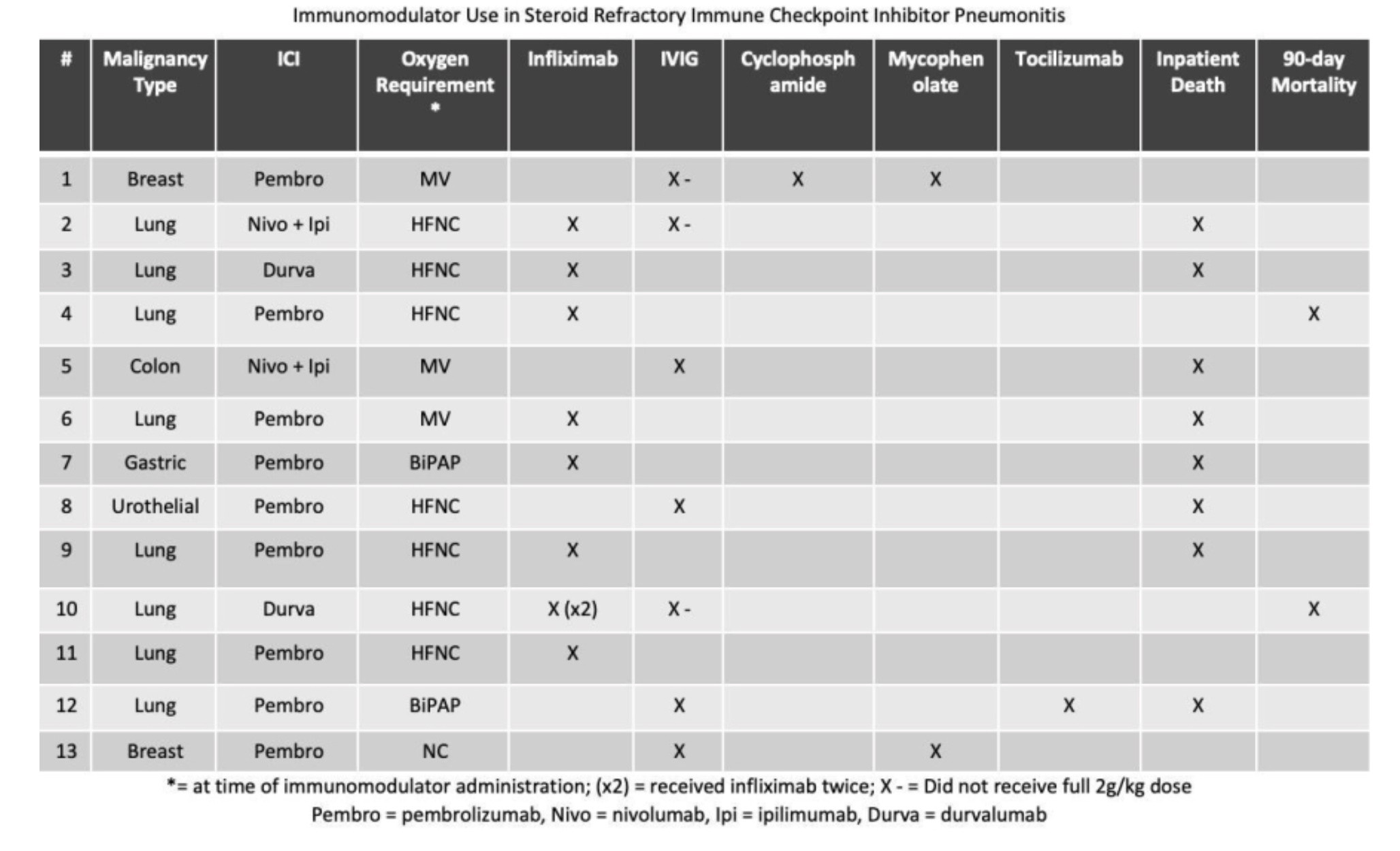
"...a manual search confirmed all diagnoses and fractures....with the assistance of an internally developed software...EMERSE..." in paper about fractures in adults w/ intellectual disabilities and autism.
@MichelleSCaird
https://doi.org/10.1111/jir.13255

Researchers "searched the Department of Pathology archives and EMERSE...for BIMTs that had undergone single-nucleotide polymorphism (SNP) microarray testing" for paper on BAP1-inactivated melanocytic tumours.
@ZoumberosMD @skinandsoftbits @DoruAndea
https://doi.org/10.1111/his.15434
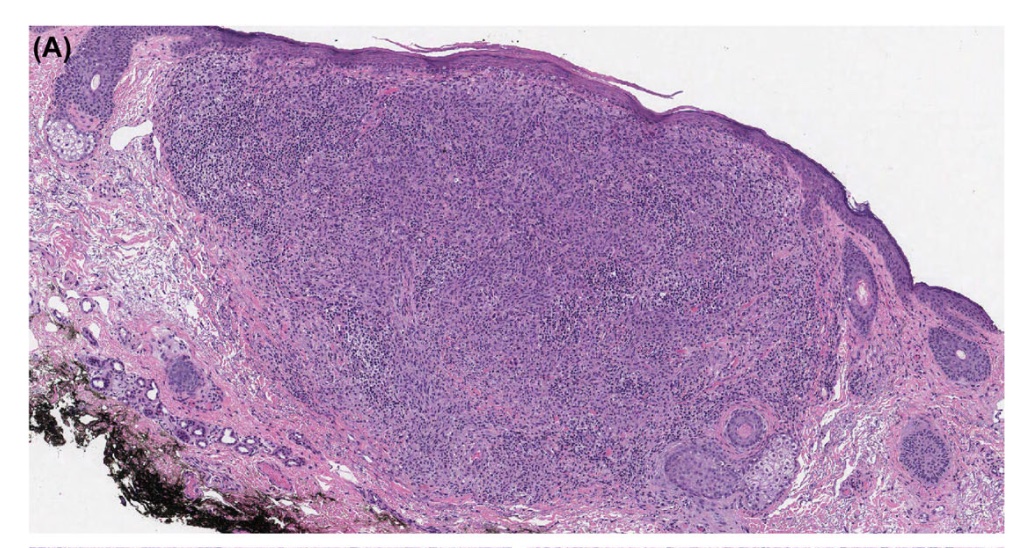
EMERSE was used to "identify GMFCS [gross motor function classification system] as close to day 0 as possible" for the study "Prognostic comparison between GMFCS and WCI for 5-year risks of 22 relevant health outcomes for adults with cerebral palsy: Expanding the methodological menu for prognostic model research"
https://www.sciencedirect.com/science/article/abs/pii/S193....
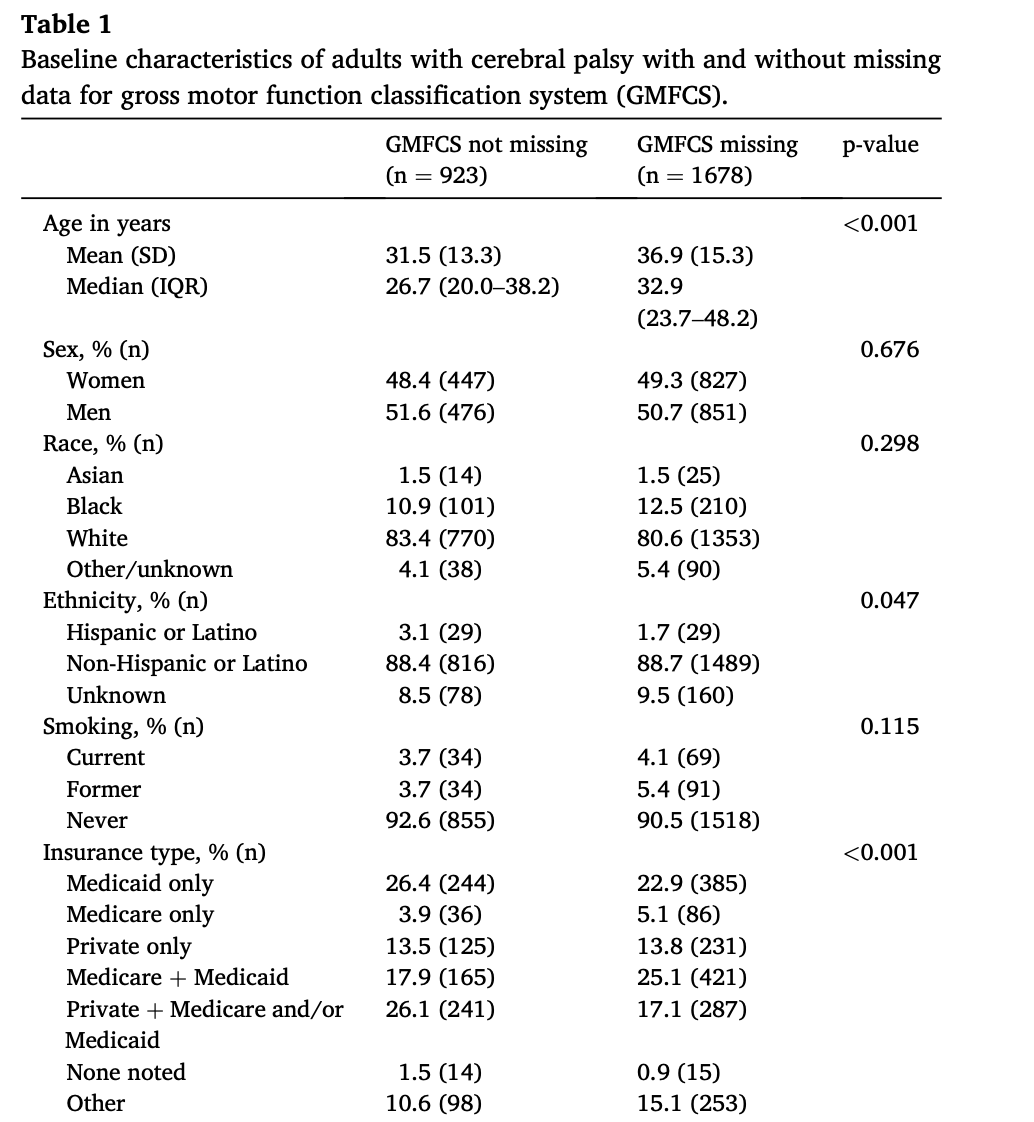
Clinical notes were searched...using [EMERSE] and key search terms included 'atrial fibrillation', 'atrial flutter', 'arrhythmia', 'tachycardia', and 'hypertension'" for the paper "Pharmacogenetic associations of GATA4 and KCNQ1 with ibrutinib cardiovascular toxicity"
https://journals.lww.com/jpharmacogenetics/abstract/2025...
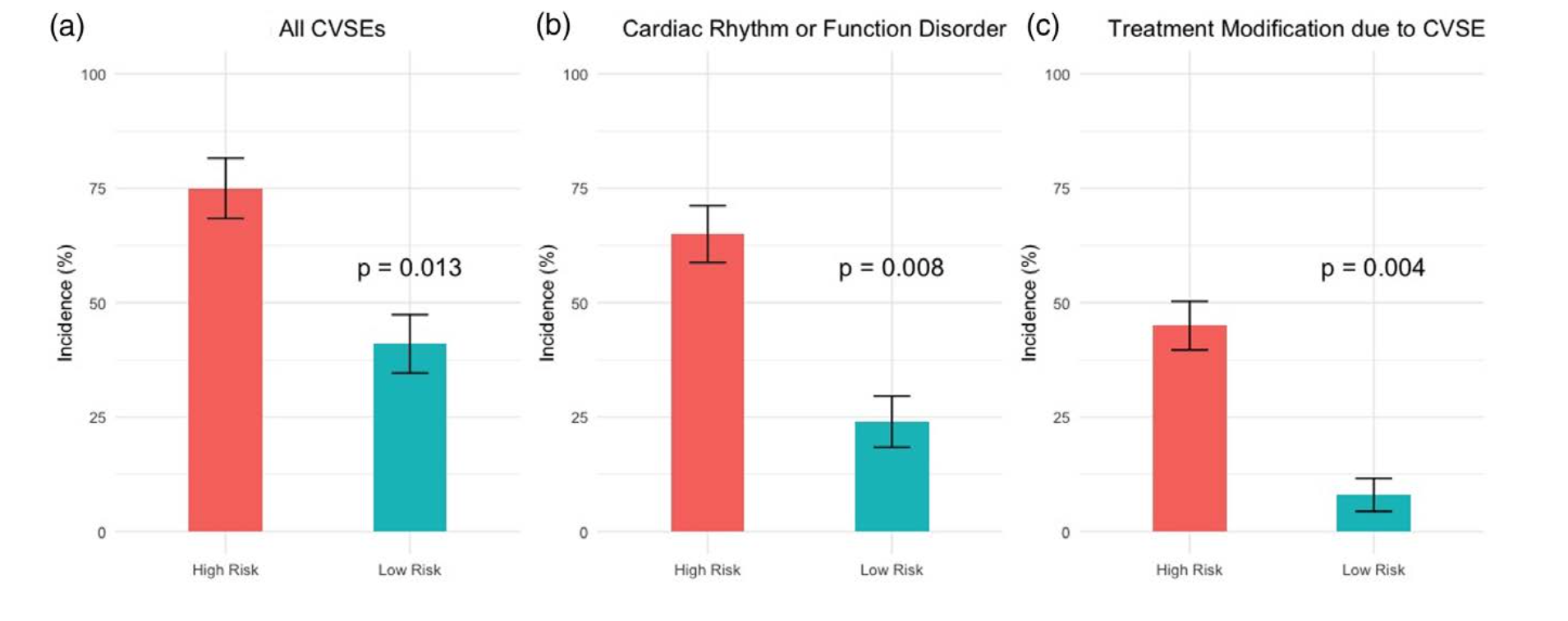
"TriNetx..and EMERSE...was used to identify patients who satisfied the inclusion criteria, with the assistance of UC's Center for Health Informatics" for the paper, "Outcomes and Prognostic Assessment of Post-Transplant Lymphoproliferative Disorder: 20-Year Experience"
@hiragss @OmerZulfa @TMaggeMD @shimulshah73 @TahLatif
https://doi.org/10.3390/lymphatics3010005
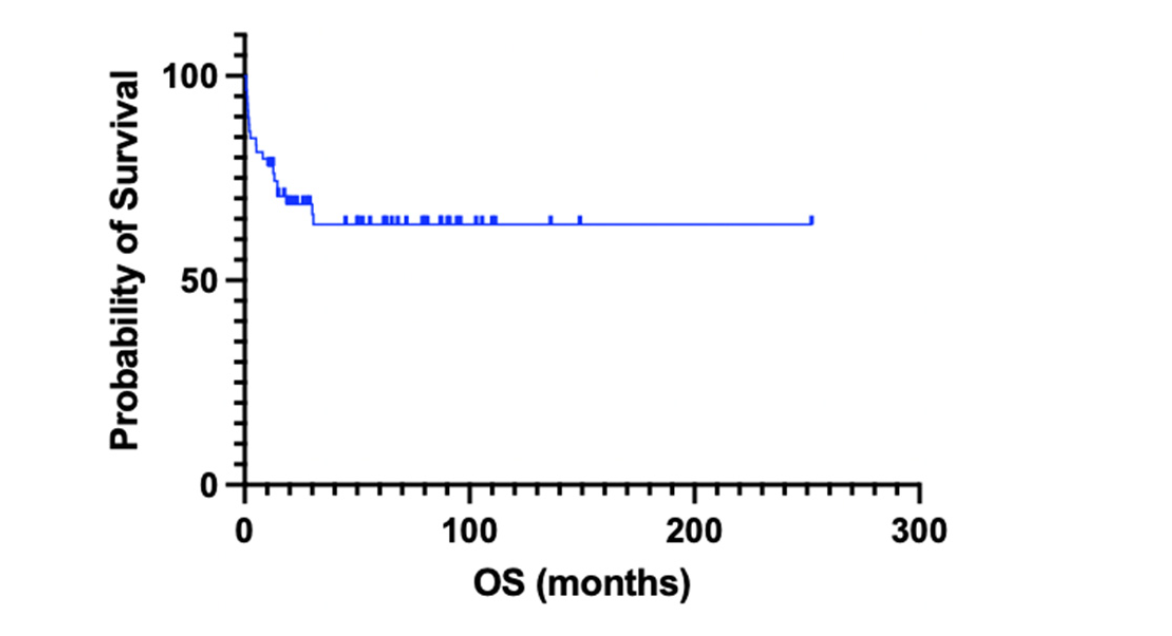
EMERSE supported recruitment for the study, "Improving Outcomes for Care Partners of Individuals With Traumatic Brain Injury: Results for a mHealth Randomized Control Trial of the CareQOL App"
@Srijan_SenMDPhD @ZhenkeWu
https://www.archives-pmr.org/article/S0003-9993...
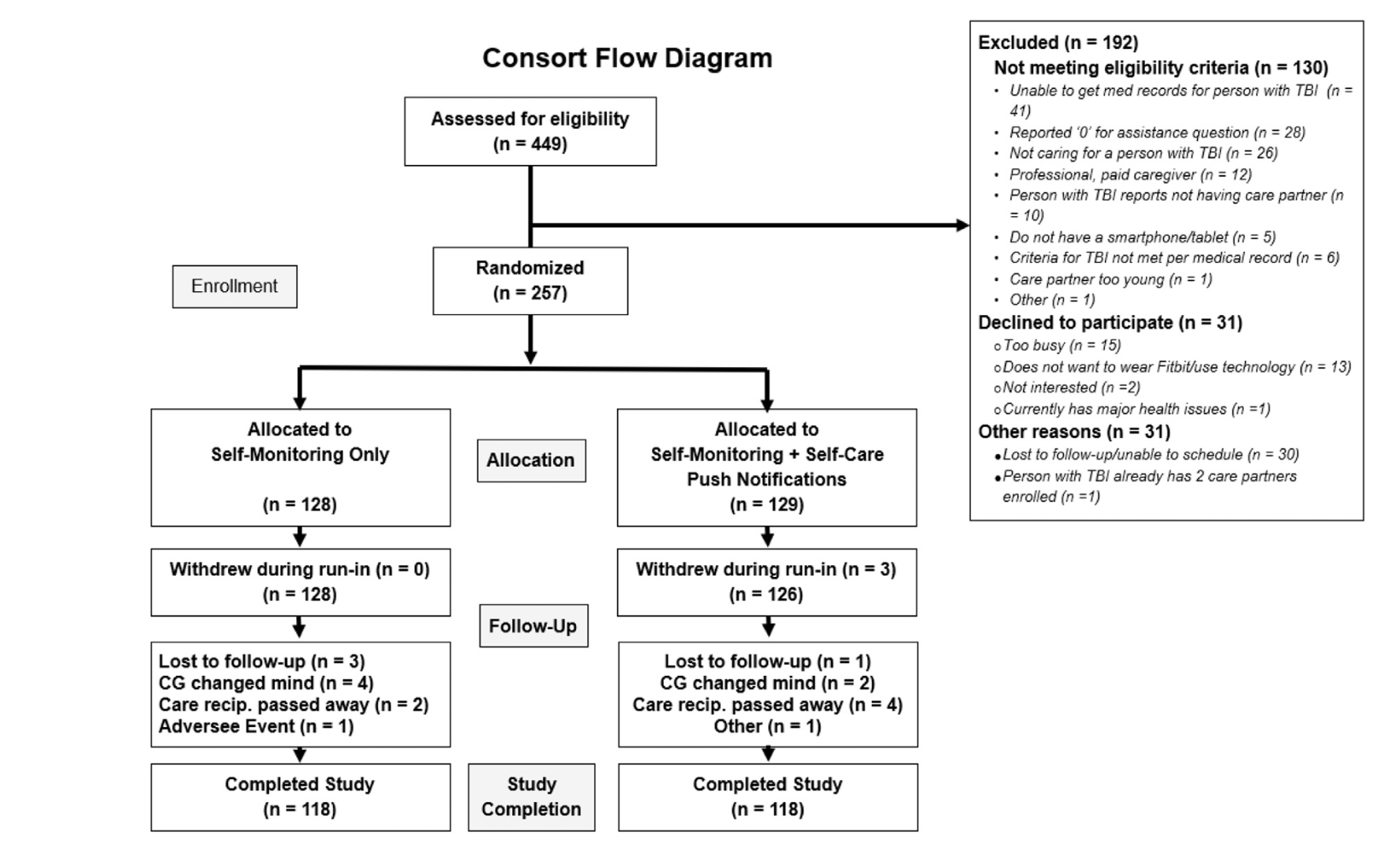
EMERSE was used "to capture additional patients...with SMI [serious mental illness] whose medical record may contain out of date or incorrectICD diagnosis codes..." which "yielded 33 additional patients".
"one of the strengths of this study was the utilization of EMERSE."
@jnatediehl @AudreyLKhoury @julia_brickey @gitamody @BenHaithcockMD
https://jtd.amegroups.org/article/view/94795/html
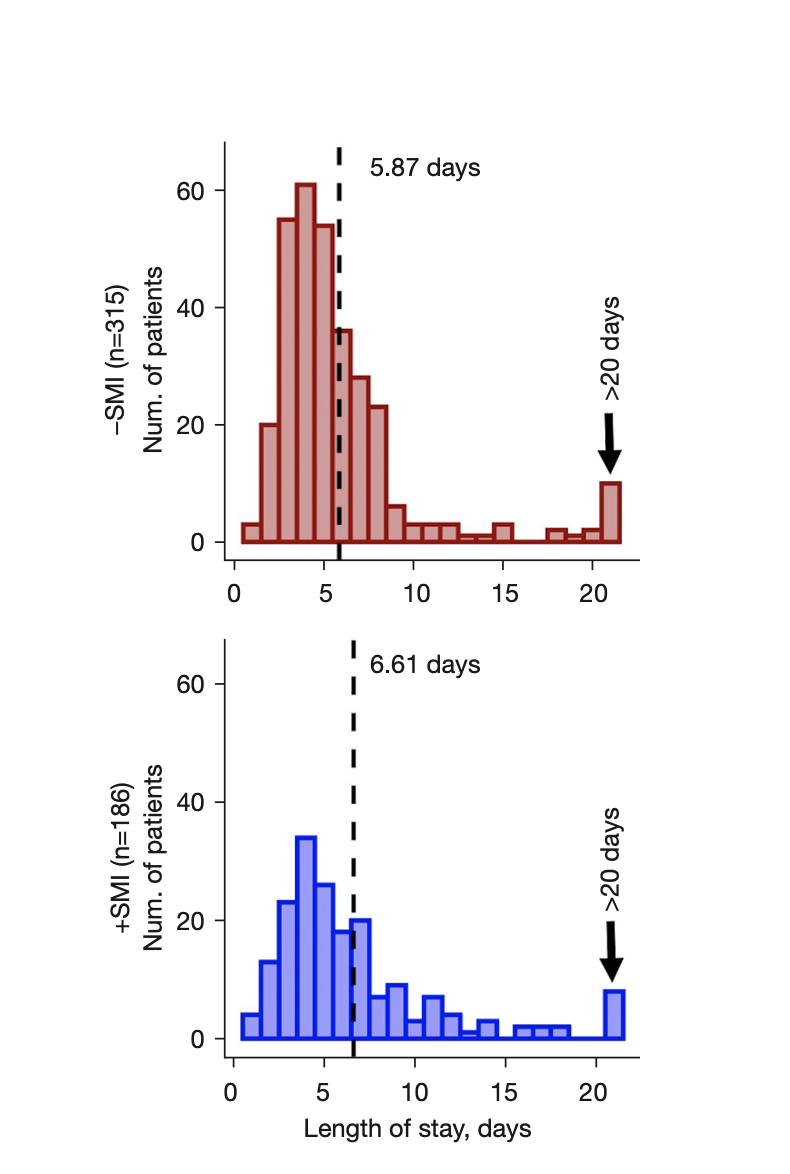
"...chart review of all infants born during the training period was performed using a web-based tool called...EMERSE".
Main finding: "hands-on training with the MiHip simulator improved resident knowledge and DDH examination confidence, and ultimately, improved diagnostic accuracy in the clinical setting."
@SaumyaG @_KrupaPatel_ @meduc8r
https://www.sciencedirect.com/science/article/abs/pi...
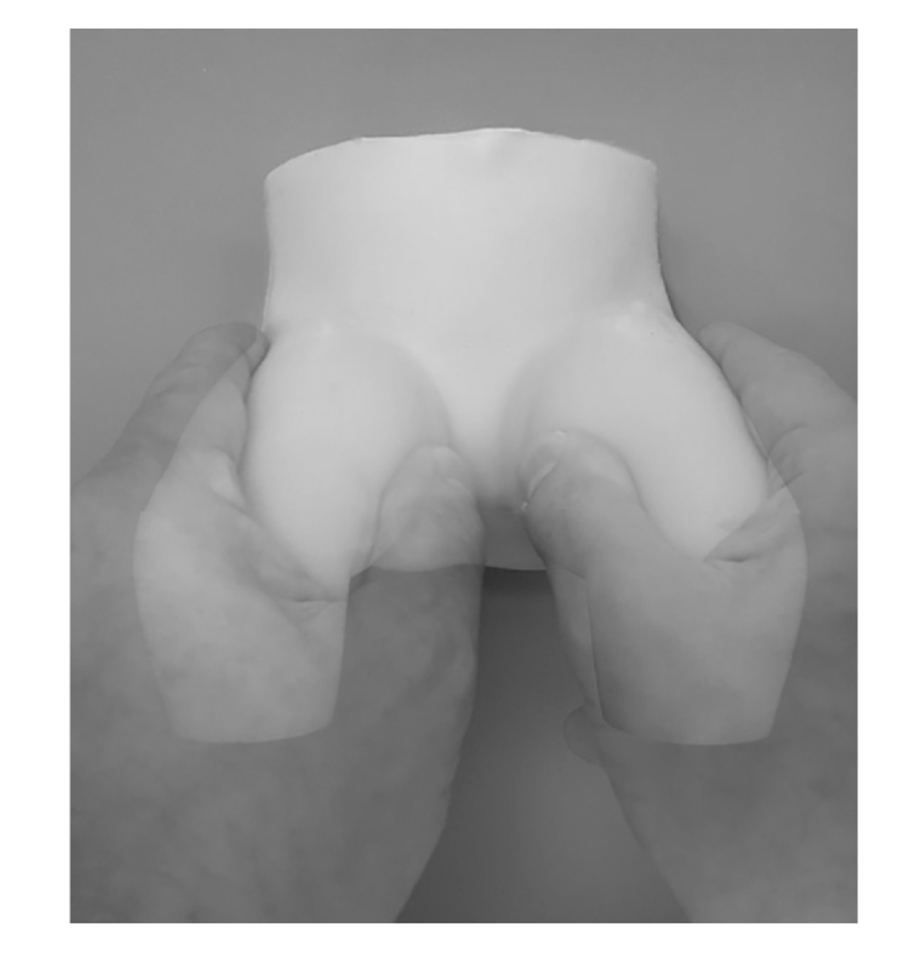
Data extraction was supported with EMERSE for the paper, "Documenting Pediatric Delirium During Transitions of Care: A Single Site Observational Study" https://journals.sagepub.com/doi/10.1177/08...
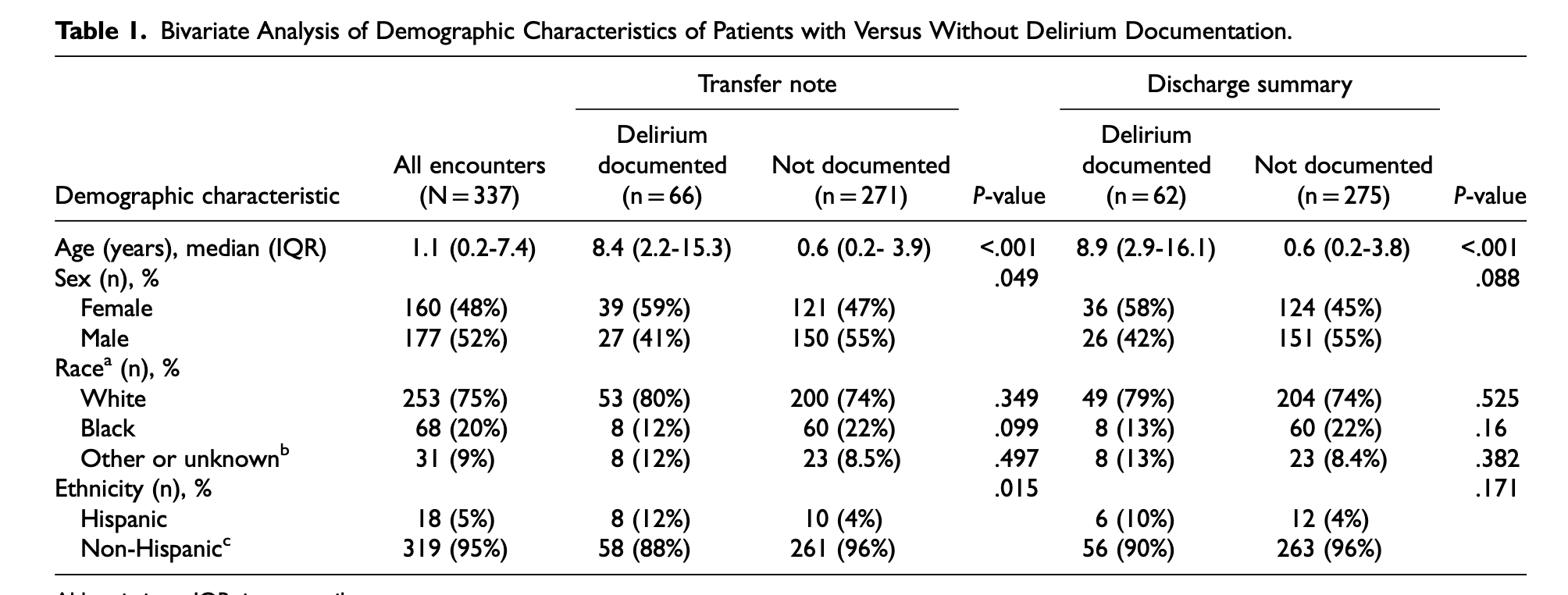
EMERSE was used to support the study "Development and acceptability testing of a tracheostomy decision support video for parents"
@stephaneonatal @KenPituch
Paper at: https://www.sciencedirect.com/science/article/pii/S2...
Video at: https://deepblue.lib.umich.edu/handle/2027.42/192788
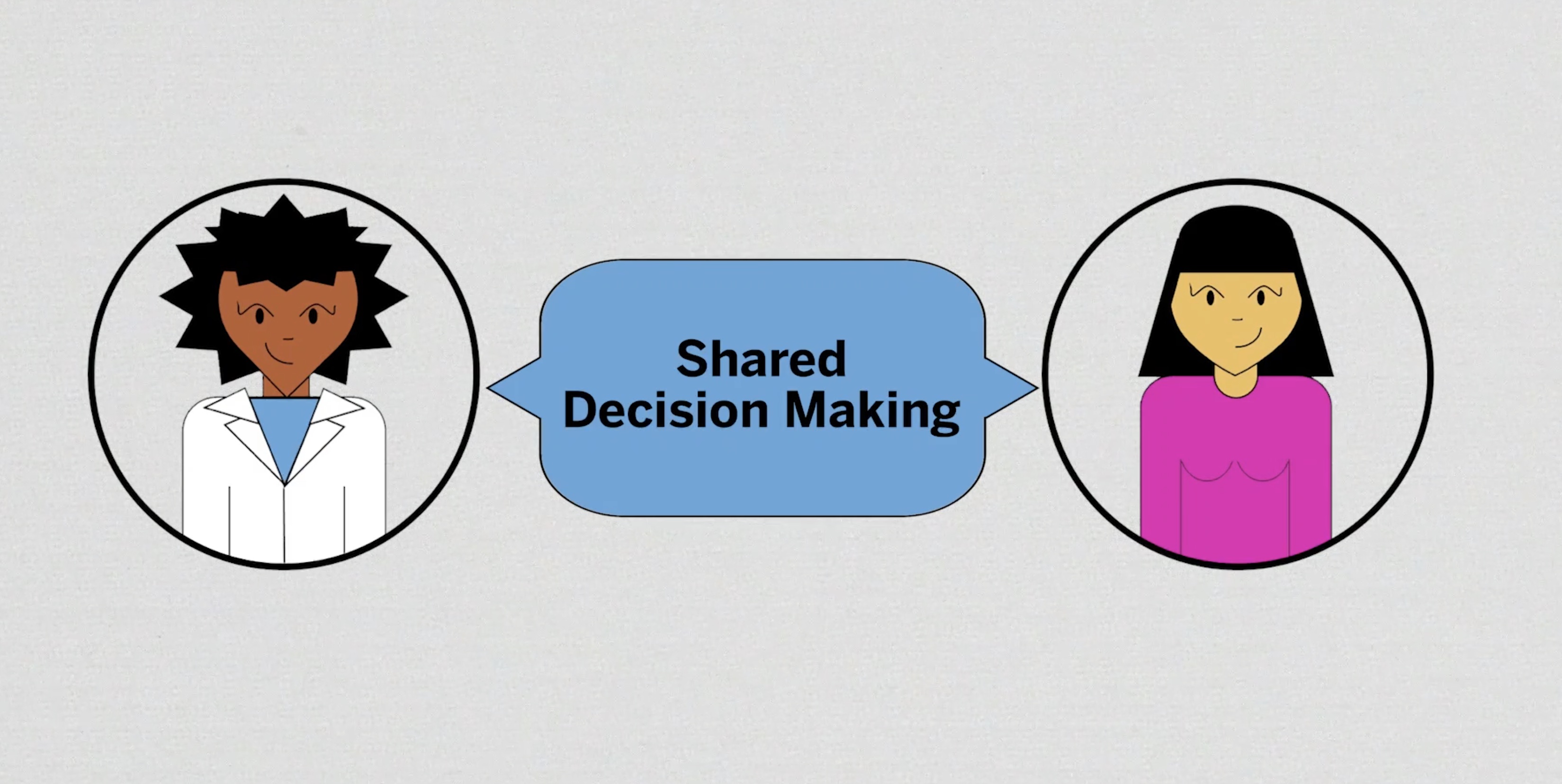
"EMERSE...software was used to find LI [legacy interventions] in the medical records as well as manual chart review" for abstract, "Delivery of Legacy Interventions at C. S. Mott Children’s Hospital QI Study" presented at the 2025 Annual Assembly of Hospice and Palliative Care https://www.jpsmjournal.com/article/S0885...

"...strengths of this study include the use of EMERSE to identify eligible patients..." in the paper, "Clinical Delivery of Whole Systems Traditional Chinese Medicine and Impacts Upon Patient Reported Outcomes During IVF". https://doi.org/10.1177/27536130251349116
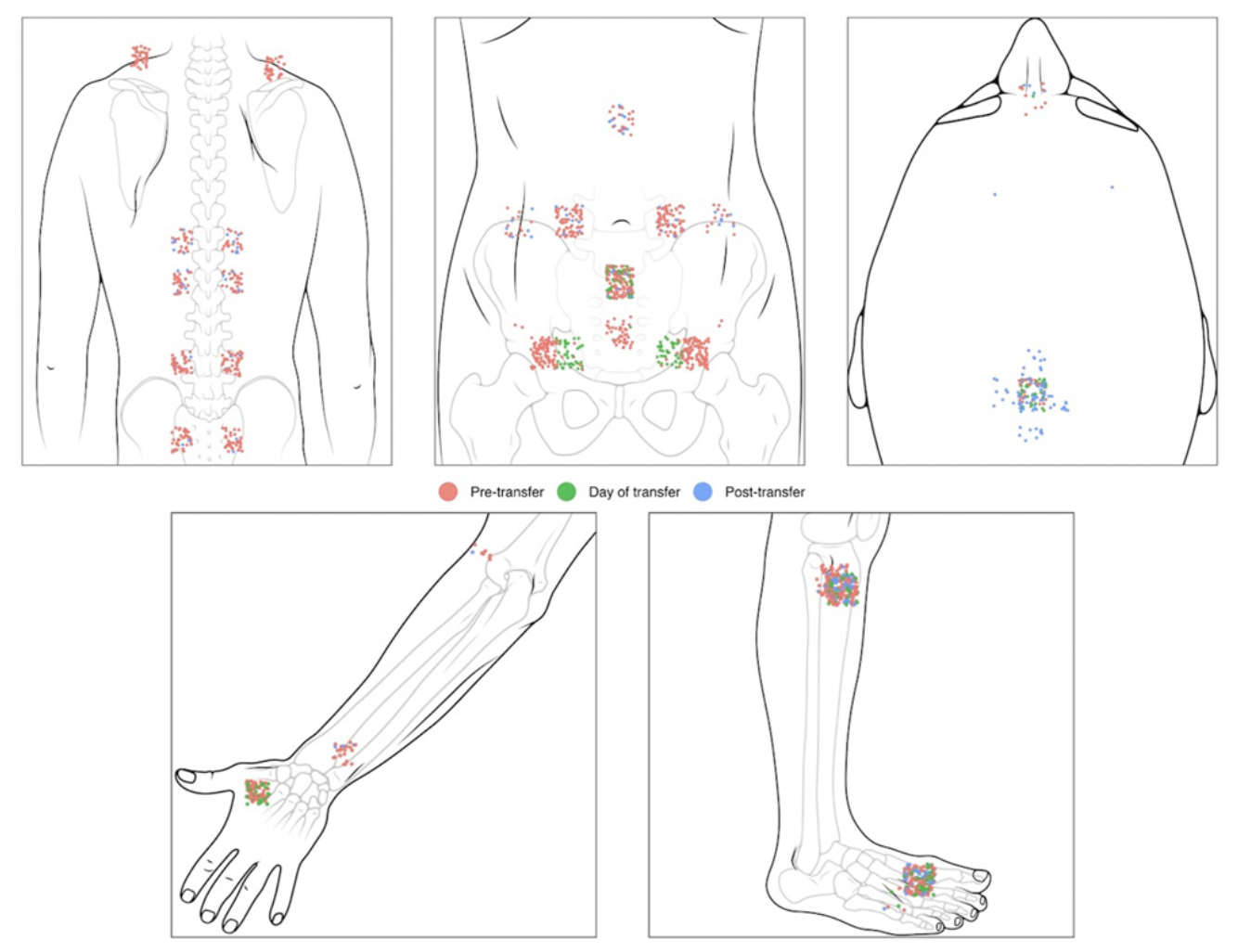
"The EMR and local registries of patients at the University of Michigan were searched using...the EMERSE software" as reported in the abstract "Clinical and genetic characteristics of patients with adrenocortical carcinoma and lynch syndrome" @DrGaryHammer https://www.endocrine-abstracts.org/ea/0107/ea01...

EMERSE was used to identify patients for the paper, "Brain MRI Lesions in Alexia Without Agraphia: A Case–Control Study", the "first controlled study with MRI data to show imaging support for both hypothesized mechanisms of AWA." @JerShapi https://journals.lww.com/jneuro-ophthal...
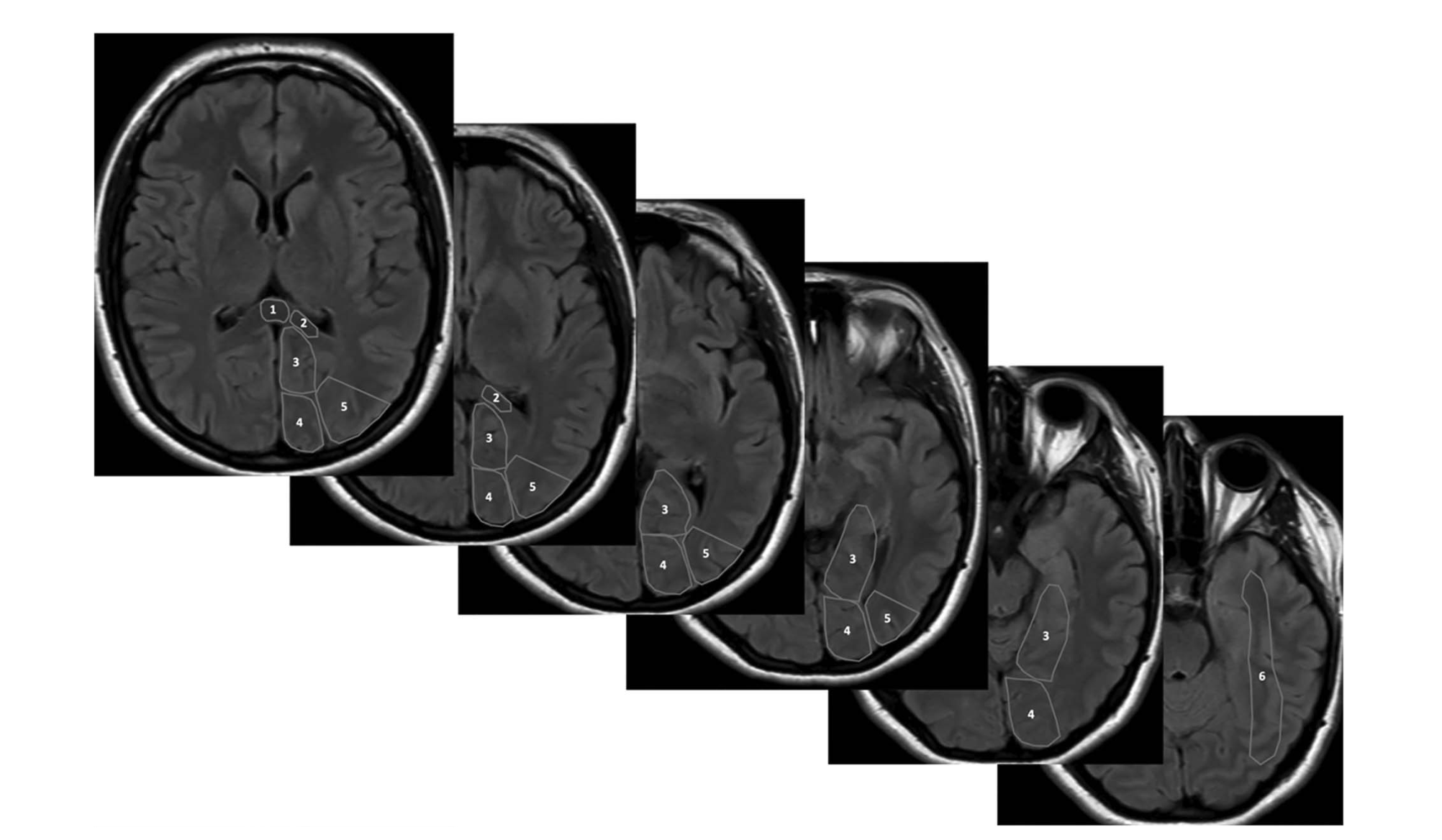
Patients with peripartum cardiomyopathy (PPCM) were identified with EMERSE for the study "Efficacy and Safety of Implantable Cardioverter-Defibrillator Use in Peripartum Cardiomyopathy" @AngMNoll @AurasAtreya @JasneetDevgun @MGhannamMD @MelindaDavisMD https://www.sciencedirect.com/science...
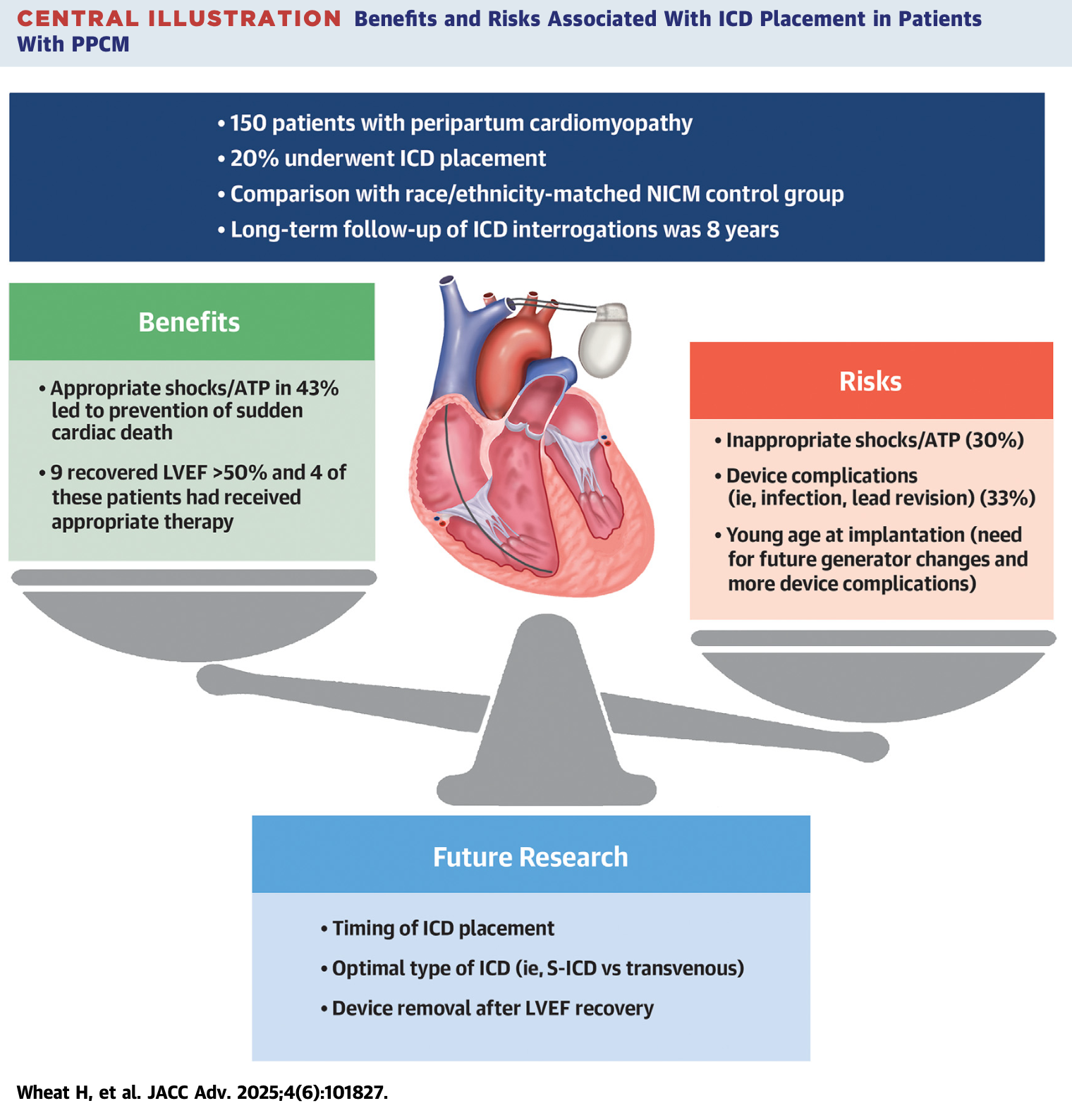
Slides and video recording of the recent EMERSE Community meeting from May 14, 2025 are now available online at https://project-emerse.org/community.html, which included a great presentation by Erik Harden from Columbia University Medical Center.
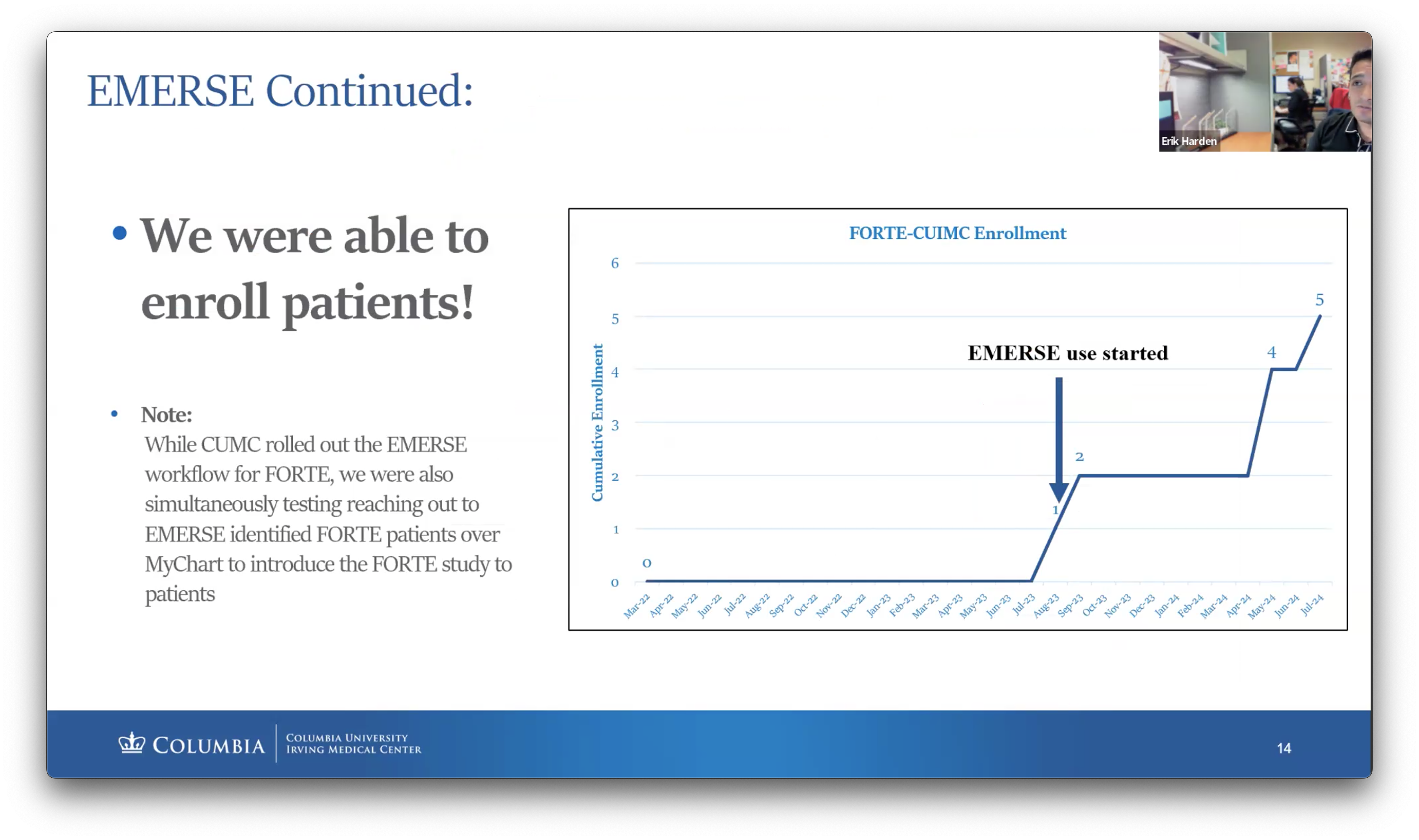
Researchers at Utrecht University in the Netherlands used EMERSE to identify 21 patients with Boerhaave syndrome, "a rare, life-threatening condition, characterized by spontaneous esophageal rupture" https://link.springer.com/article/10.1007/s00464...
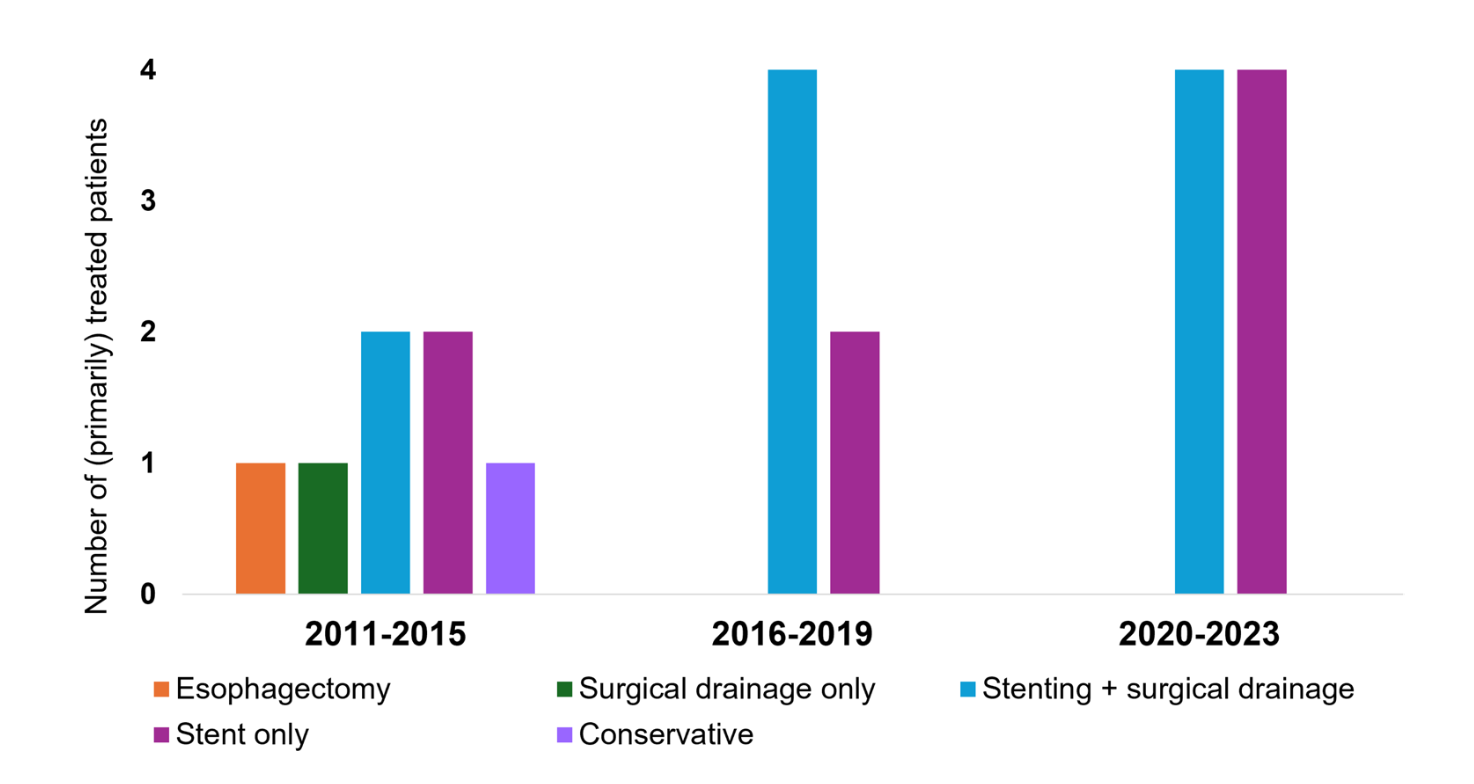
EMERSE "was utilized to perform term-based queries of clinicians' notes" for study "Factors Associated With the Recovery of Left Ventricular Ejection Fraction in Patients With Anthracycline-Induced Left Ventricular Dysfunction" @ShuggTyler @rtdess @salimhayek @JasmineLuzum https://journals.sagepub.com/doi/fu...
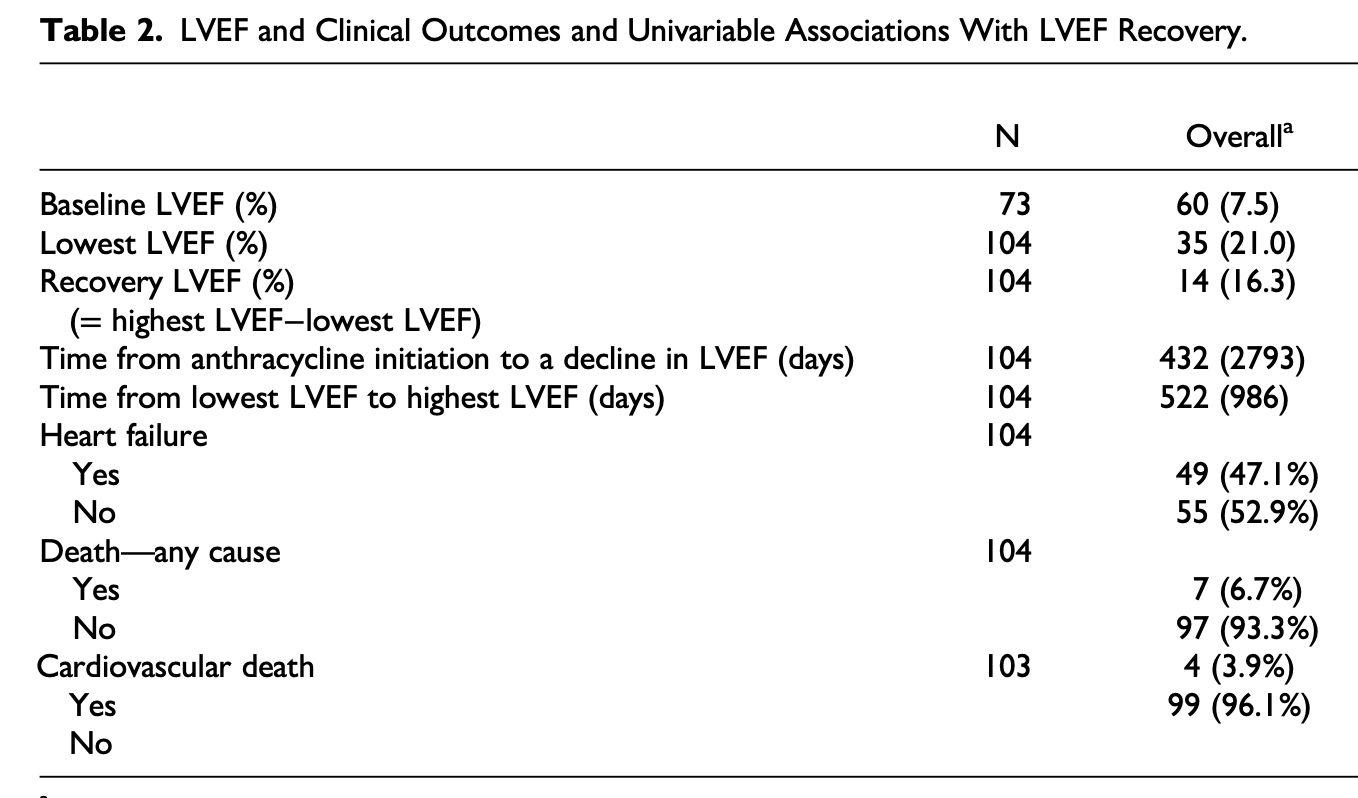
Join us for our next EMERSE Community Meeting. Open to everyone, Virtual online. Monday February 10, 2025, 1-2 PM ET. Topic: Updates from the EMERSE team. Register at: https://bit.ly/emerse-community-feb-2025

Researchers used EMERSE for a "retrospective analysis of all patients undergoing superficial parotidectomy for biopsy-confirmed benign parotid gland tumors over a five-year period." @Jossmi23 @MattSpector4 https://www.sciencedirect.com/science/article/pii/S01960...
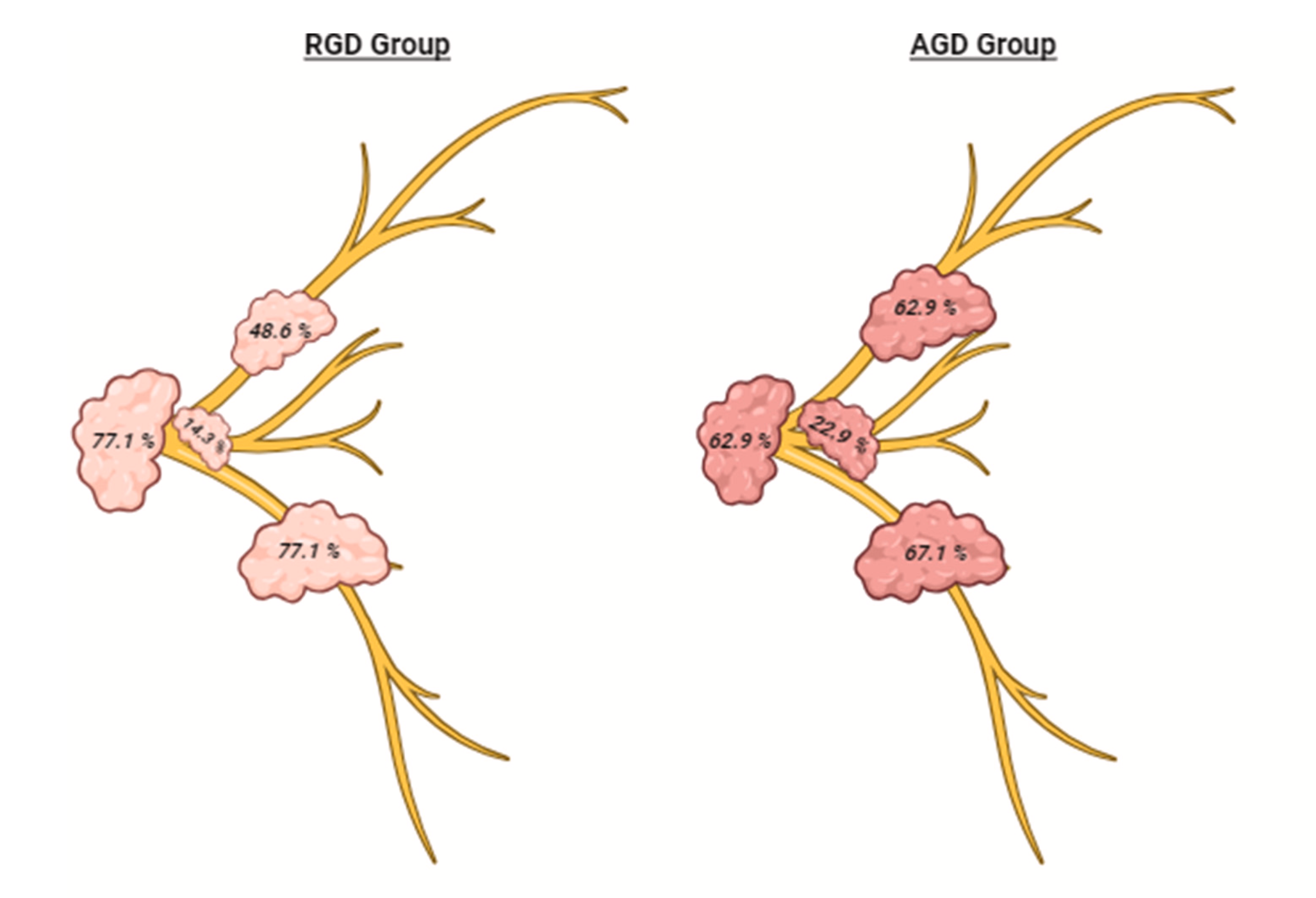
EMERSE helped "screen clinical notes...to ensure compliance with exclusion criteria" in study of the "first independent investigation validating the diLQTS PRS ...within a large real-world patient cohort." @Ana04524295 @JasmineLuzum https://journals.lww.com/jpharmacogenetics/abstract/2025/01...
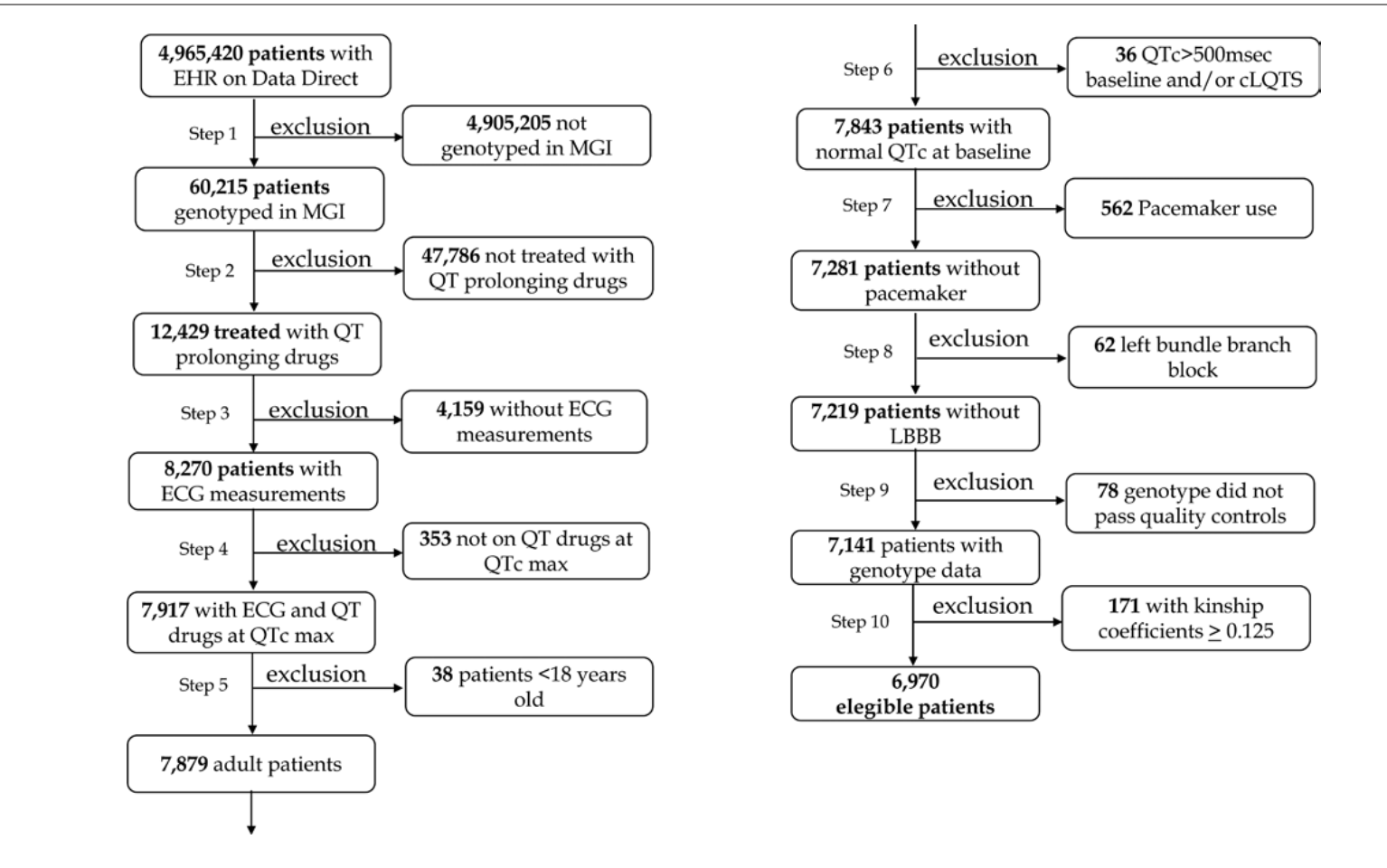
EMERSE was used for the study, "Diabetic foot infection severity as a predictor of re-ulceration following partial forefoot amputation". Finding: " Patients with higher diabetic foot infection severity based on IDSA classification are at greater risk for developing re-ulceration following a partial forefoot amputation." https://www.jfas.org/article/S1067-2516(24)00277-1/abstract
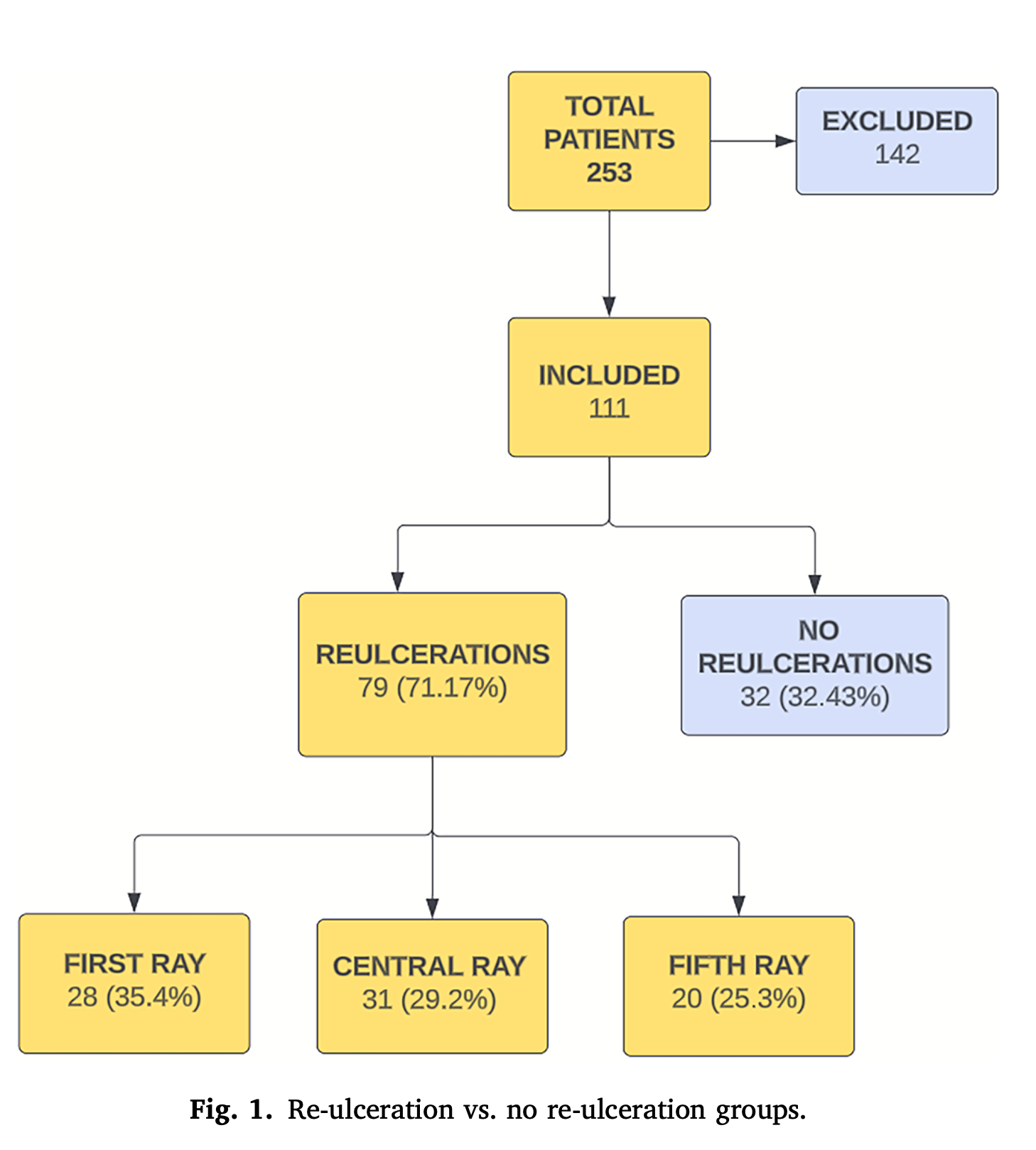
Join us for our next EMERSE Community Meeting. Open to everyone, Virtual online. Monday February 10, 2025, 1-2 PM ET. Topic: Updates from the EMERSE team. Register at: https://bit.ly/emerse-community-feb-2025

EMERSE supported the research: "Documenting human papillomavirus vaccine refusal among adolescents in electronic health records: A mixed methods study" @stjeandenise https://www.sciencedirect.com/science/article/abs/pii/S0264410X24011496
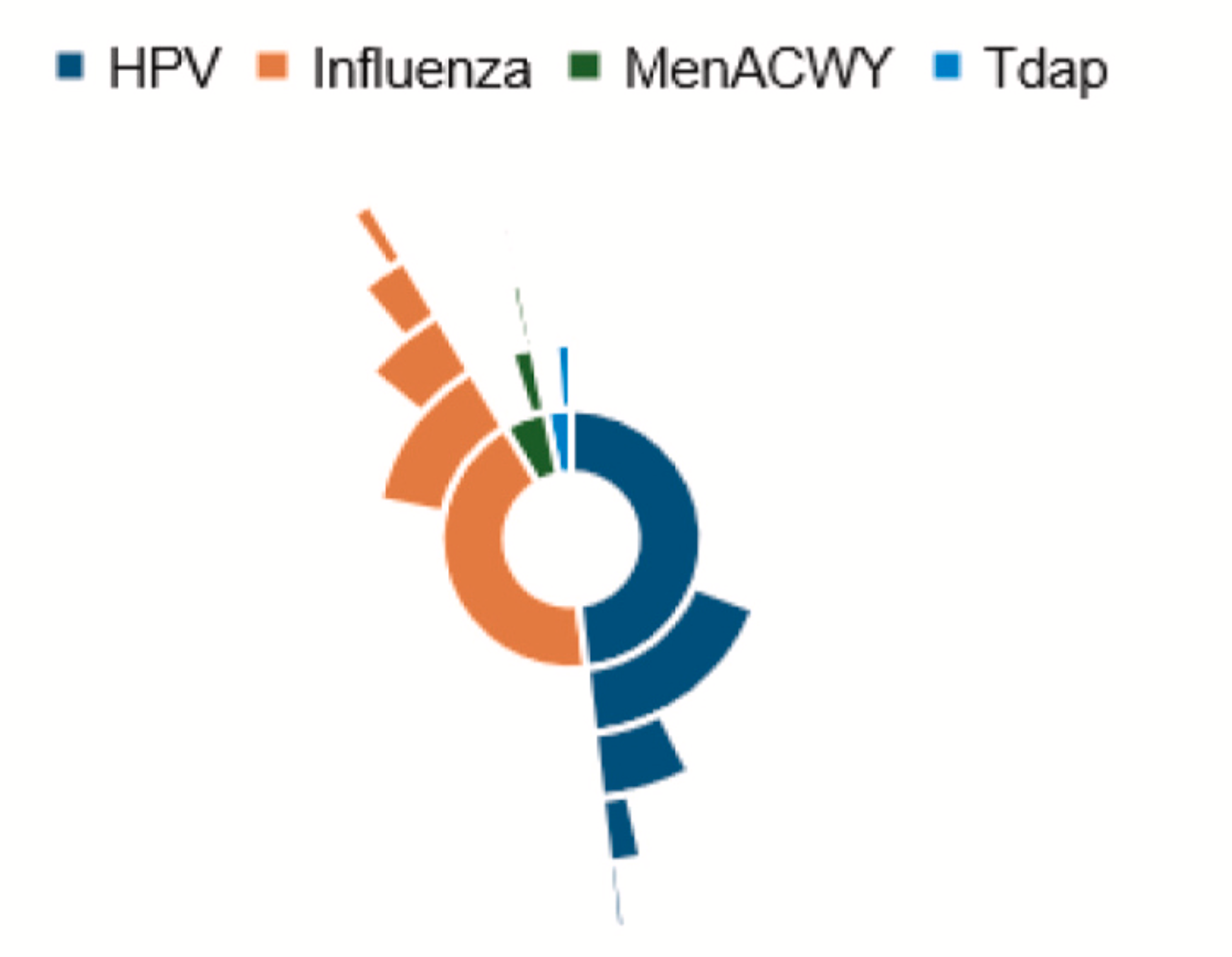
Researchers used EMERSE for the "first study to assess the prevalence of patient-provider discussions regarding LAAO [left atrial appendage occlusion] procedures in patients following a major bleed while on anticoagulation." @GBarnesMD https://www.thrombosisresearch.com/article/S0049-3848%282...

NCI Cancer Data Science
@NCIDataSci
Learn more about Electronic Medical Record Search Engine, a text processing system that uses natural language processing capabilities to help you work with unstructured data from electronic health record systems.
https://datascience.cancer.gov/news-events/even...

Jill Barnholtz-Sloan, Ph.D.
@NCIJBSloan
The first event of the #CCDI webinar series this year discusses @projectEMERSE, an open-source software supporting #CancerResearch using clinical notes from EHRs:
https://datascience.cancer.gov/news-events/even...

Join us for our next EMERSE Community Meeting. Open to everyone, Virtual online. Monday February 10, 2025, 1-2 PM ET. Topic: Updates from the EMERSE team. Register at: https://bit.ly/emerse-community-feb-2025

Patients who "had been diagnosed with PPCM from 1999 to 2019 were identified through chart review using..ICD codes and free text search engines [EMERSE]" in study that found "lactation was not associated with lower rates of myocardial recovery". @lal2122 @stephspehar @langenelizabeth @MelindaDavisMD https://internationalbreastfeedingjournal.biomedcentra...
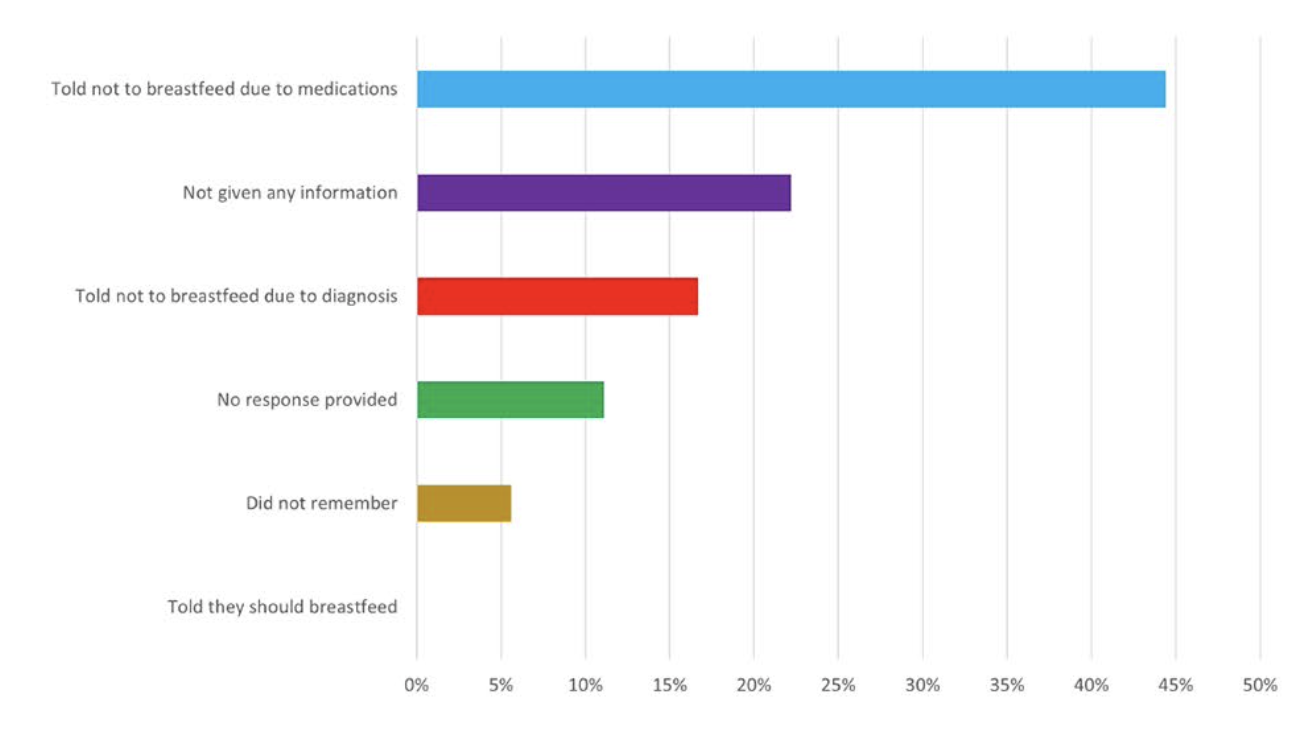
EMERSE was used to find patients in the EHR who used tobacco-free nicotine (TFN) for study identifying, "a deficit in current social history templates and the need to recognize TFN pouches as distinct entities." @t__stack @TheresaWrites_ @ProfBrentSenior https://aao-hnsfjournals.onlinelibrary...
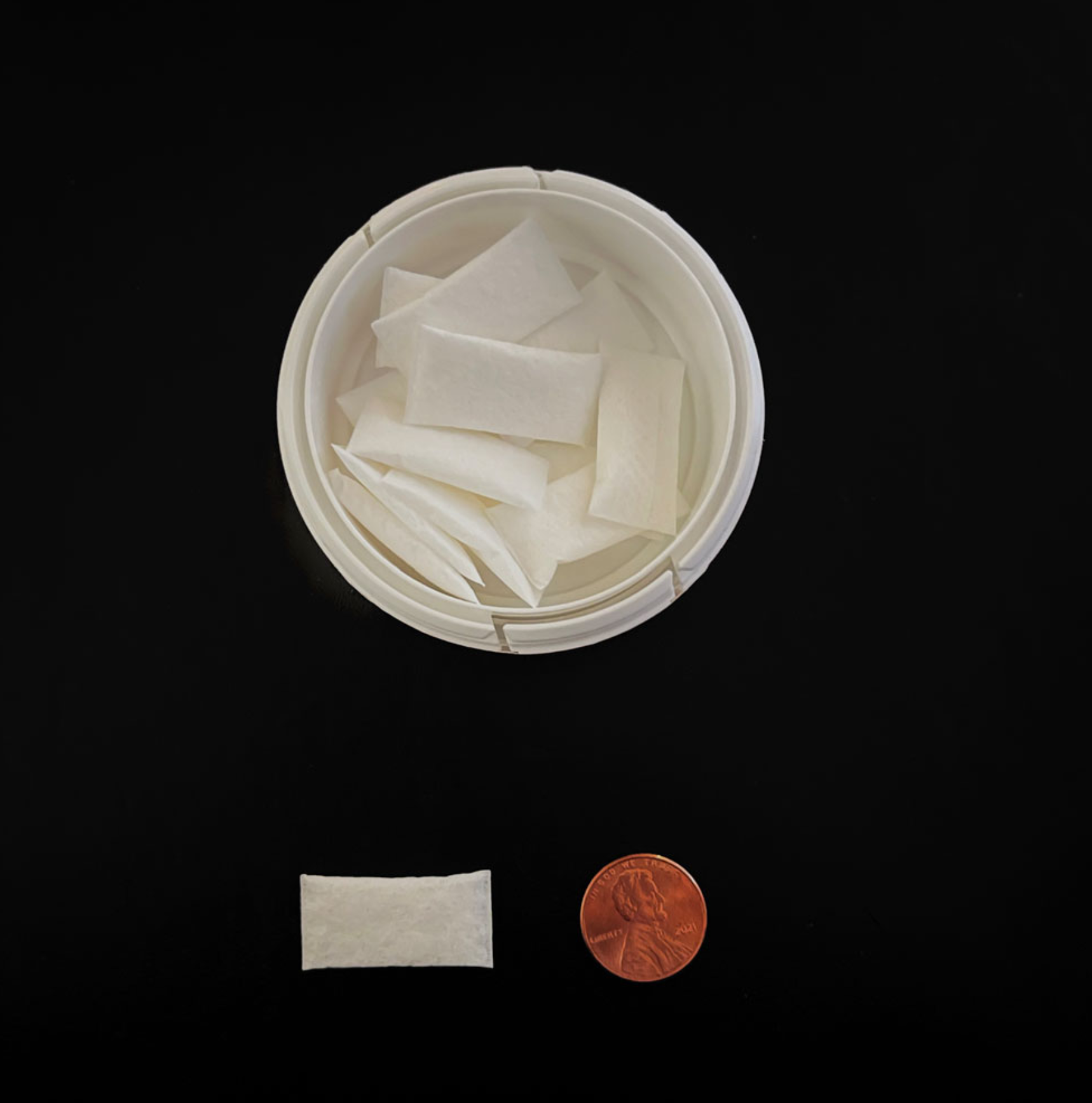
"As there are not ICD codes specific to undifferentiated carcinoma of the pancreas, patients'...unstructured medical records were..searched using EMERSE for terms indicating undifferentiated carcinoma" @JamieMillsDrMom @JiaqiShi https://doi.org/10.1093/jncics/pkae097
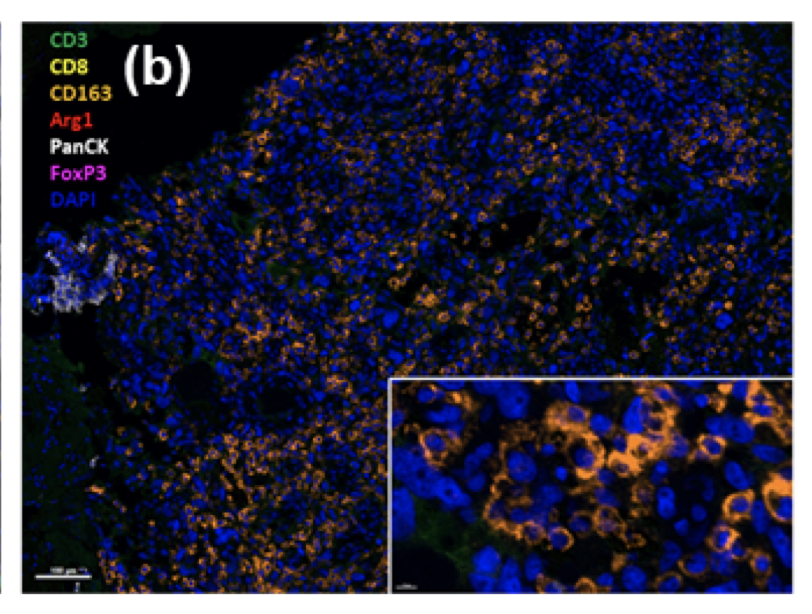
EMERSE was used to identify 49 patients "diagnosed with HSCR [Hirschsprung's disease] from June 2010 to June 2020 who underwent a biopsy and definitive ERPT [endorectal pull‐through]." Finding: "inflammation on diagnostic rectal biopsy for HSCR is associated with increased anastomotic leak rates." @LotakisMD @NateRubalcava @ElizabethSpeck https://doi.org/10.1002/jpn3.12047

EMERSE version 7 is now officially released! This version has many updates, including incorporation of natural language processing (NLP) capabilities.

"Potentially eligible patients were identified through a text-search for the words 'myoclonus,' 'EEG,' 'SSEP,' and associated synonyms using...EMERSE" in study with findings that "SSEPs may retain prognostic value in patients with post-anoxic myoclonus." @wesleytkerr https://doi.org/10.1177/08850666241287154
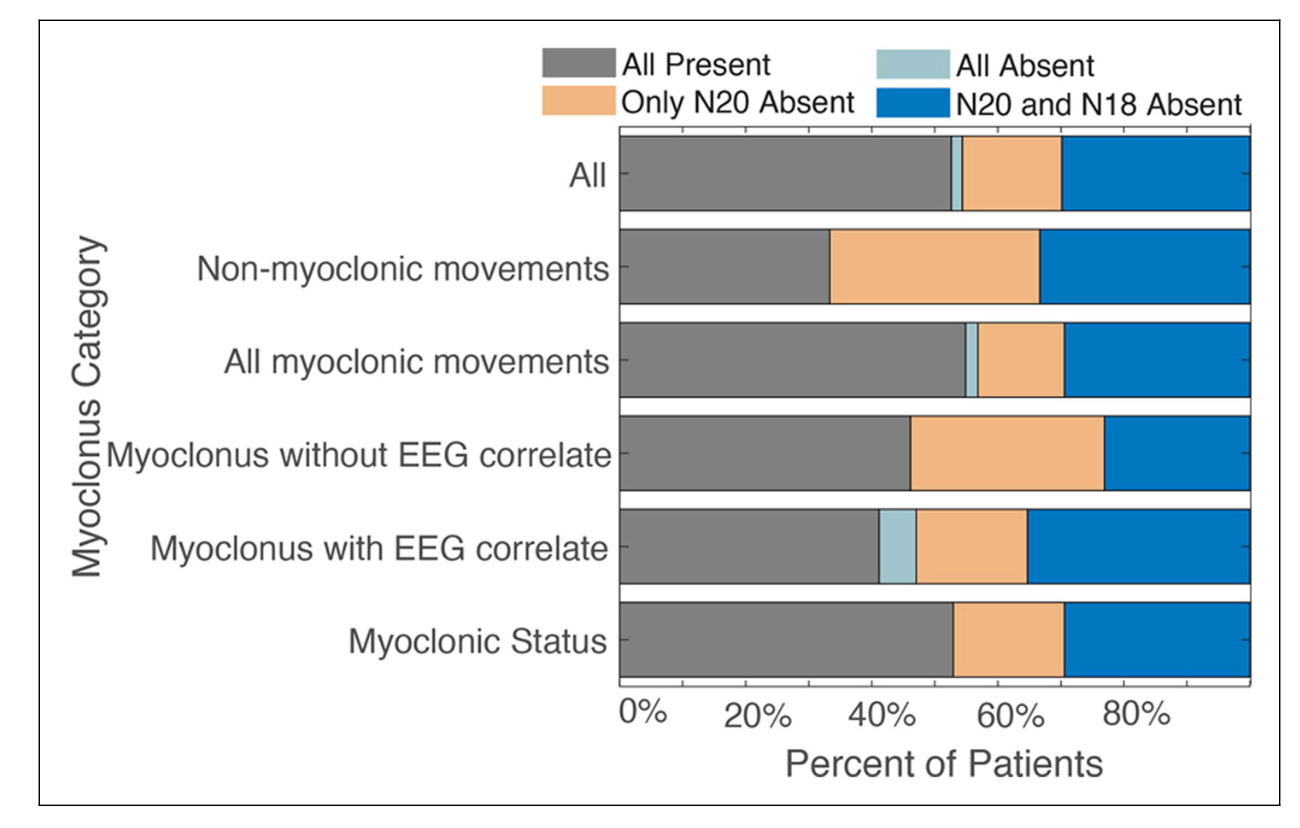
EMERSE was used to identify gastrointestinal irAEs [immune-related adverse events] in patients with cancer treated with immune checkpoint inhibitors (ICIs), in a paper which "adds novel information to the current understanding of multisystem irAEs". @TrevorBarloweMD @AndrewMMoon https://journals.lww.com/ctg/abstract/9900...
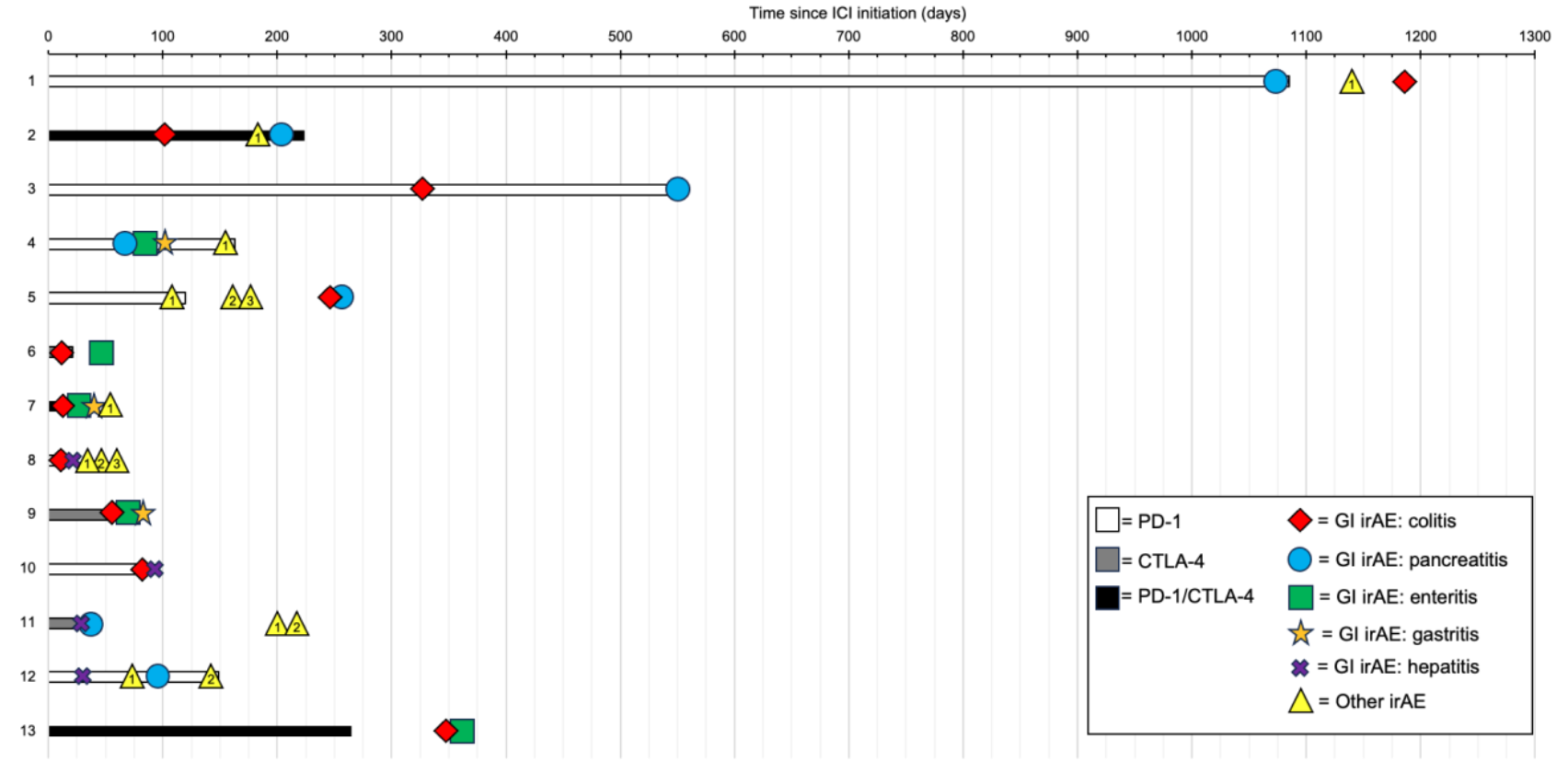
EMERSE was used to identify research participants who "likely had traumatic stress based on...clinical notes in their electronic health records" in paper published in Psychiatry Research. @aghorwitz @alysonzalta https://doi.org/10.1016/j.psychres.2024.116209
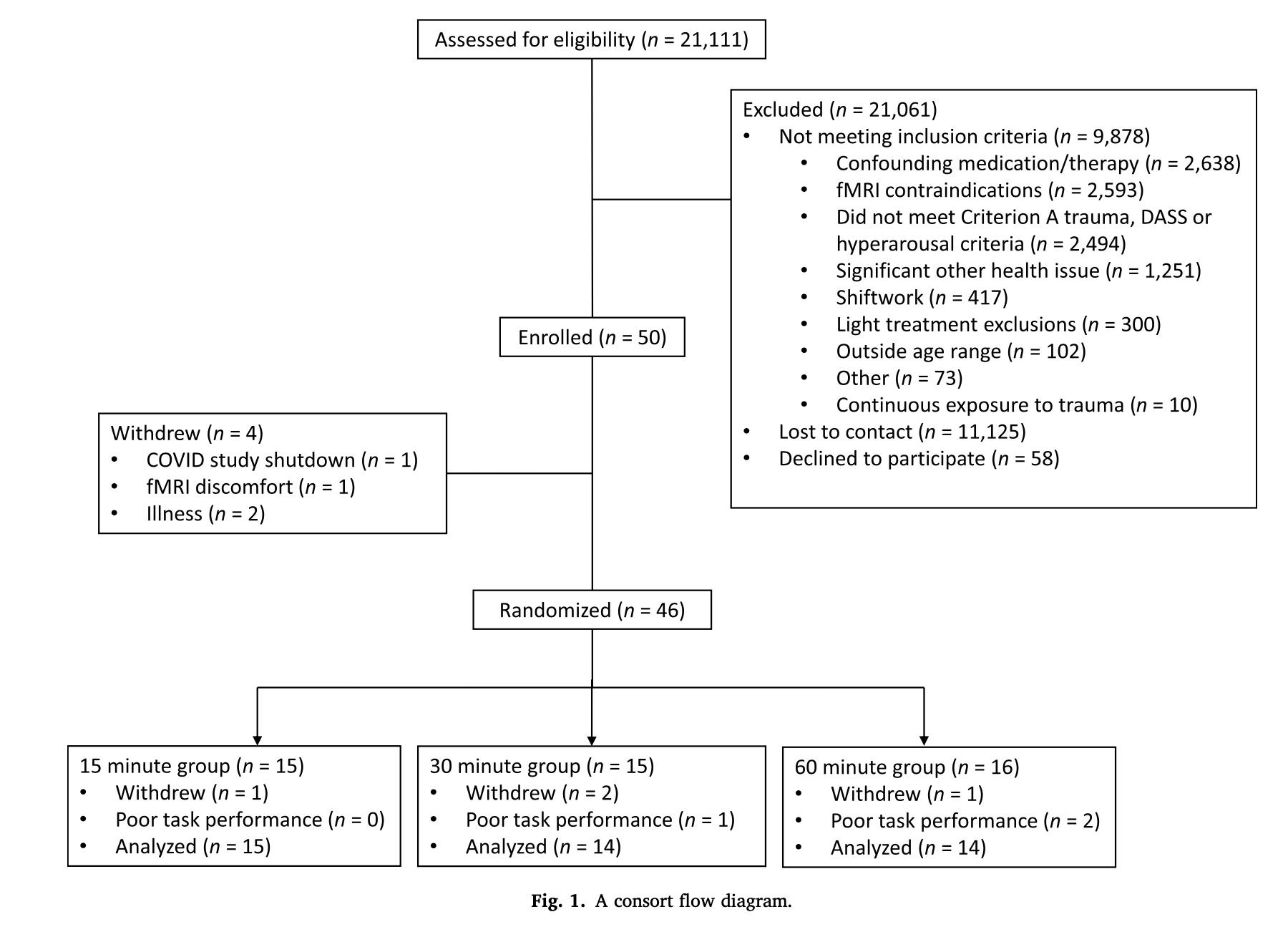
Clinical data were obtained with the help of EMERSE for the paper, "Relative muscle indices and healthy reference values for sarcopenia assessment using T10 through L5 computed tomography skeletal muscle area". https://www.nature.com/articles/s41598-024-71613-x
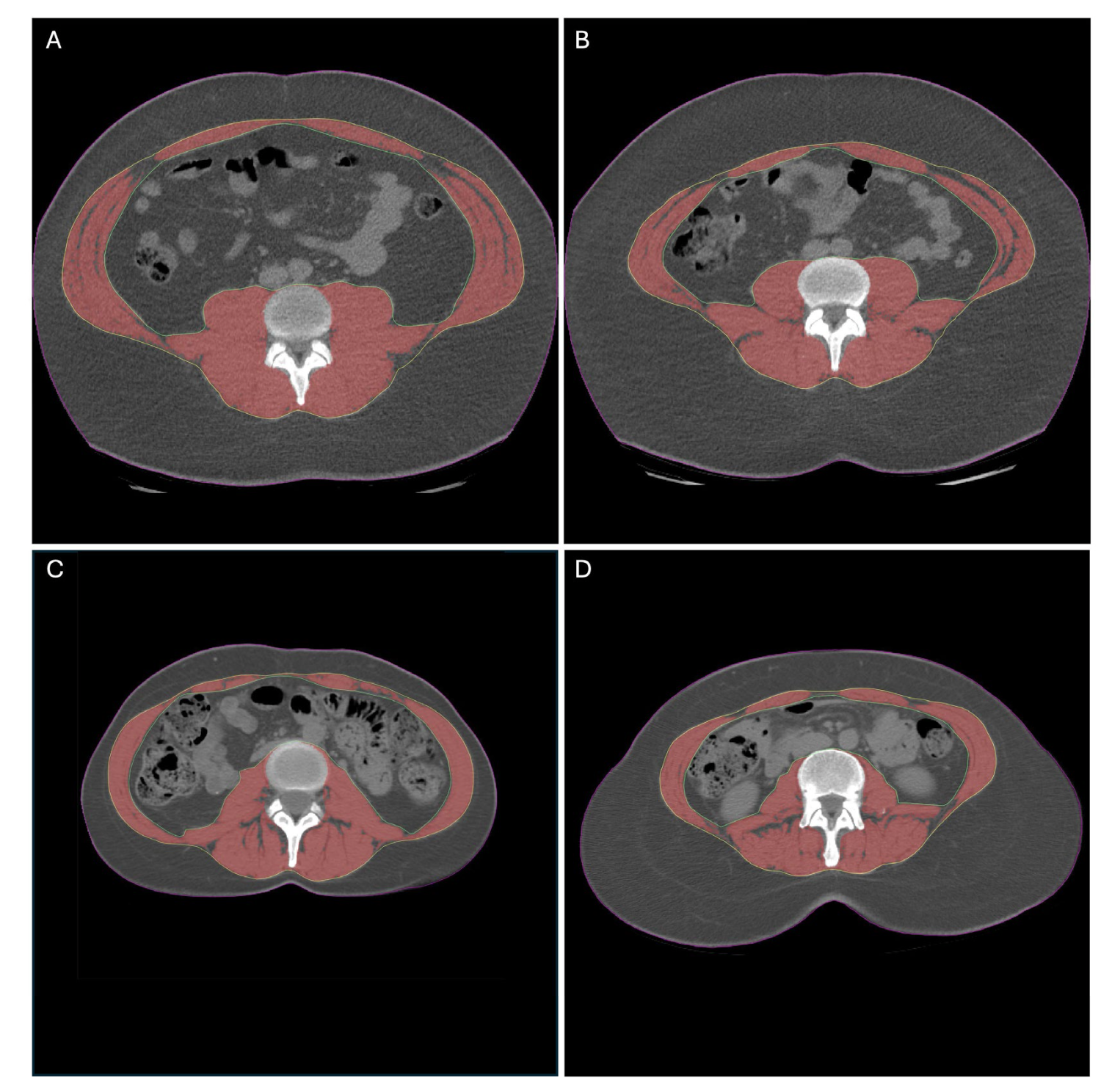
EMERSE Community Meeting, Tuesday October 1, 2024, 1-2 PM ET. Topic: Version 7 release, with embedded natural language processing (NLP) and other new features/capabilities. Open to everyone. Register here: https://docs.google.com/forms/d/e/1FAIpQL...

EMERSE supported "Allostatic Load/Chronic Stress and Cardiovascular Outcomes in Patients Diagnosed With Breast, Lung, or Colorectal Cancer" @nickolastab @MBittencourtMD @Real_DRJXM @NeNe_LaShaun @sdent_duke @amibanerjee1 @DSadlerMD @AnaBaracCardio @Montero_MD @avirupguha https://doi.org/10.1161/JAHA.123.033295
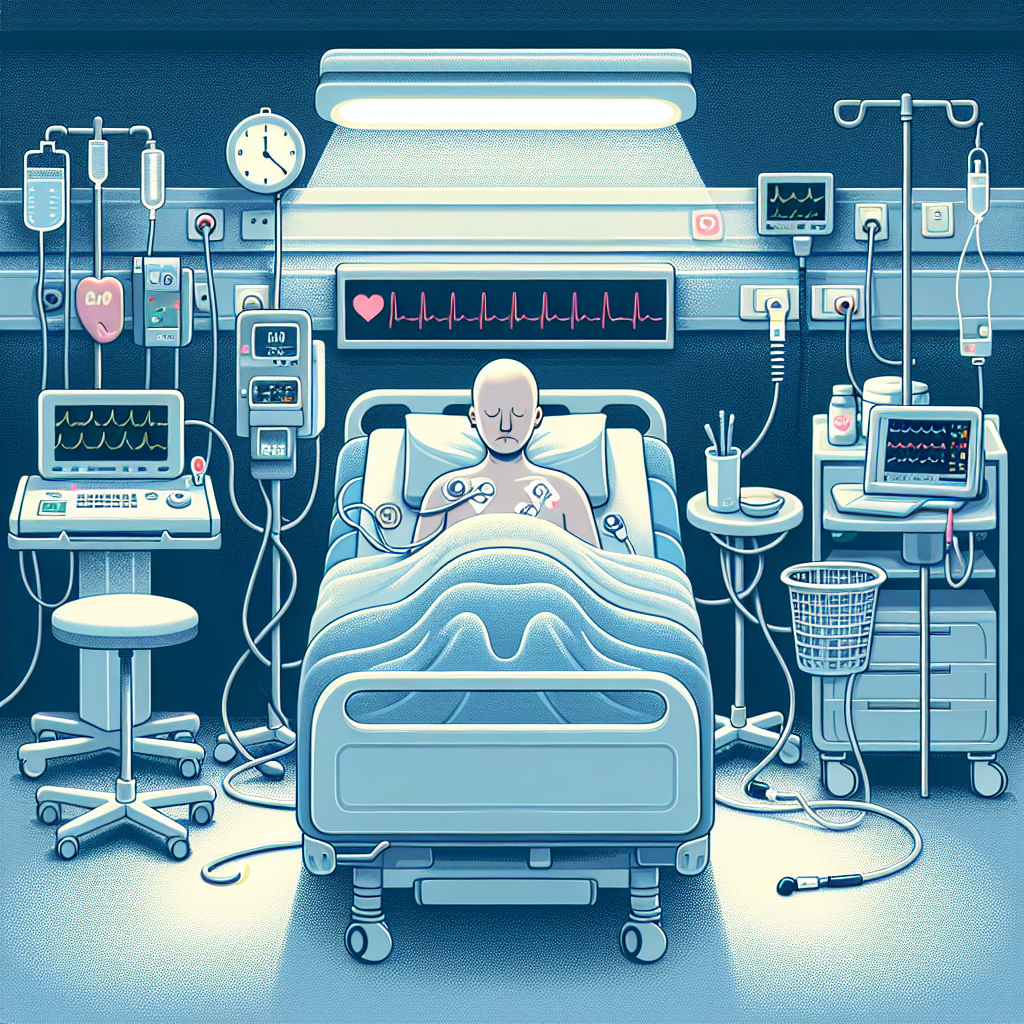
"next generation sequencing results, disease characteristics, and treatment data were collected" with the help of EMERSE in the paper "PARP inhibitor therapy in patients with IDH1 mutated cholangiocarcinoma" @ArathiMohan3 https://doi.org/10.1093/oncolo/oyae163
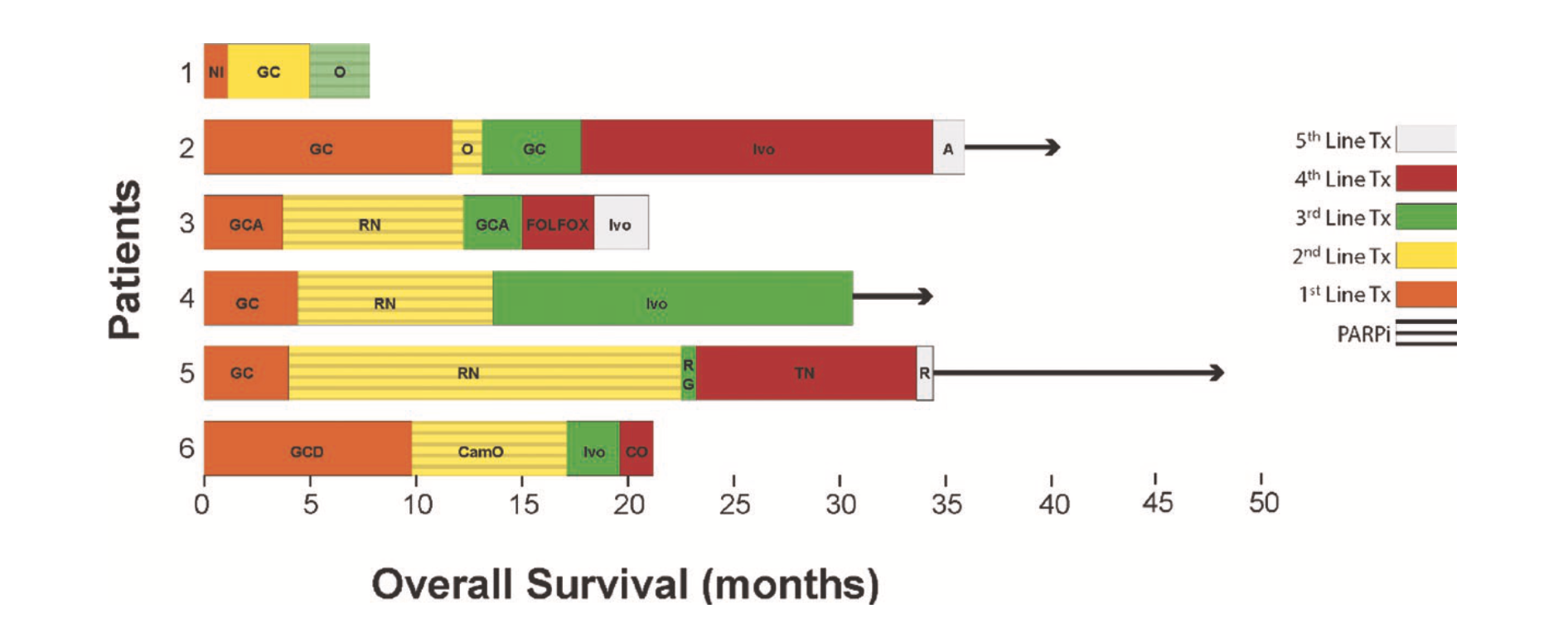
"For cohort discovery, EMERSE...was employed to search the University of Michigan electronic medical record (MiChart) for eligible subjects with quiescent inflammatory bowel disease..." @MehwishAhmedMD @KaraJencks @IBDimmunology @ibddoctor @umfoodoc https://onlinelibrary.wiley.com/doi/10.1...
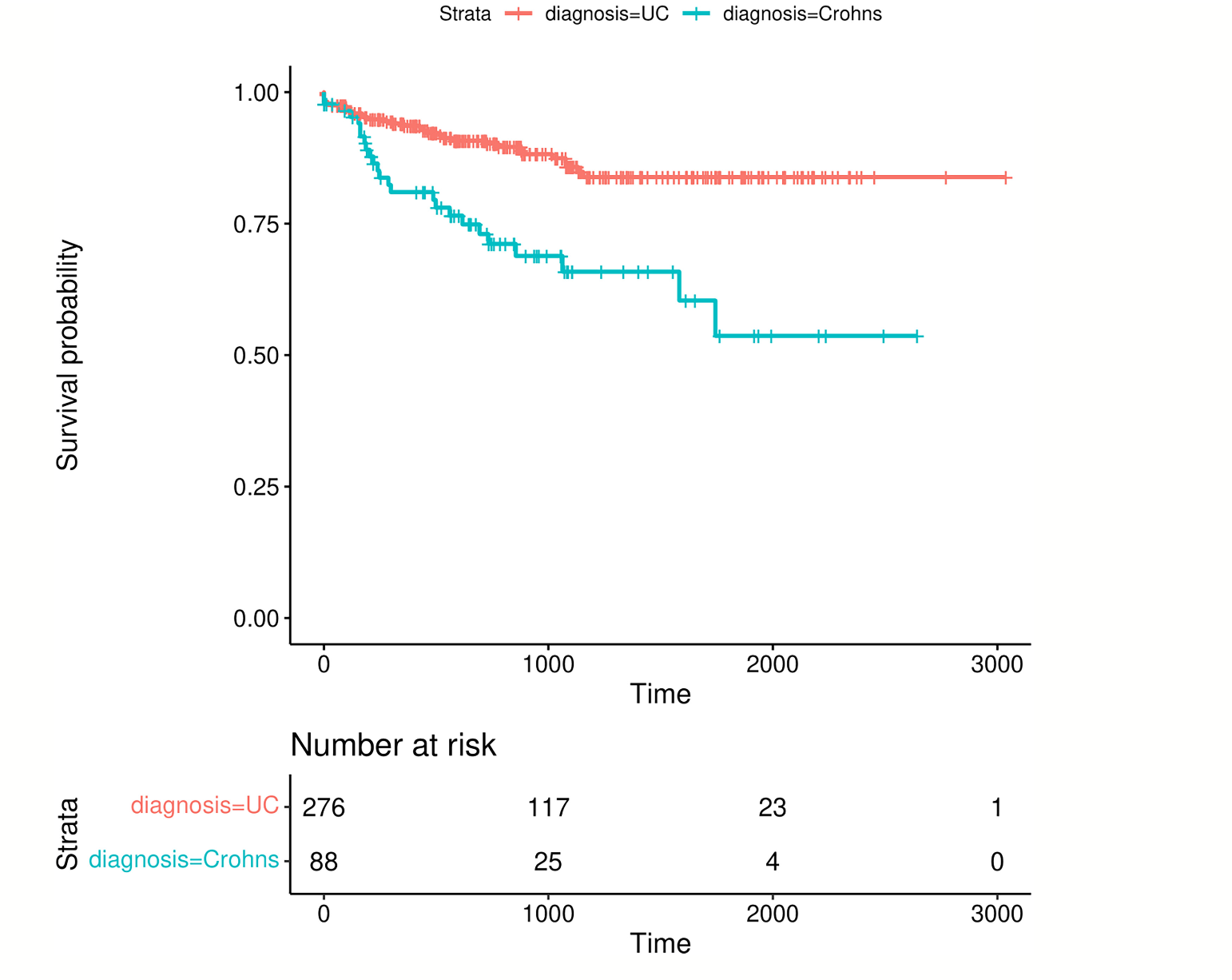
EMERSE was used to screen for patients with TANGO2 deficiency disorder (TDD) and 22q11.2 deletion syndrome, and was able to successfully identify a patient with both. @Sarahelegans @NotoriousEMG https://doi.org/10.1002/ajmg.a.63778
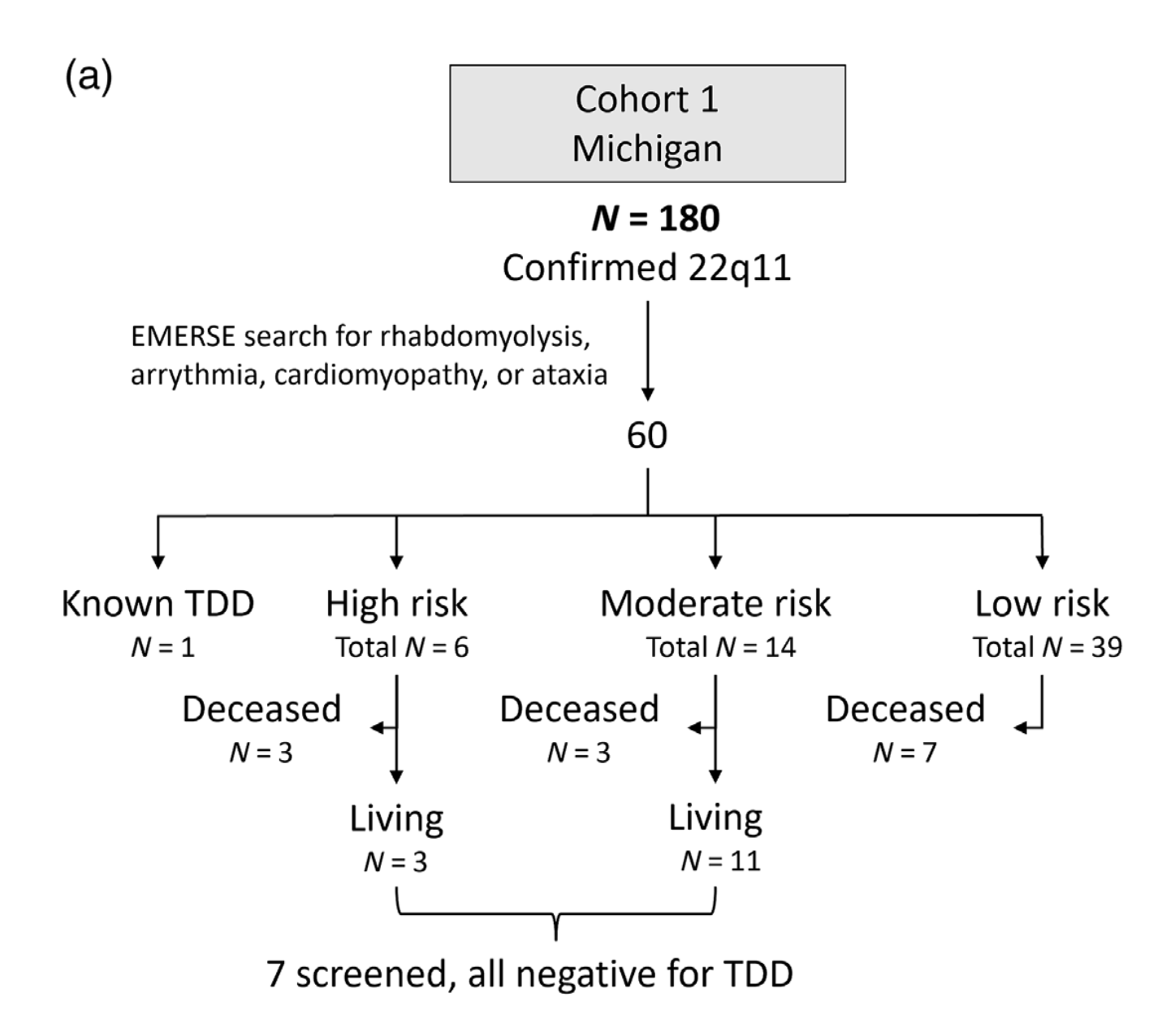
EMERSE was used to support the research for the PhD thesis "Prescription Medications and Abnormal Heart Rhythms: Understanding Genetics of Drug-Induced Long QT Syndrome" by Ana I. Lopez Medin @Ana04524295 https://dx.doi.org/10.7302/23094
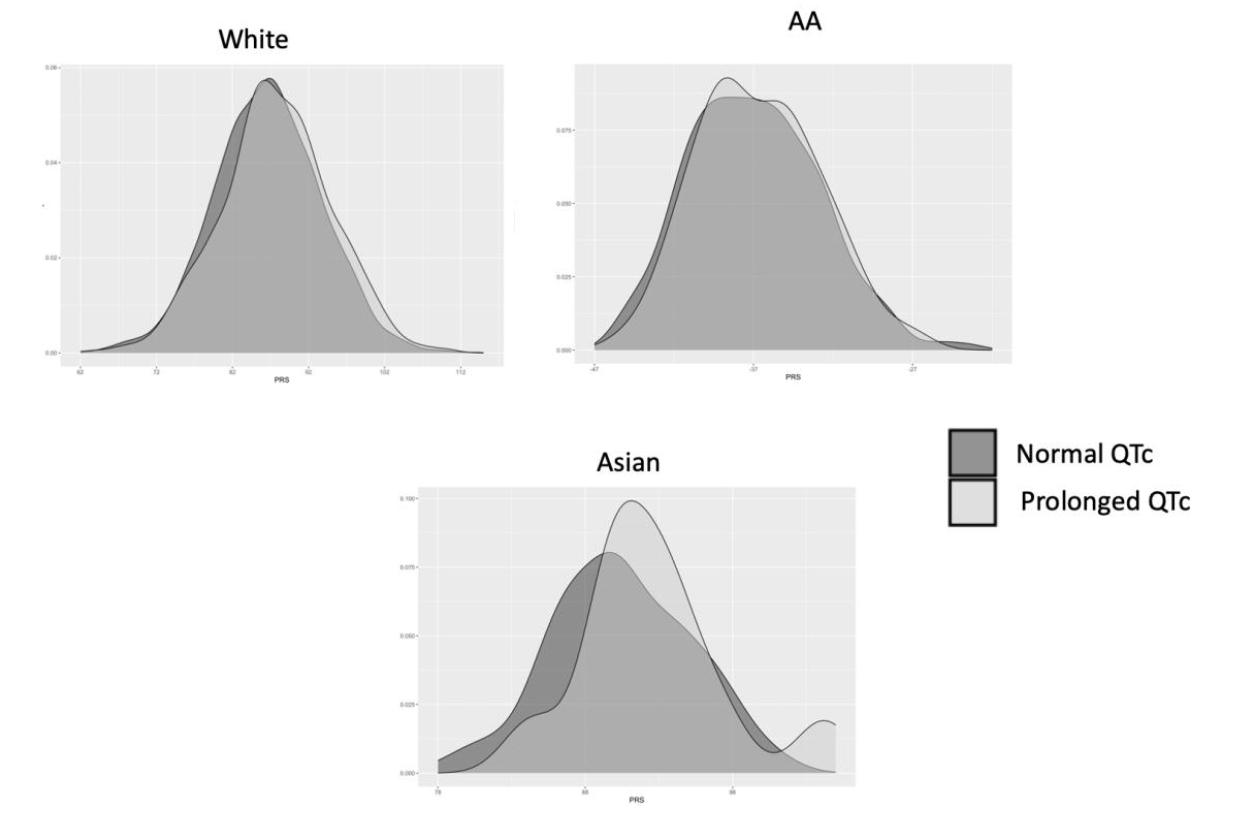
Researchers at UCSF recently published a paper that used EMERSE to identify patients with metastatic breast cancer [MBC] and leptomeningeal disease [LMD]. Conclusion: "Novel therapeutic strategies for LMD remain an area of unmet clinical need." @laura_huppert @hoperugo @BalassanianRon https://link.springer.com/article/10.10...
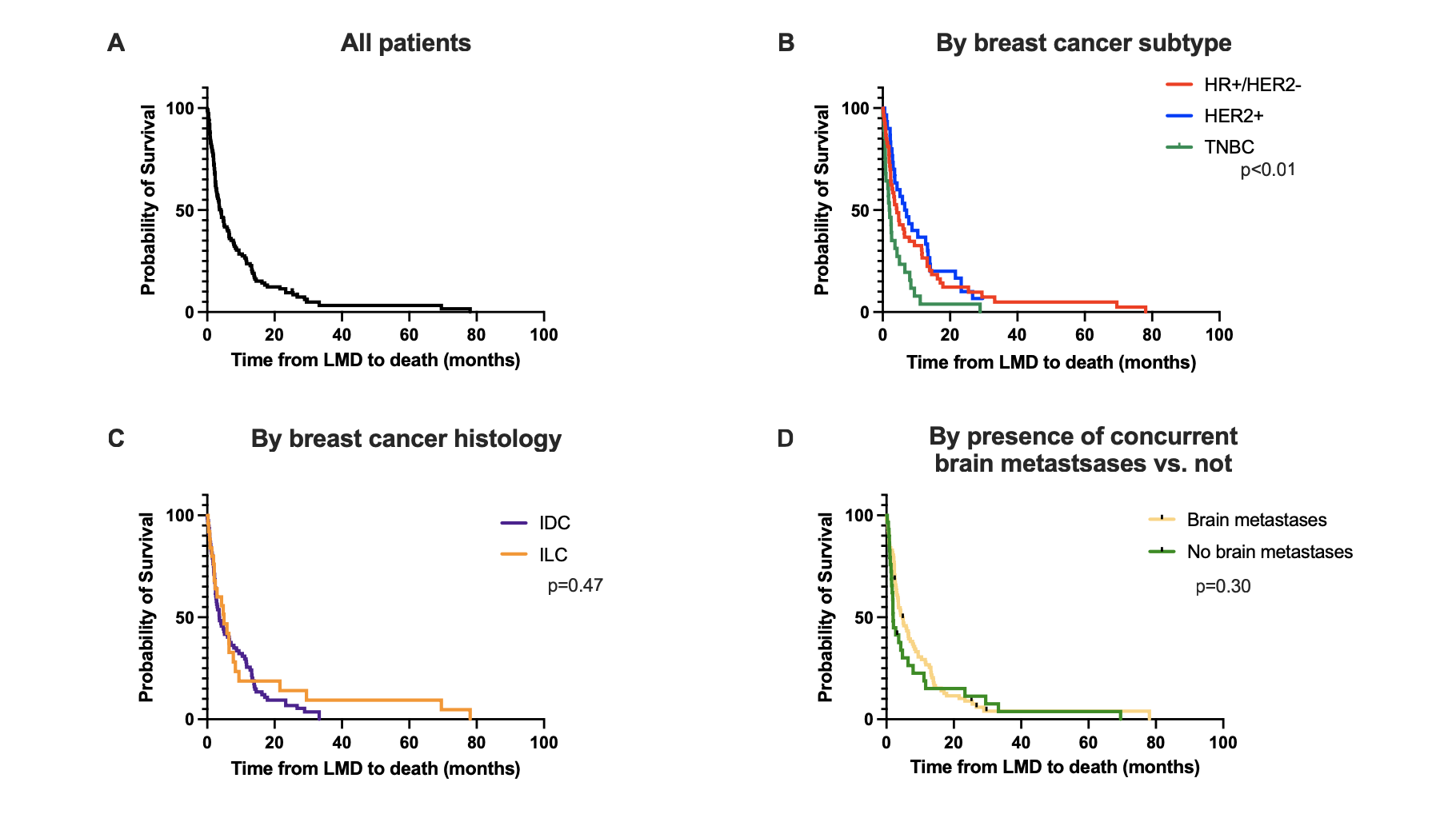
In paper about Birt-Hogg-Dubé Syndrome in patients with Trichodiscoma and Fibrofolliculoma skin lesions, "Study patients were identified...[with] EMERSE...using the terms 'trichodiscoma' and 'fibrofolliculoma,' and iterations thereof, accounting for potential misspelling (e.g., 'trichidiscoma')" @ShabetChristina @meerkat_413 @tobi_else https://link.springer.com/article/10.1...
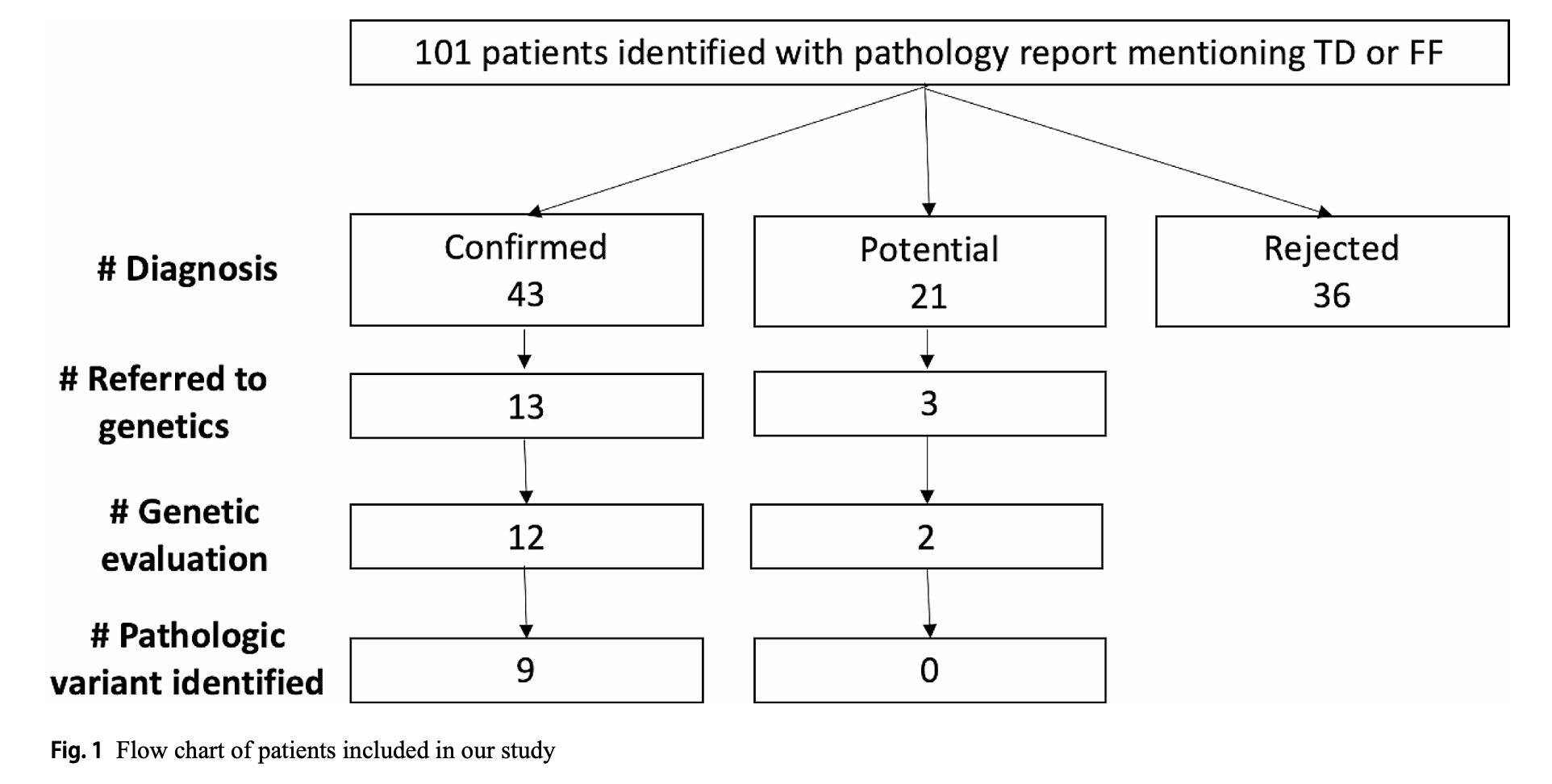
Clinical information (primary diagnosis, history of [opioid use disorder], pain type and levels) was abstracted using EMERSE in paper "Rotating Palliative Care Patients From Full Agonist Opioids to Low Dose Milligram Buprenorphine". https://www.jpsmjournal.com/article/S0885-39...

EMERSE was used to identify "new onset 'paroxysmal events' concerning for seizures" in the paper "Is it a seizure? Prediction tool for seizure likelihood in children aged 1–24 months admitted for electroencephalographic monitoring of paroxysmal, rhythmic, and repetitive events" @DrMelCarrasco @NancyMc69680658 https://onlinelibrary.wiley.com/doi/10.1111/epi.18018
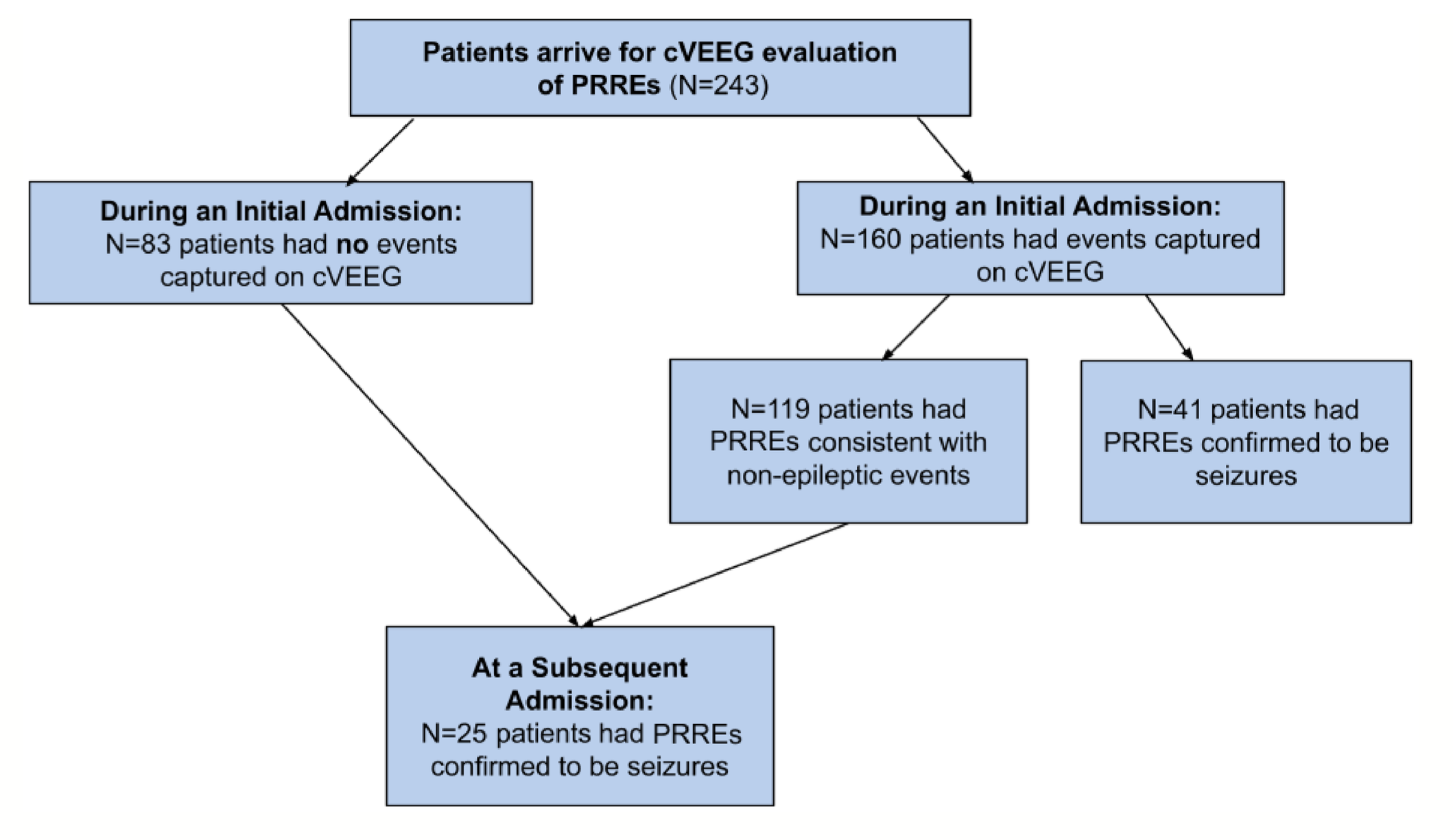
Researchers at Case Western Reserve University used EMERSE in the paper, "Inappropriate Ordering of Multitarget Stool DNA Tests for Colon Cancer Screening", with main finding: "providers may not be familiar with guidelines for the indicated use of mtsDNA, leading to inappropriate referrals and increased costs." @SajalKulhari https://www.jabfm.org/content/37/2/328.long
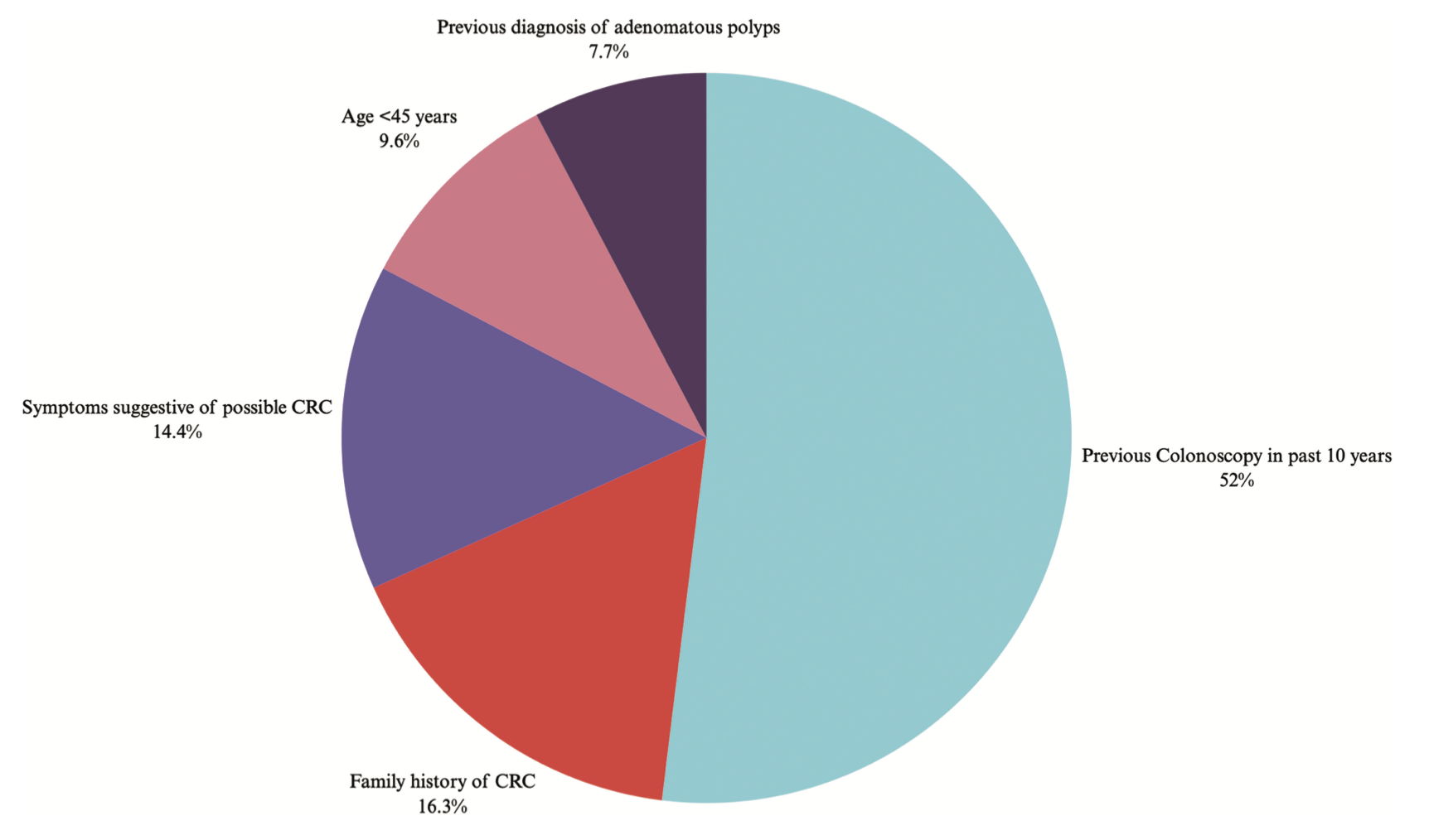
EMERSE "was used to collect concomitant medications; medical history, including smoking status, urology consult, results of cystoscopy, if done; and if a new urologic cancer was diagnosed." for paper "Unexplained hematuria in direct oral anticoagulant use: a single-center retrospective case series" @laherrel @GBarnesMD https://www.rpthjournal.org/article/S2475...
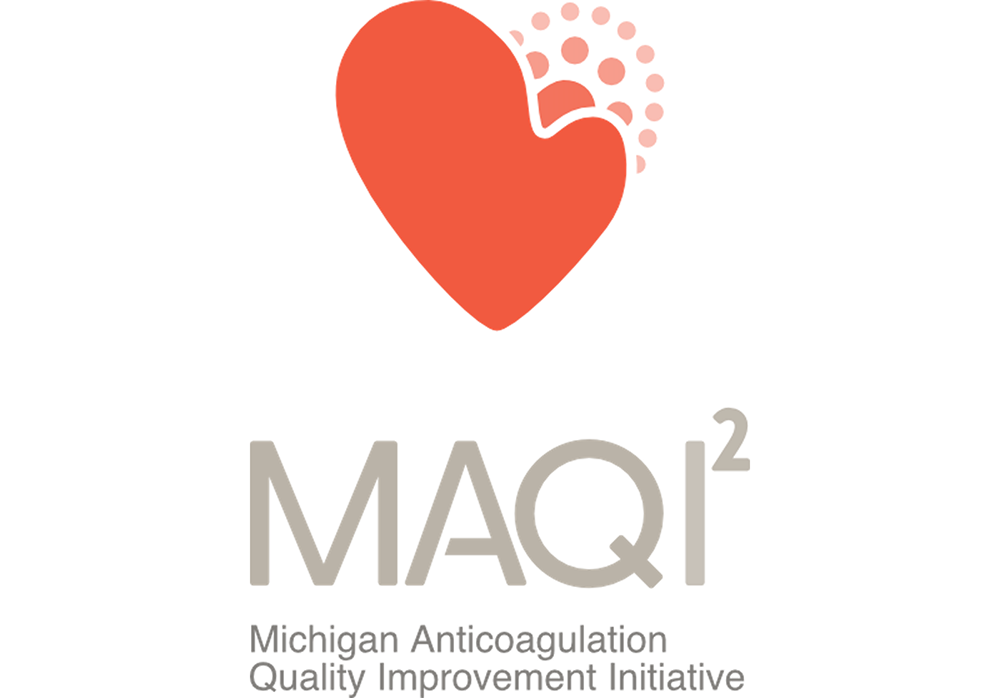
Researchers used EMERSE to identify patients impacted by incarceration for what the team described as "the first study describing ethics consultation utilization for patients impacted by incarceration". Search terms included "prison", "jail", "parole", "probation", "police", "arrest" and "warden". https://www.liebertpub.com/doi/10.1089/jchc.23.10.0083

EMERSE helped identify patients with search terms such as "rib", "cadaveric", "costal", and "rhinoplasty" for the study "Outcomes of Autologous Versus Irradiated Homologous Costal Cartilage Graft in Rhinoplasty" which provided a "contemporary evaluation of outcomes in septorhinoplasty with costal cartilage." https://www.liebertpub.com/doi/10.1089/fpsam.2023.0334
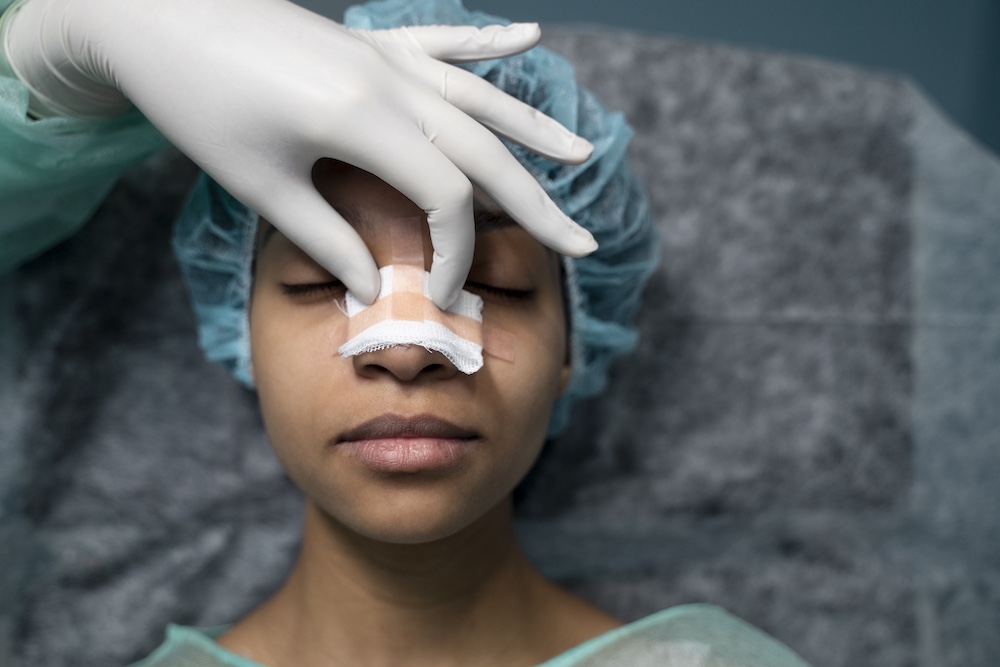
EMERSE was used to identify grossly bloody stools in clinical notes for the study "Management of Hematochezia in Infants with Congenital Heart Disease Admitted to the Acute Care Cardiology Unit: A Multicenter Retrospective Pilot Study". https://www.jpeds.com/article/S002...
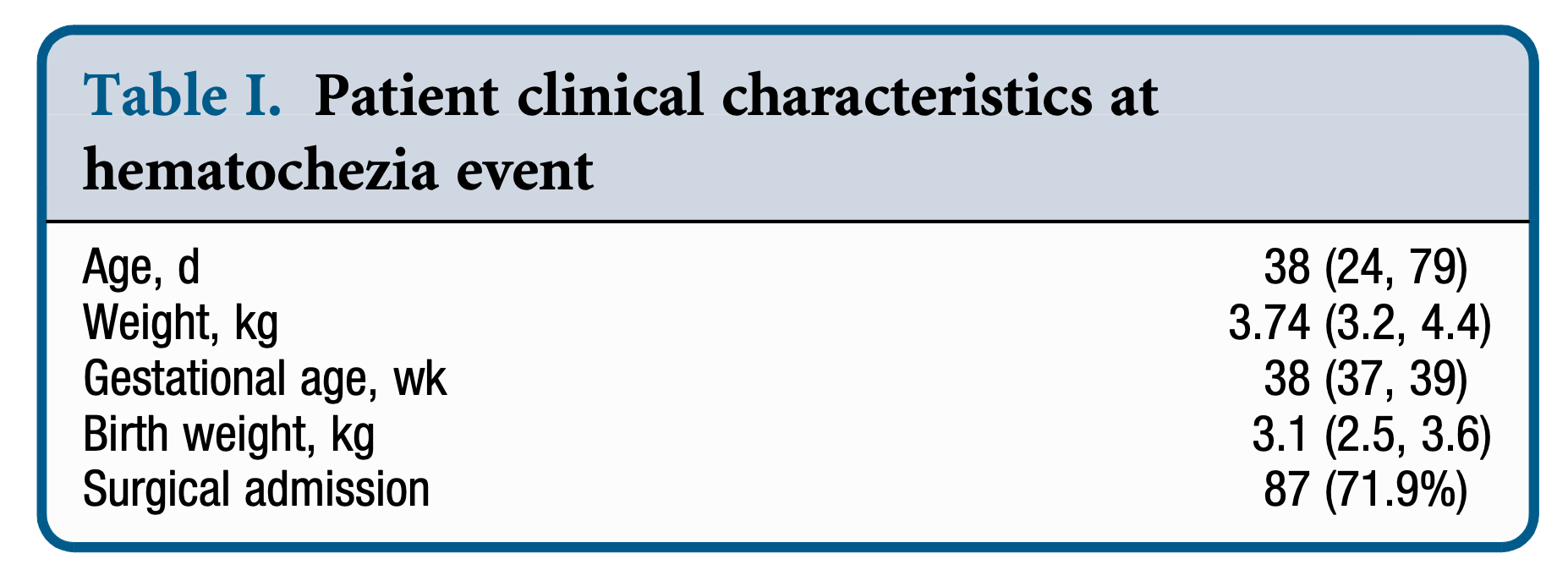
Researchers used EMERSE to search through clinical notes for what they report is the "largest study that investigated the association of candidate genetic variants with the risk of diLQTS [Drug-induced long QT syndrome]." https://www.futuremedicine.com/doi/10.2...
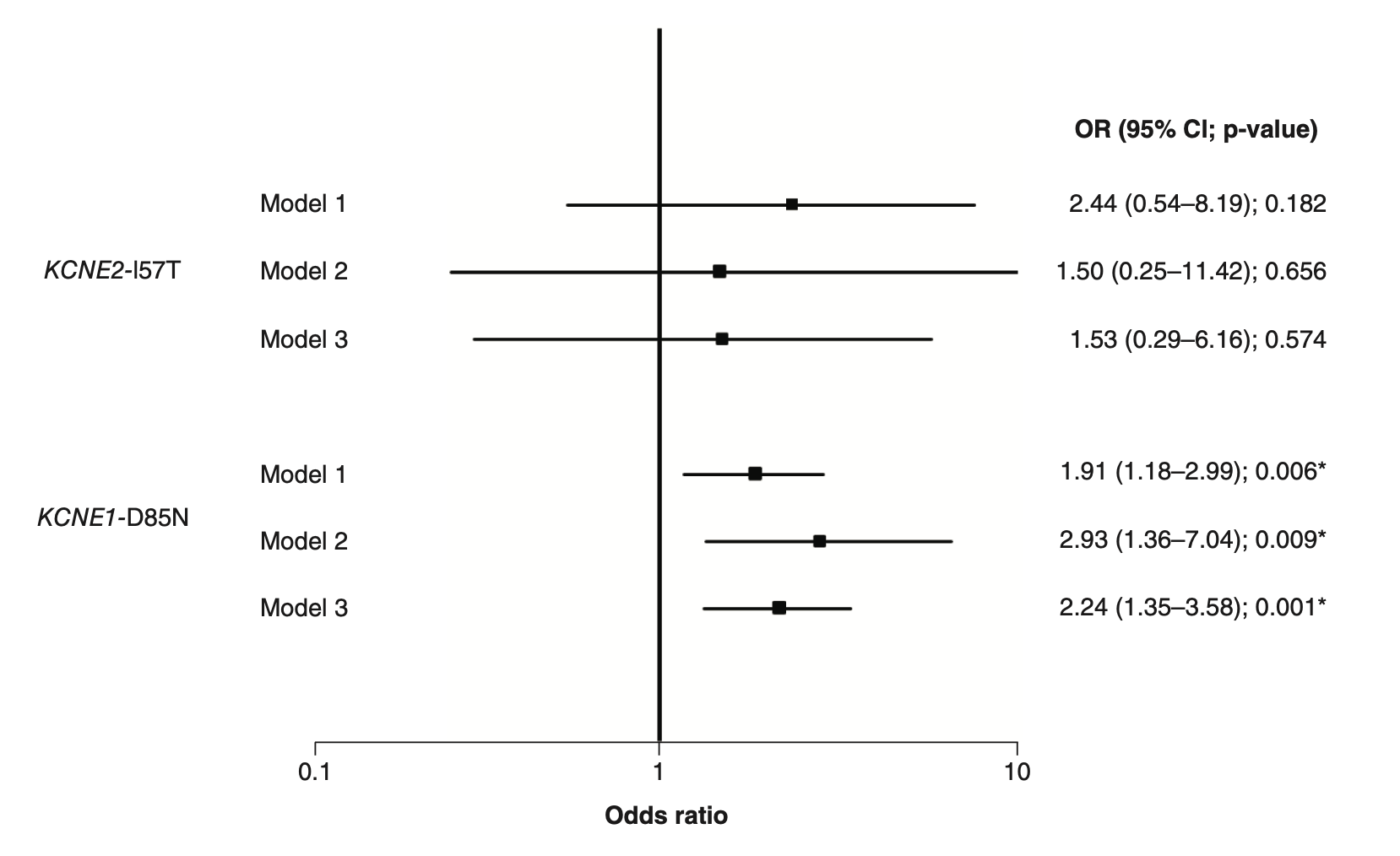
EMERSE was used to identify patients who underwent whole-spine radiography for the study, "Development and validation of an artificial intelligence model to accurately predict spinopelvic parameters" https://thejns.org/spine/vie...
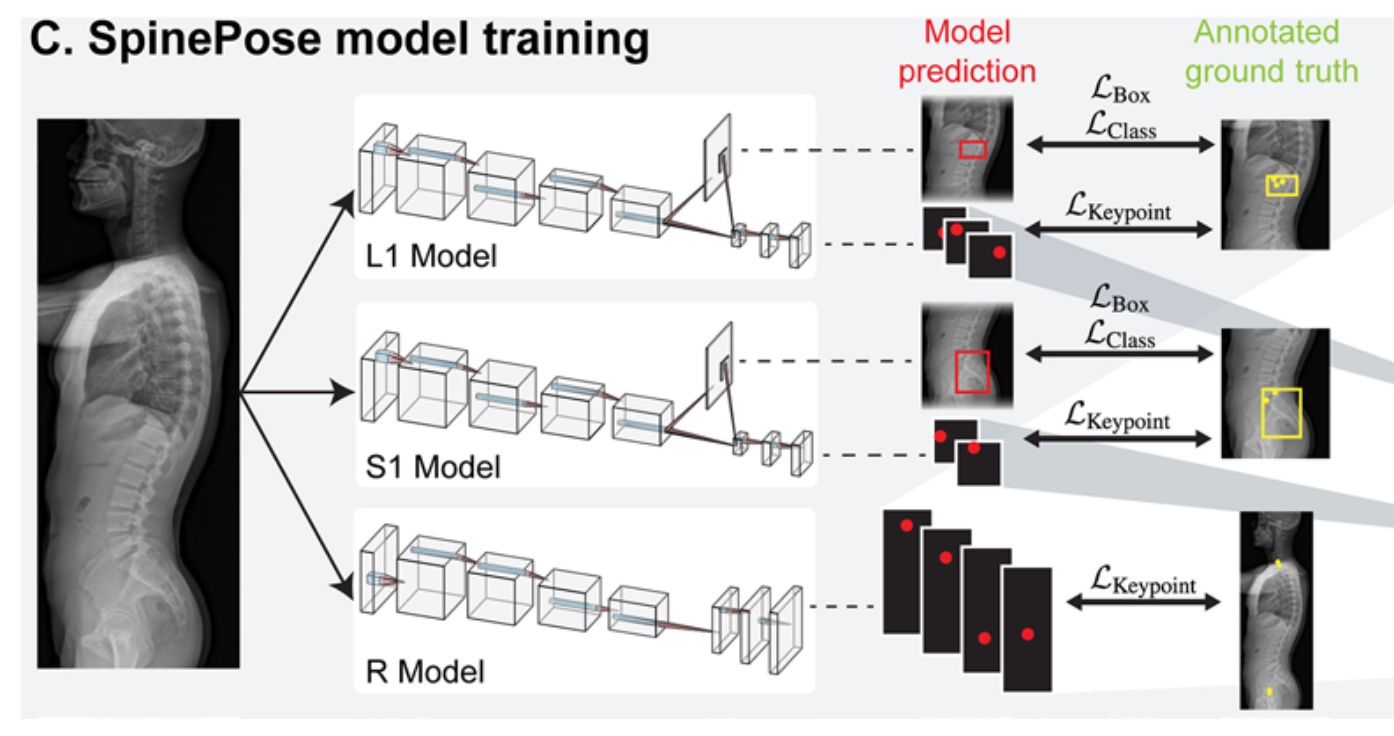
Rate of preoperative hypothyroidism and thyroid hormone replacement were collected using EMERSE for the study, "Association of preoperative thyroid hormone replacement with perioperative complications after major abdominal surgery". Main findings: "Preoperative thyroid hormone replacement independently predicts operative morbidity and length of stay following major abdominal surgery." https://www.americanjournalofsurger...
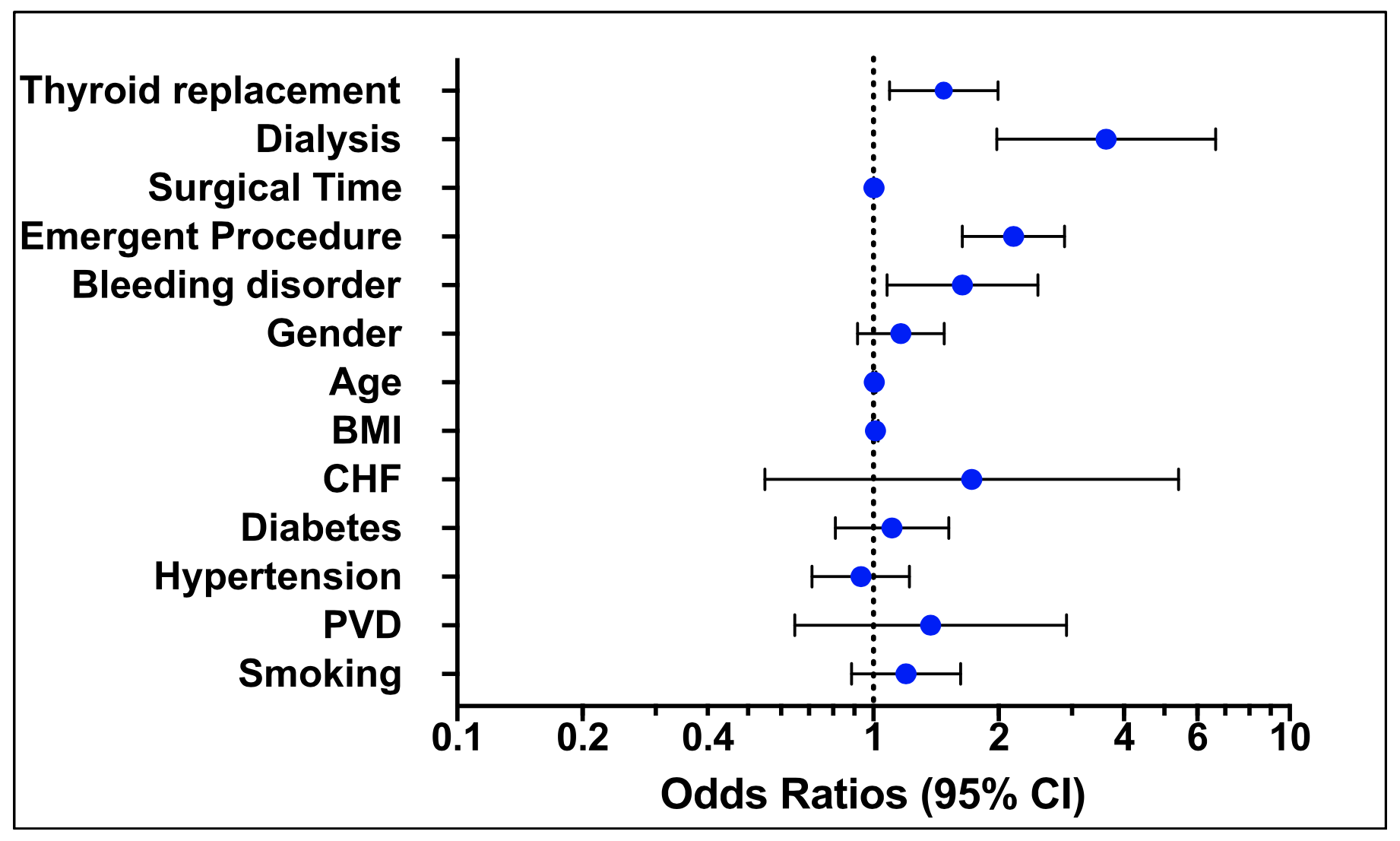
EMERSE was used to identify 11 patients among 2.7 million for inclusion in a study reported to be the "largest case series of patients with long-term follow-up" for those with Le Fort III Osteotomies for Midface Advancement in the paper, "Advantages of an Image-Guided Subcranial Technique for Le Fort III Osteotomies for Midface Advancement: A Case Series" https://journals.sagepub.com/doi/10.1...
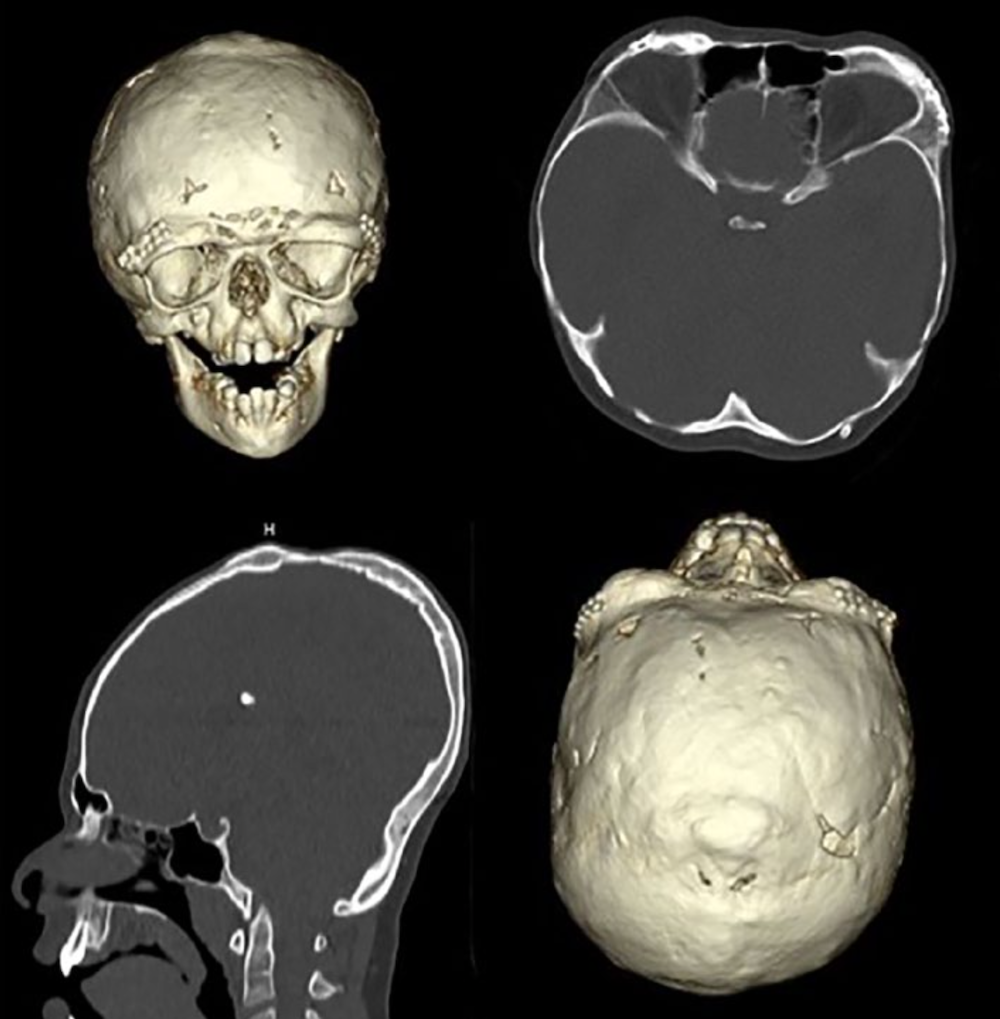
Join us on May 15 for our next EMERSE Community meeting. Featured guest speaker is Jackie Gravitt who will give a short talk on "Implementing EMERSE at the University of Virginia: Lessons Learned". https://project-emerse.org/community.html

EMERSE, "coupled with a thorough medical chart review, was used to ensure acute pathology only" in a study on Acute type A intramural hematomas. Conclusions: "Conclusions: Acute type A IMH could be treated with emergency open aortic repair with excellent short- and midterm outcomes." https://www.jtcvs.org/article/S00...
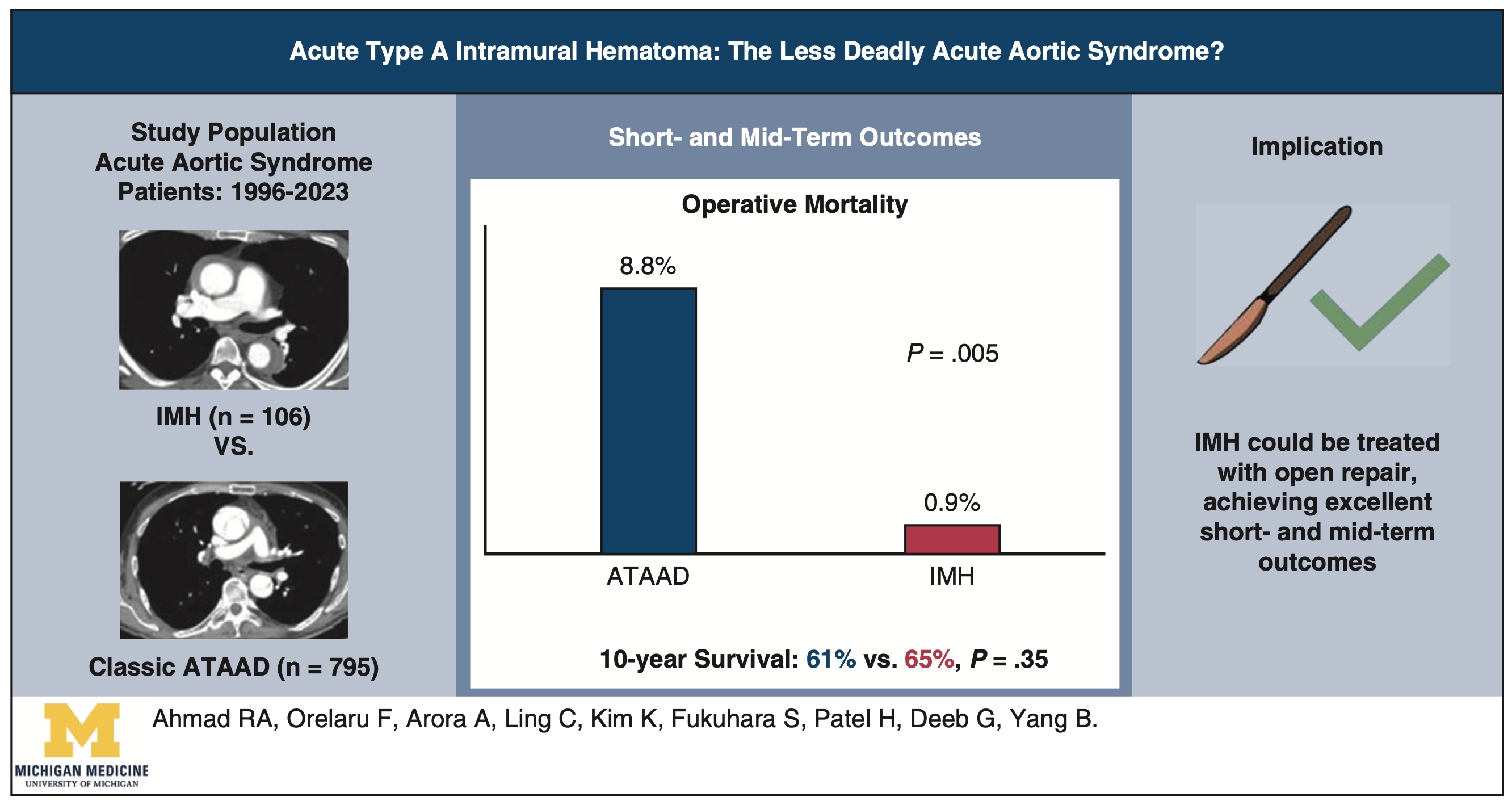
Researchers used EMERSE to identify "396 women with advanced HGSC (FIGO stages 3C-4) receiving neoadjuvant chemotherapy between 2010 and 2019" for a study looking at the "radiologic–pathologic correlation of response assessment and predictors of progression". https://link.springer.com/article/10.10...
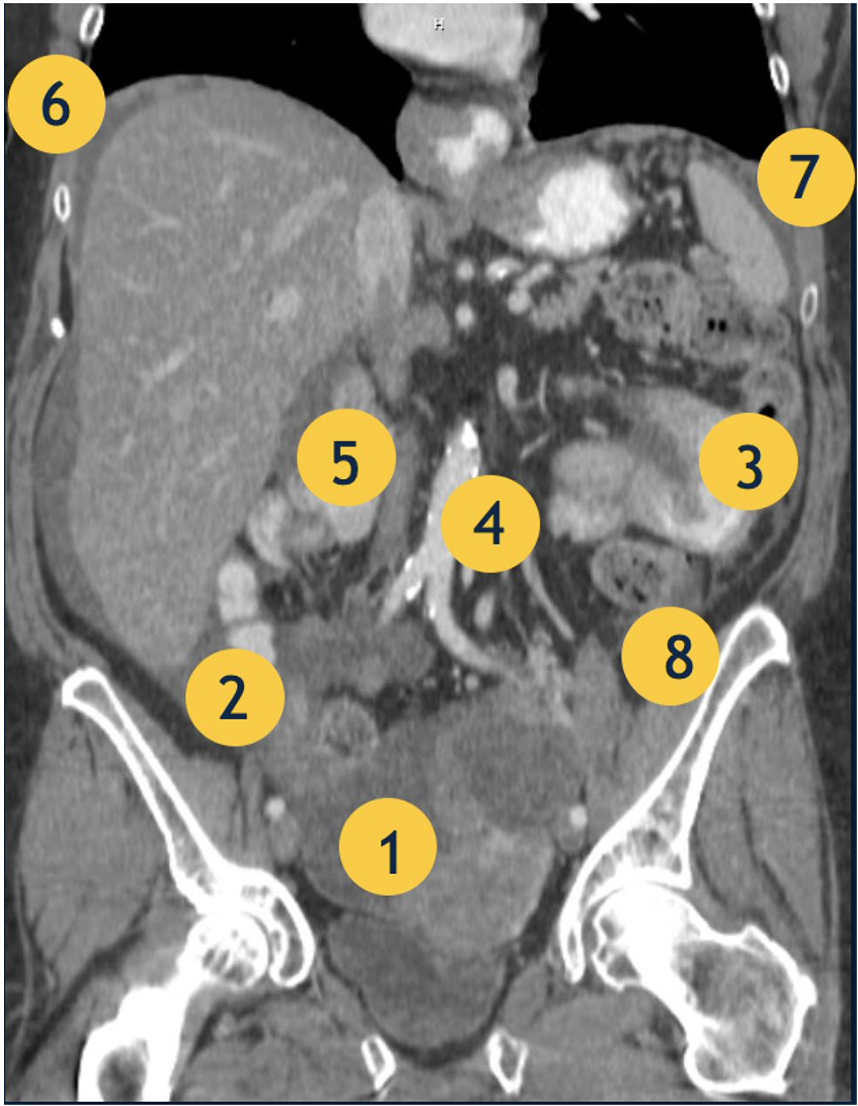
Mark your calendar for the next EMERSE Community Meeting. May 15, 2024, 12-1 PM ET. Open to everyone, on Zoom. Register at : https://docs.google.com/forms/d/e/1FAIpQLSe...

EMERSE was used to identify patients with neonatal strokes for the study, "Routine Echocardiography is not Required in Neonates with Arterial Ischemic Stroke". https://www.thieme-connect.com/produc...
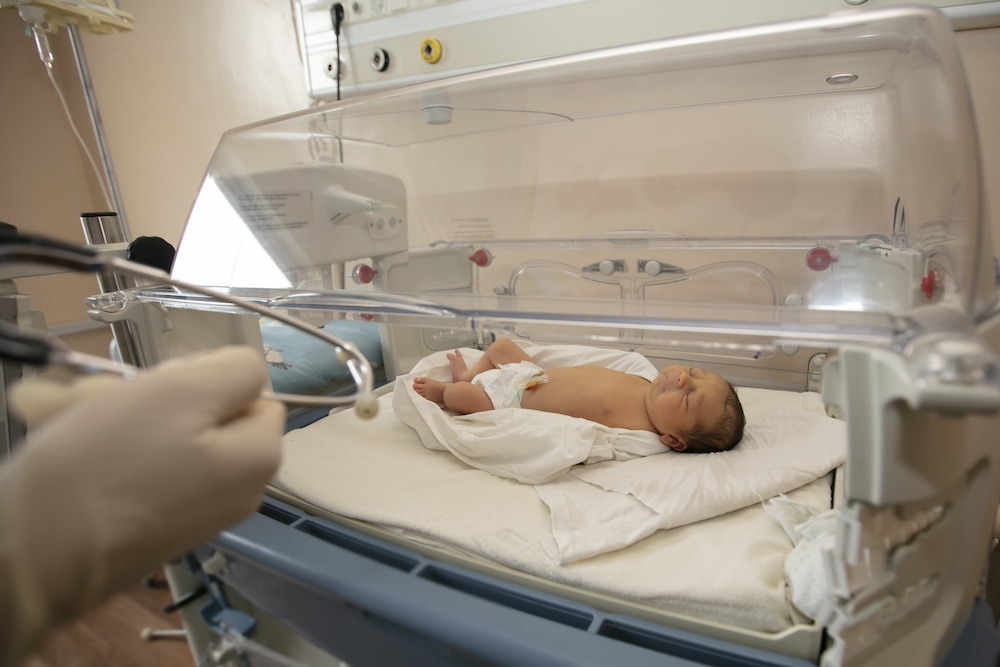
Researchers used EMERSE because the "ISTH criteria are purely clinical criteria and there is no validated algorithm to help identify bleeding cases electronically" in paper about Bleeding from DOACs. https://doi.org/10.1016/j.rpth.2023.102285
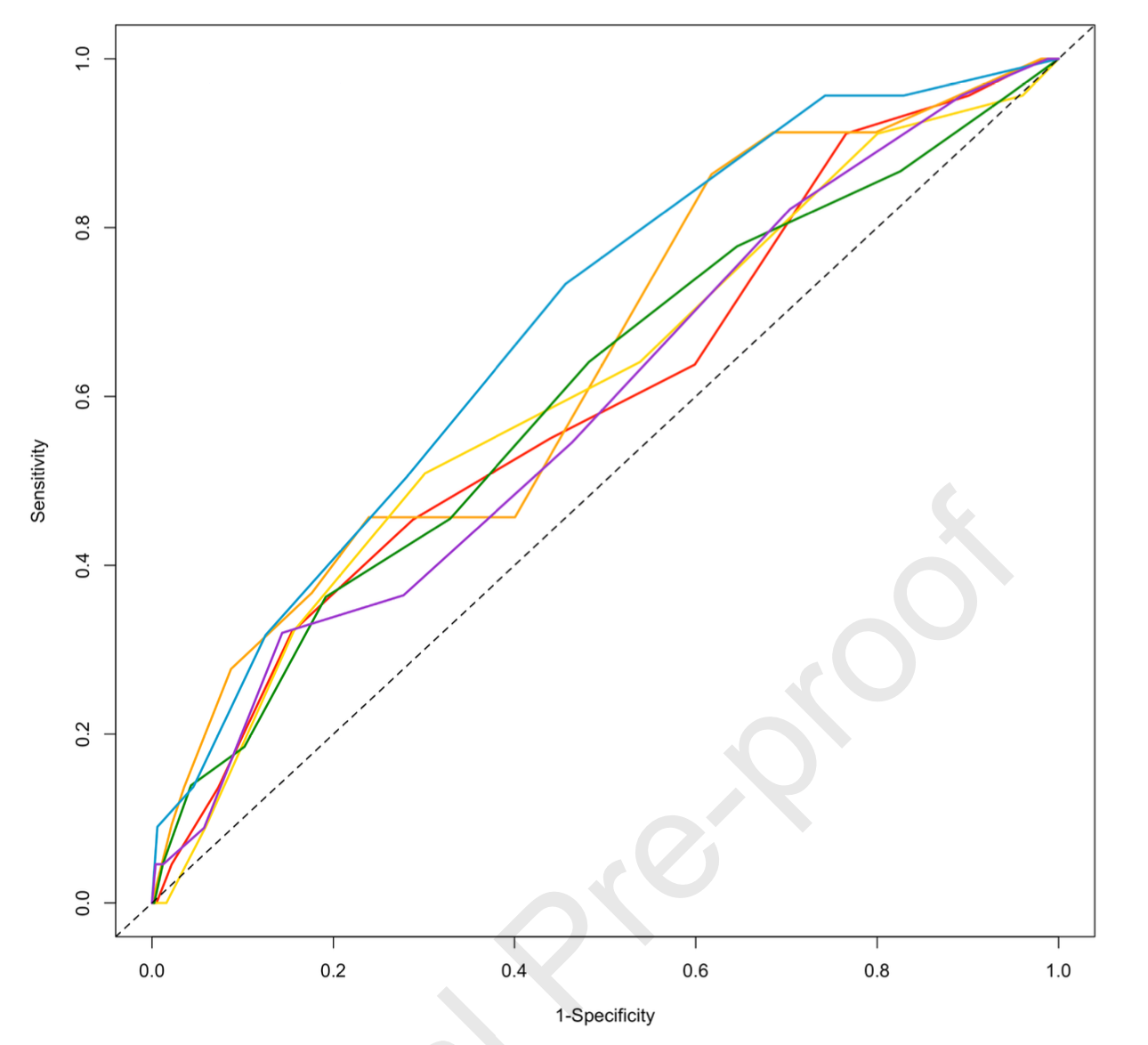
EMERSE was used to abstract data including demographics, treatment indication, topical 5-FU regimen, and toxicities in the paper "Risk of Toxicity From Topical 5- Fluorouracil Treatment in Patients Carrying DPYD Variant Alleles". https://ascpt.onlinelibrary.wile...
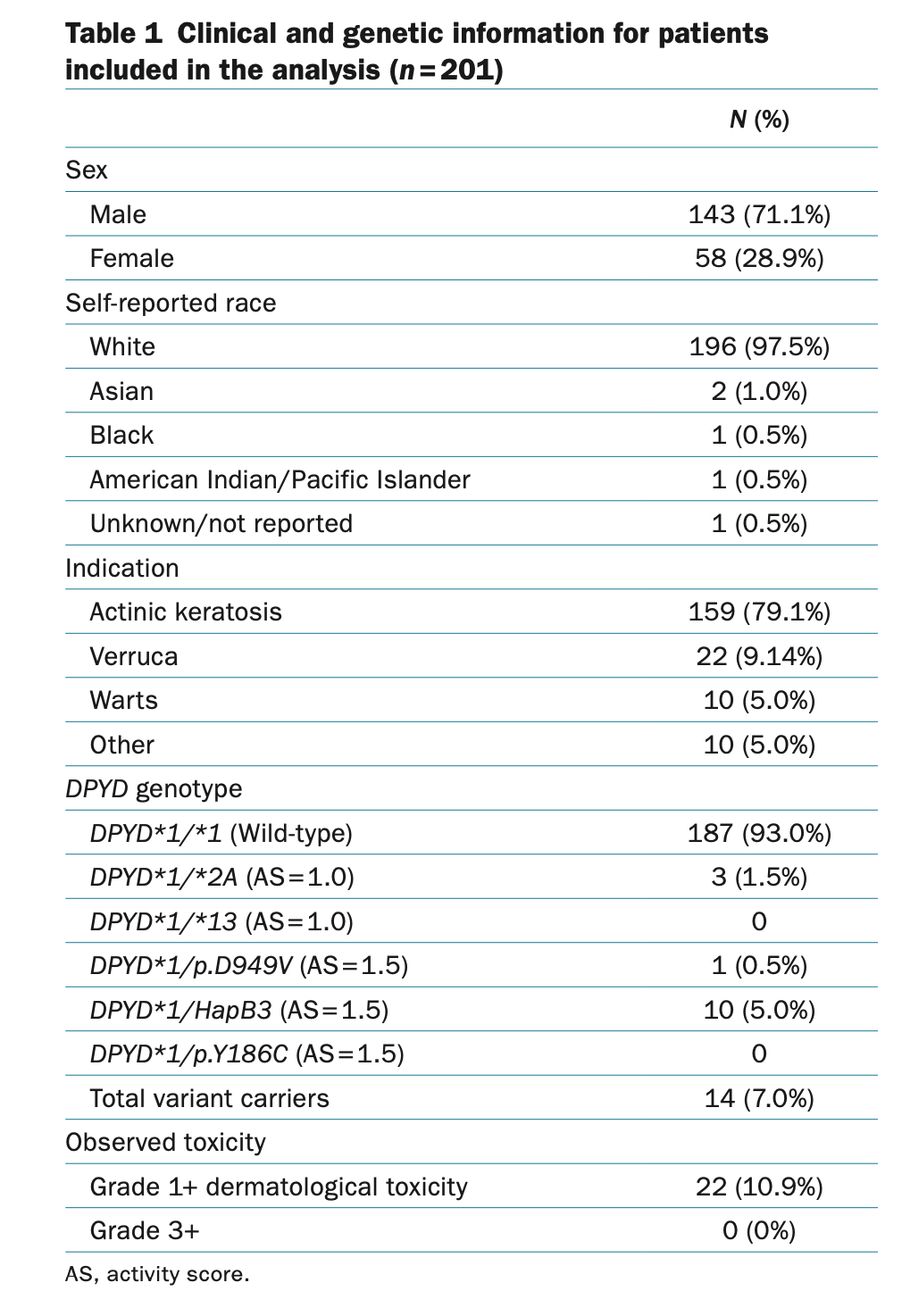
EMERSE was used to assist with data collection for the paper, "Pathogenic Germline Mutational Landscape in Patients With Renal Cell Carcinoma and Associated Clinicopathologic Features". https://ascopubs.org/doi/10...
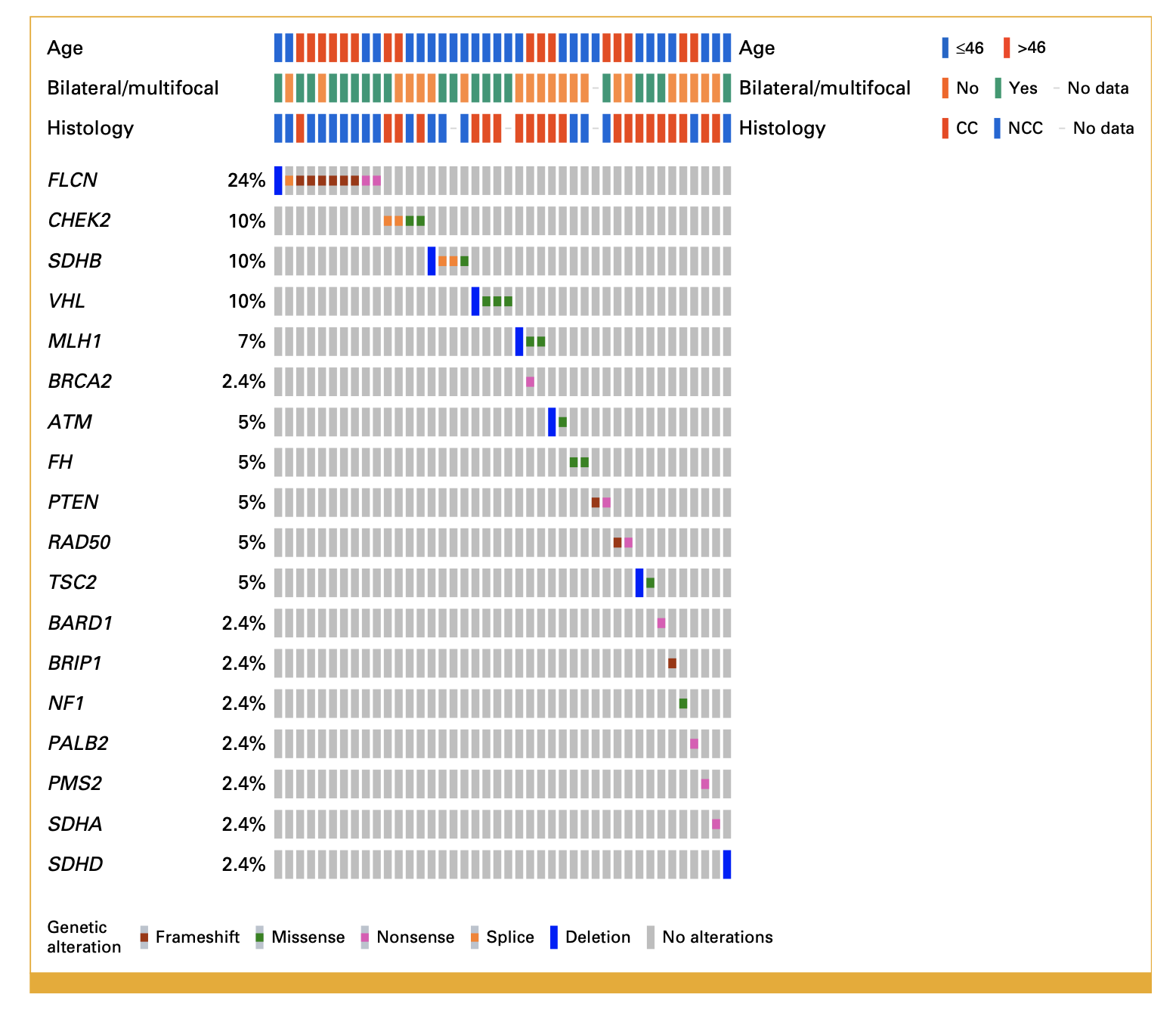
EMERSE was used to "search patient records for alcohol-related keywords" to help develop a natural language processing tool that "demonstrated good discrimination of risky alcohol use using clinical text from pre-operative notes." https://doi.org/10.1111/acer...
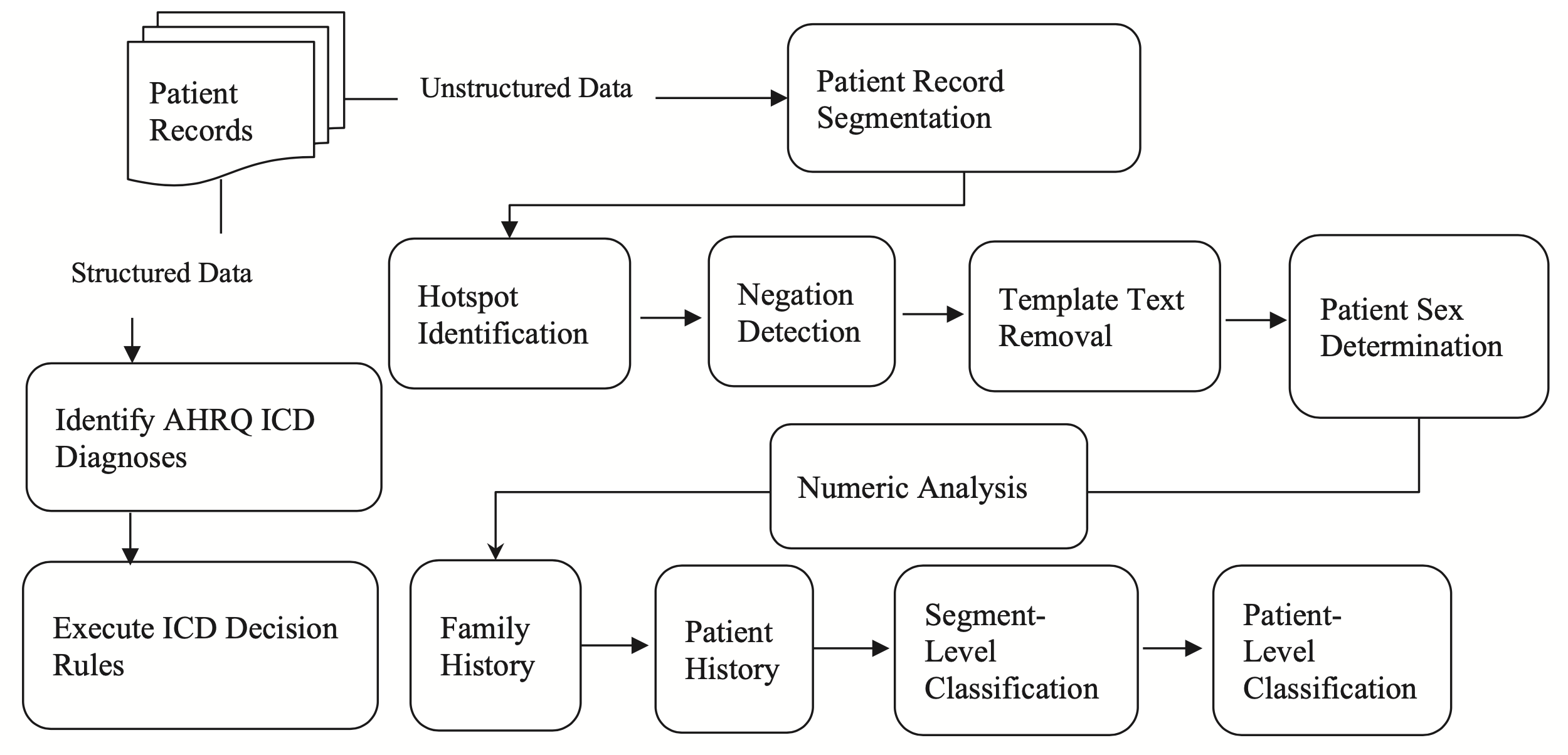
Researchers used EMERSE to identify patients with Toxic Erythema of Chemotherapy for the "largest reported series of TEC, a difficult diagnosis given the heterogeneity of clinical presentations and histologic overlap with GVHD and other drug eruptions." https://journals.lww.com/amjdermatopa...
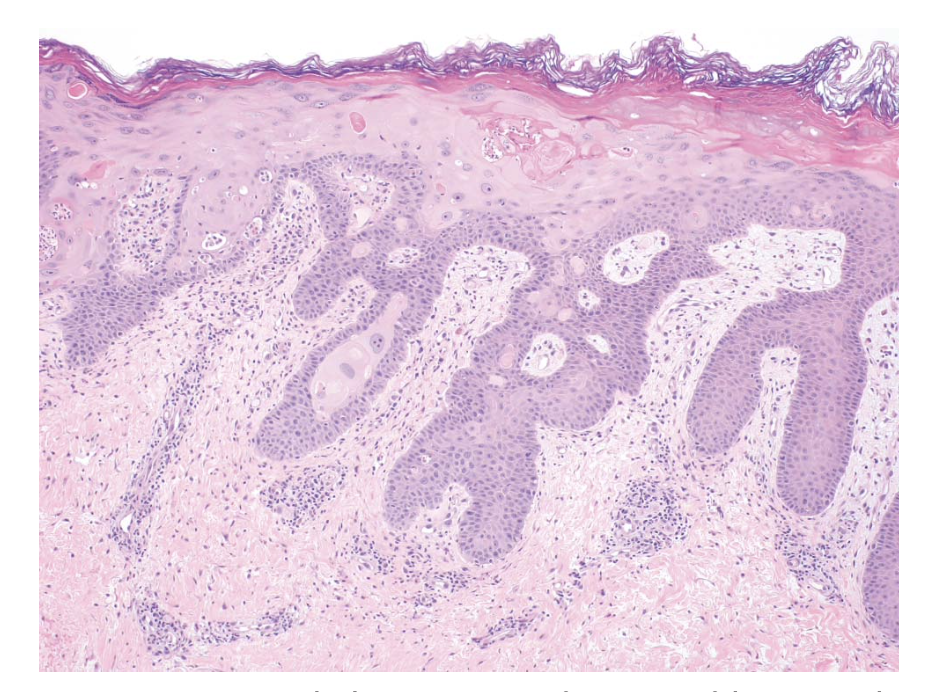
A team from U of Washington, UCSD, UCSF, & St. Jude used EMERSE to find patients for the abstract, "A Real-World Analysis of the Diagnostic Evaluation for Hemophagocytic Lymphohistiocytosis in a Pediatric Population" https://doi.org/10.1182/blood-2023-180086
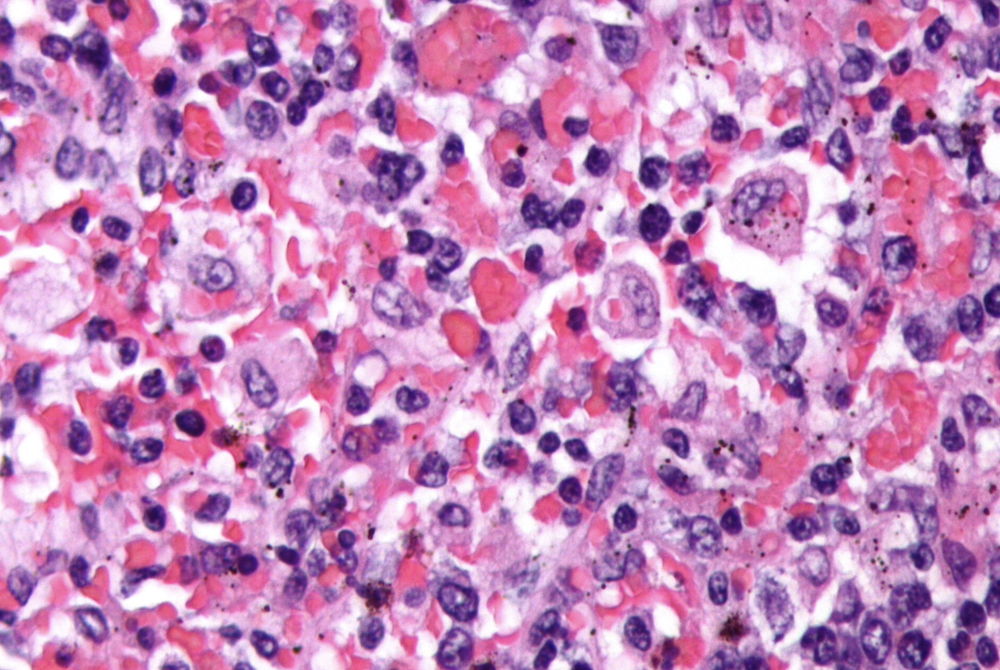
EMERSE was used to review records of "neonates...with HIE treated with therapeutic hypothermia...admitted to the...Neonatal ICU...and followed in the neonatal developmental clinic until 24 months corrected age." https://pediatr-neonatol.com/articl...
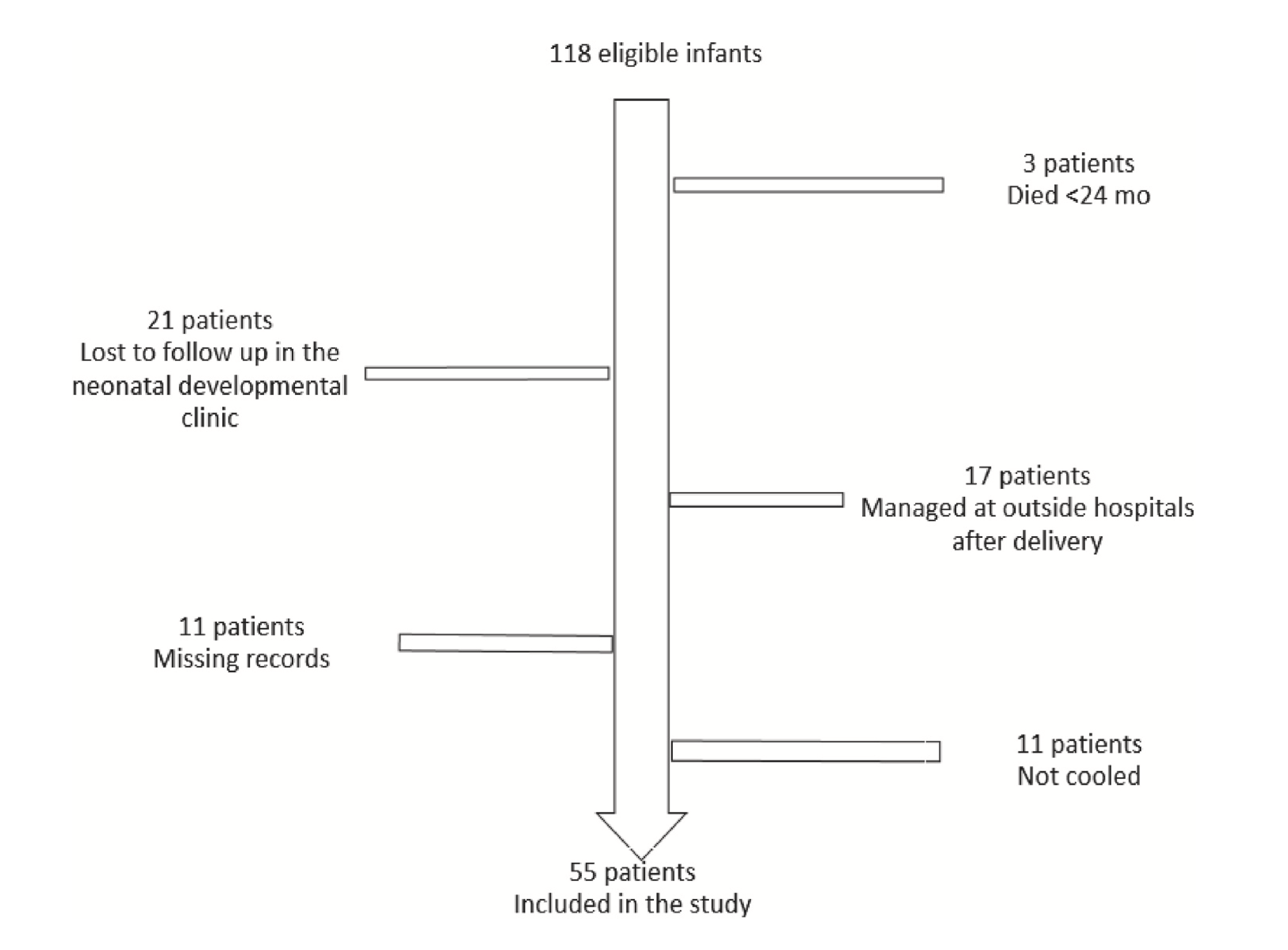
"outcomes for consecutive breast MRIs...were retrospectively reviewed" using EMERSE. Conclusion: "High-risk screening breast MRI was effective at detecting early breast cancer and associated with favorable outcomes." https://doi.org/10.1093/jbi/wbad092
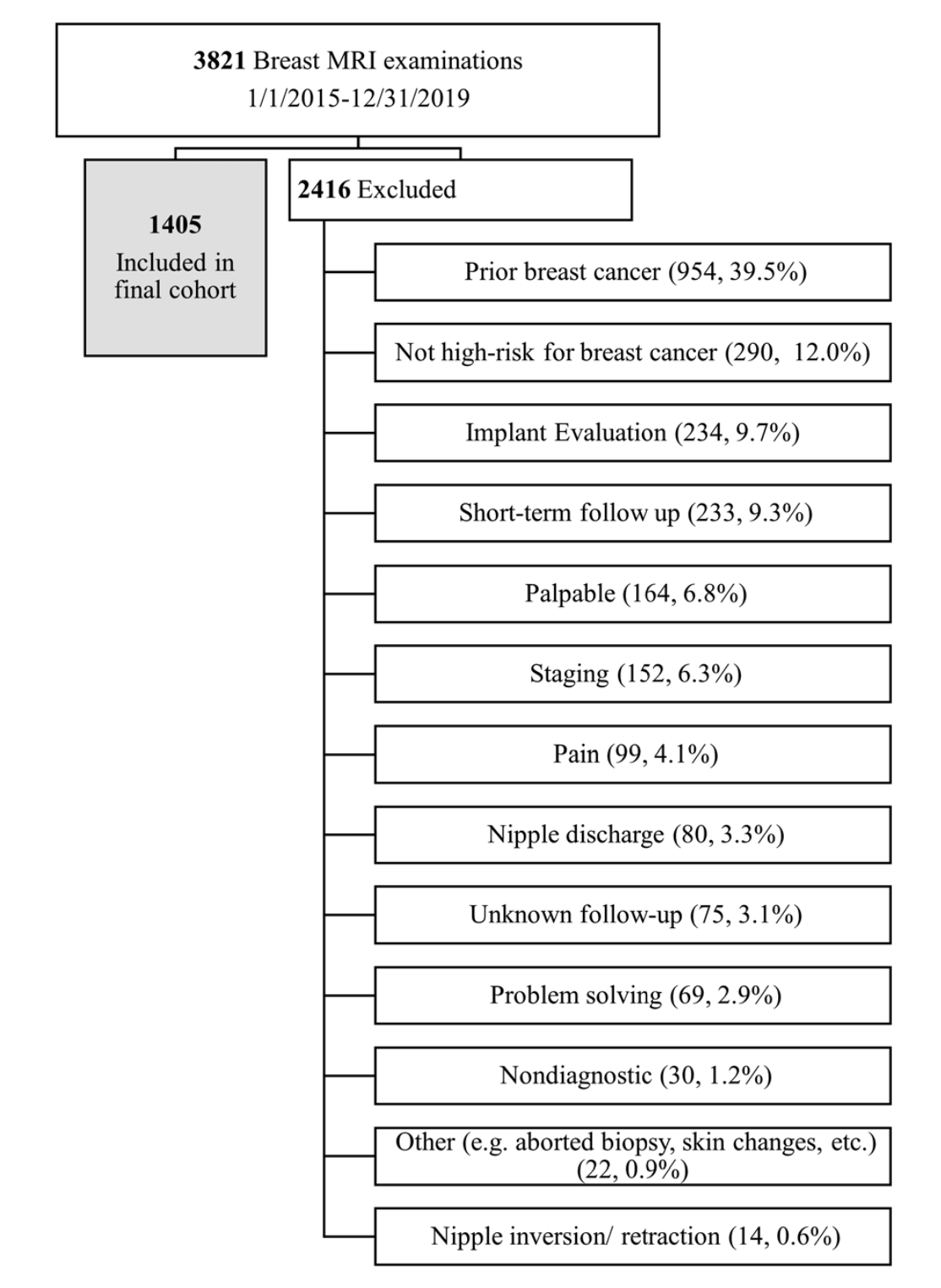
"Initial diagnoses, comorbidities and outcomes of these [osteomyelitis] patients were then manually verified...through chart review using the Electronic Medical Record Search Engine." https://drc.bmj.com/content/11/6/e003611
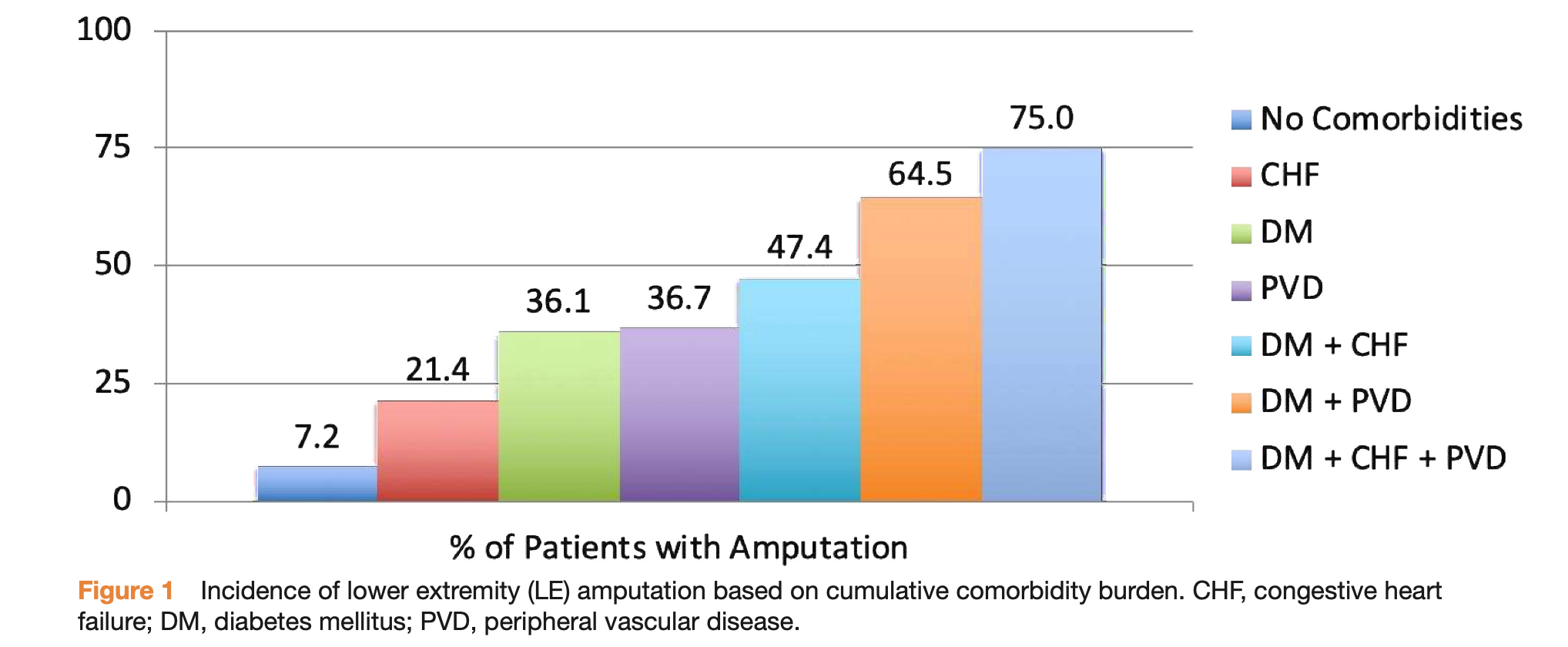
Researchers used EMERSE "to search inpatient and outpatient records from 2000 to 2022" in paper, "Impact of Diplopia and Ptosis From Lingering Third Nerve Palsy After Treatment of Cerebral Aneurysms" https://journals.lww.com/jneuro-ophthalm...
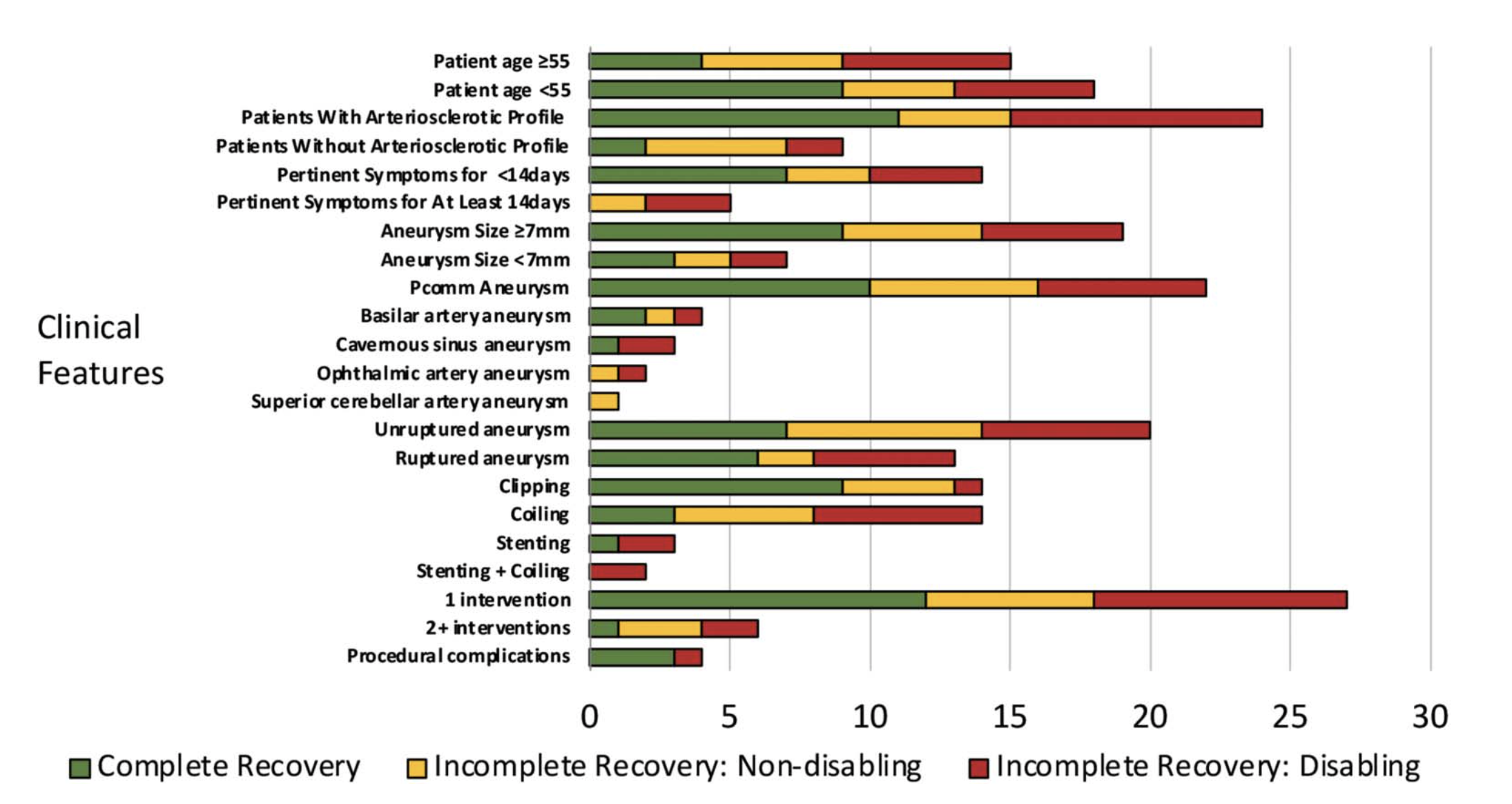
EMERSE was used to screen for patients with NAFLD in paper "Impact of Nonalcoholic Fatty Liver Disease (NAFLD) on Weight Loss After Bariatric Surgery". https://doi.org/10.1007/s11695-023-06865-z
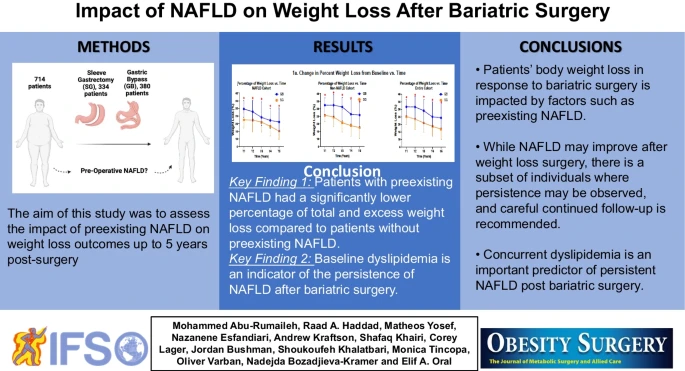
EMERSE supported a review of patients with plagiocephaly and a prescription for a cranial remolding orthosis (CRO) in the paper: "Success Rates of Cranial Remolding Orthosis Treatment of Plagiocephaly Based on Initial Presentation" https://journals.lww.com/jpojournal/abs...
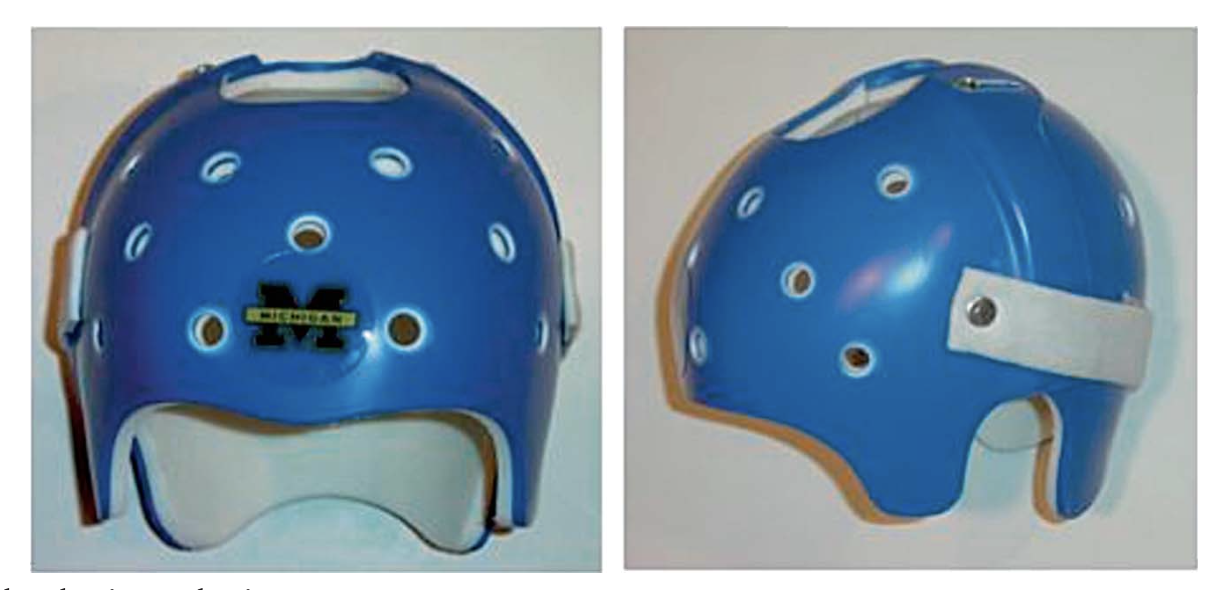
EMERSE was used to identify patients for a study that concluded: "Routine thromboprophylaxis during neoadjuvant chemotherapy is associated with reduced risk of VTE throughout primary treatment..." https://doi.org/10.1016/j.ygyno.2023.10.001
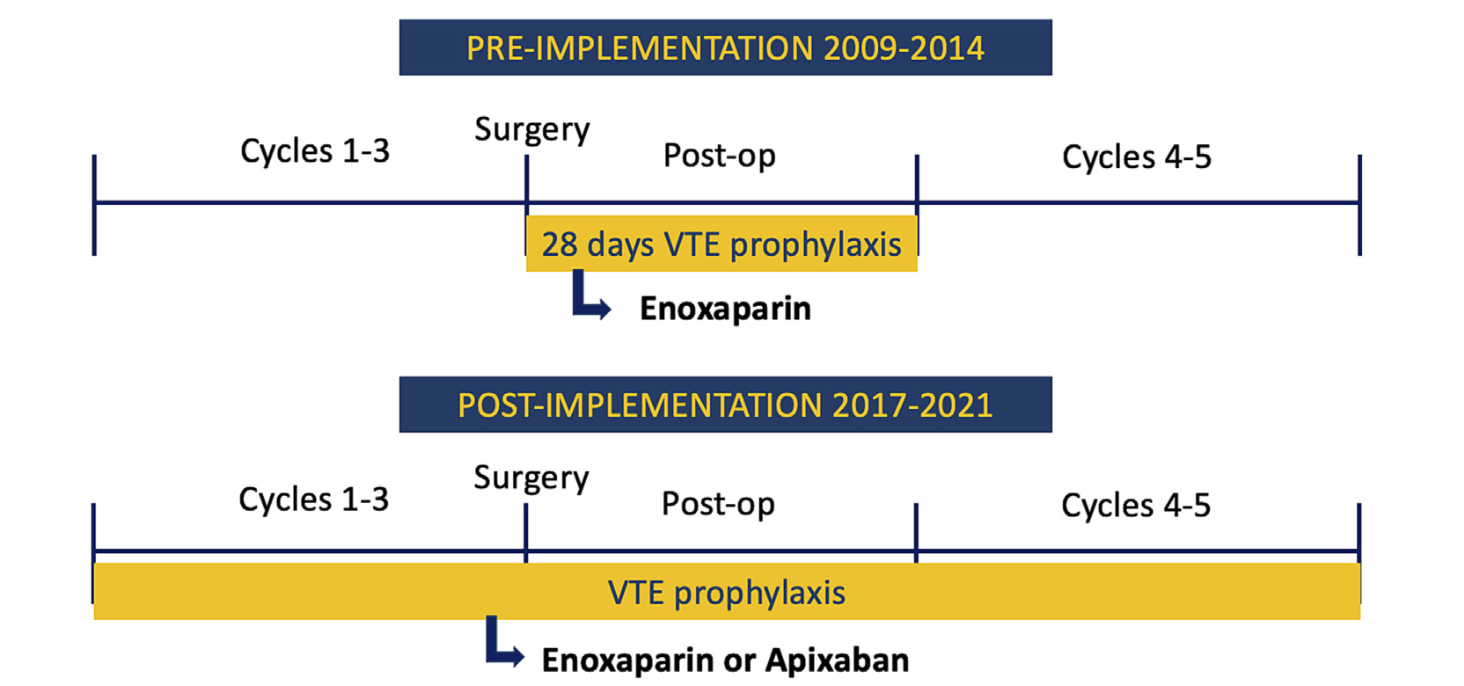
Use of EMERSE is described in the JMIR Research Protocols Paper, "Model Clinic to Increase Preventive Screenings Among Patients With Physical Disabilities: Protocol for a Mixed Methods Intervention Pilot Study" https://researchprotocols.org/2023/1/e50105
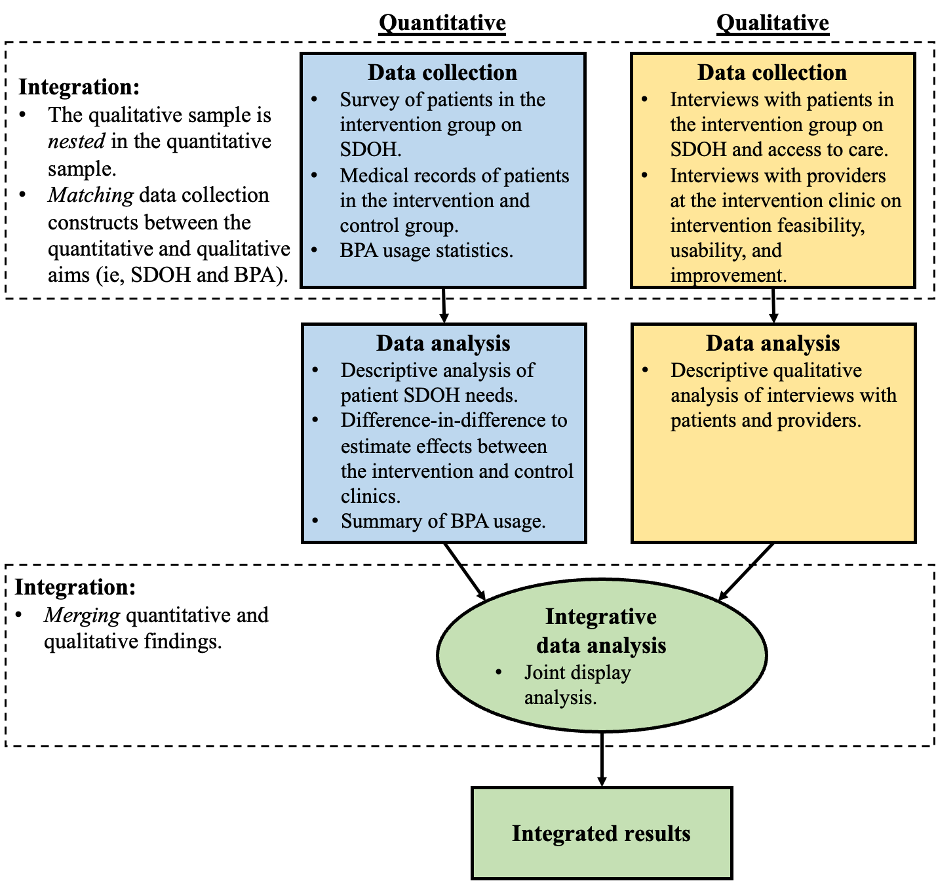
EMERSE supported paper from Seidman Cancer Center, "Thirty-Day Unplanned Hospital Readmissions in Patients With Cancer and the Impact of Social Determinants of Health..." https://ascopubs.org/doi/10.1200/CCI.22.00143
